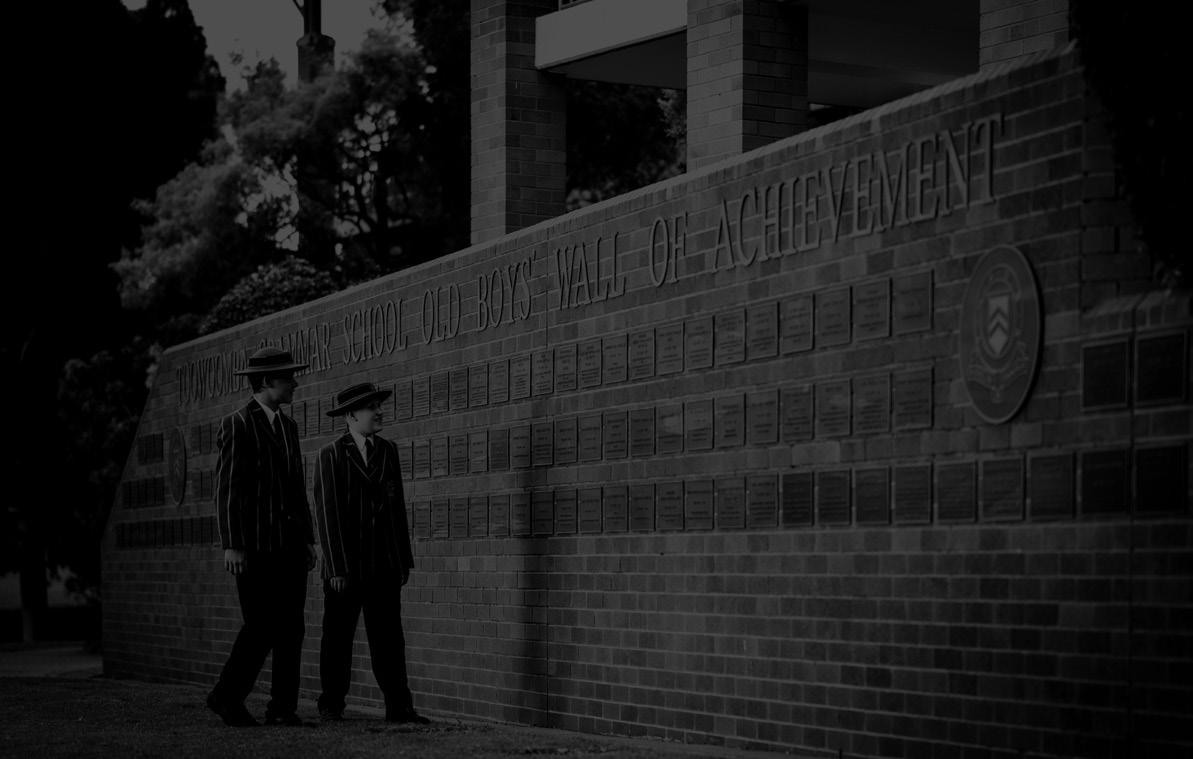





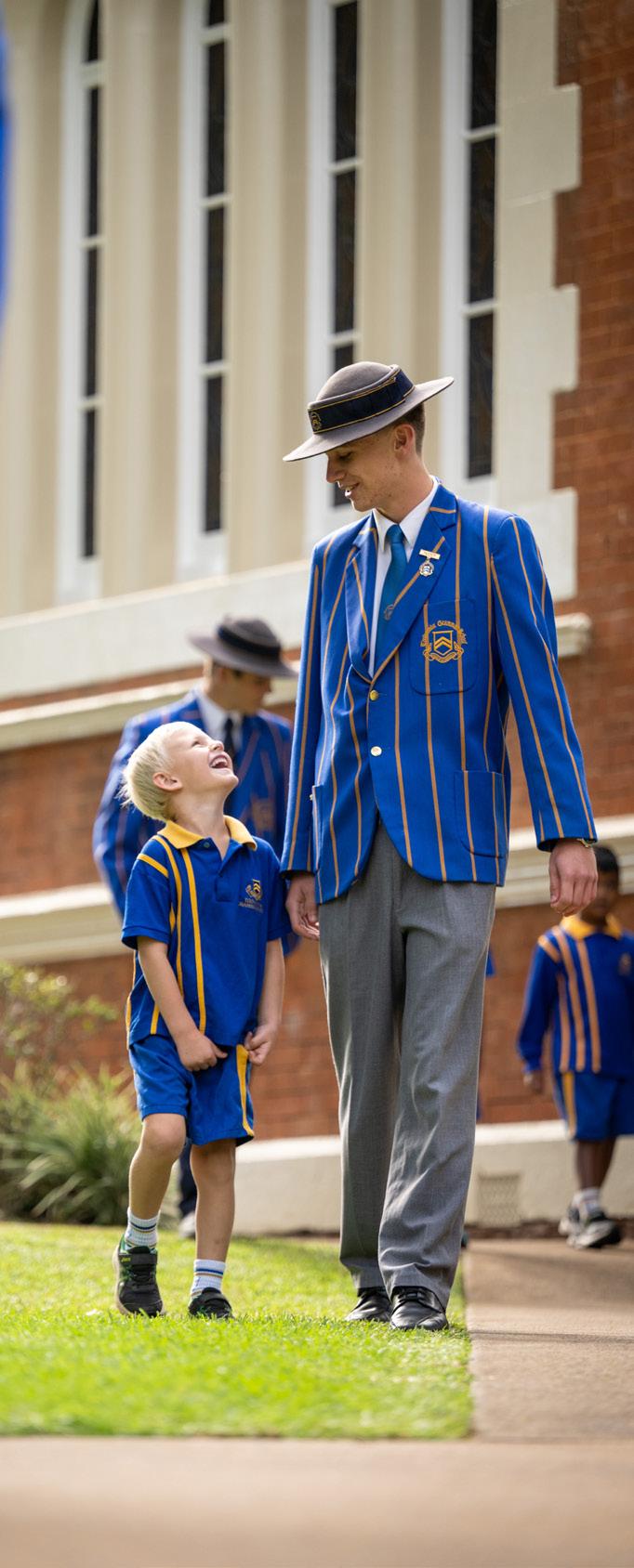
The region was speckled with towns, some more vibrant than others, and diverse landscapes where hillside ruins whispered tales of bygone eras. Over time, these landscapes and towns transformed into familiar scenes, with even minor changes in the community and environment growing more noticeable during each visit.
Education parallels this journey, as it involves absorbing sights, fostering understanding, and capturing glimpses of innovative ideas. It’s about relishing the journey and immersing oneself in the richness of the educational experience through knowledge acquisition. The focus isn’t solely on reaching the destination but also appreciating the experiences en route.
The famed Irish poet, dramatist, and prose writer, WB Yeats, is credited with the phrase, “Education is not the filling of a pail, but the lighting of a fire.” Regardless of whether he made this statement or not, the message is significant. It asserts that education should extend beyond the mere accumulation of data or the gradual acquisition of knowledge. Instead, it should ignite a fire of curiosity and exploration, kindling a lifelong passion for learning.
For as long as I can remember, I’ve always enjoyed traveling great distances. As a child growing up in rural New South Wales, this was inevitable.
This process requires time and should be enjoyed through diverse experiences that stimulate an insatiable thirst for knowledge, extending beyond mere information transfer. Like a conductor uniting diverse notes in an orchestra, education orchestrates an ensemble of learning where knowledge merges and connects harmoniously.
Emphasising knowledge building is central to our teaching and learning philosophy due to its transformative power, which enhances comprehension, understanding, and critical thinking. The interconnections between writing, knowledge acquisition, and reading comprehension reinforce and deepen each other. Teachers play a pivotal role by steering students on their educational journey, fostering an environment that encourages exploration and curiosity while simultaneously promoting connections between various ideas and subjects.
For the boys at Toowoomba Grammar School, education isn’t confined to a single subject or a narrow focus. Instead, it spans a diverse range of disciplines. We offer an extensive liberal education rooted in core subjects while nurturing interdisciplinary connections through various complementary activities to our curriculum. By exploring the cross-sections of different disciplines, students broaden their perspectives and gain insights that surpass the confines of a single field. Our teachers inspire a learning passion extending beyond the classroom boundaries. We also expose our students to various knowledge fields, equipping them with a comprehensive intellectual toolkit, enabling them to adapt to an ever-evolving world and contribute meaningfully across different domains.
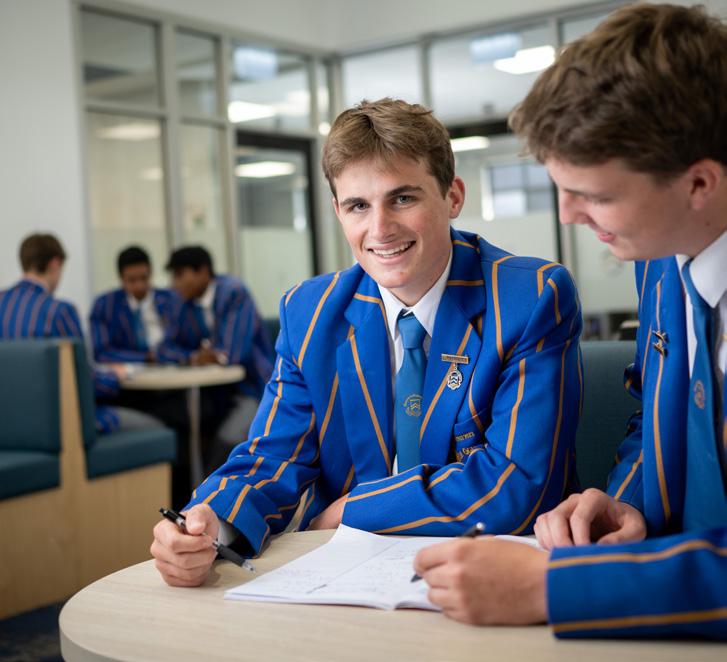
Education allows us to unravel knowledge layers and gain insights that enrich our understanding of
the world. As they progress, our students engage in meaningful discussions, developing a broader understanding of their position in the world. These are vital tools for navigating a multicultural society’s complexities with sensitivity and empathy, nurturing cultural literacy, appreciating diversity’s richness, and fostering a global perspective.
At Toowoomba Grammar School, we believe the educational process is not merely a means to an end; it is an end in itself. It’s about the joy of the journey, not just the destination. It should be savoured, similar to a scenic road trip, and rushing through should be resisted, even though this may be challenging for some. Playing music at double speed might make the piece finish earlier, but it distorts the harmony. Education is not a race; it’s a journey requiring time, patience, and the willingness to delve into knowledge’s depths.
Education transcends mere information accumulation or reaching a predetermined
destination. It is a transformative journey that unfolds gradually, enriching understanding, fostering curiosity, and inspiring lifelong learning. At Toowoomba Grammar School, we celebrate this process, immerse ourselves in the richness of knowledge, and relish the joy of exploration. Through this process, we seek for our students to acquire not only knowledge but also the tools to navigate our world’s complexities and make a positive impact.
In conclusion, I’ll echo T.S. Eliot’s words, “We shall not cease from exploration, and the end of all our exploring will be to arrive where we started and know the place for the first time.” This statement serves as a reminder that learning is a continuous journey, and through exploration and lifelong learning, we gain a deeper understanding of ourselves and our surrounding world.
For the boys at Toowoomba Grammar School, the educational experience should be transformative. Education is not about mastering tests and exams; it’s about building understanding, nurturing curiosity, and cultivating a comprehensive perception of the world.
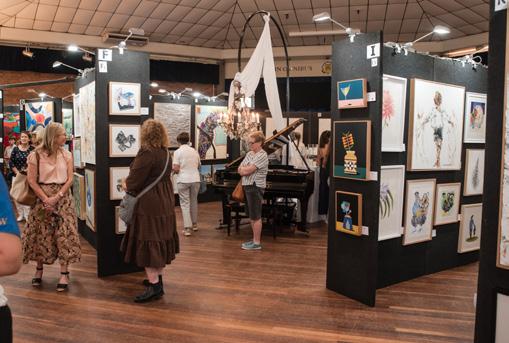
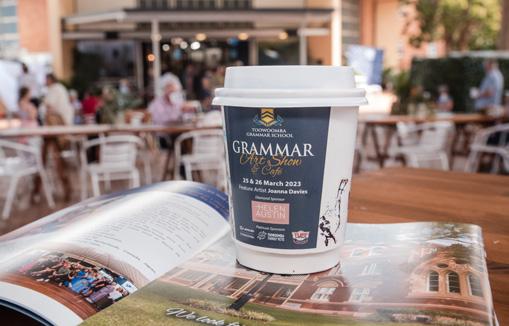
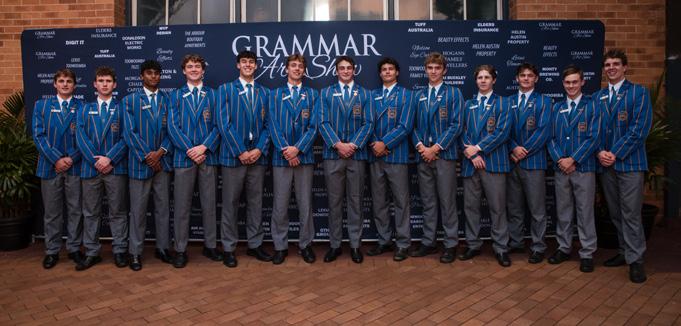
Opening night was full of excitement
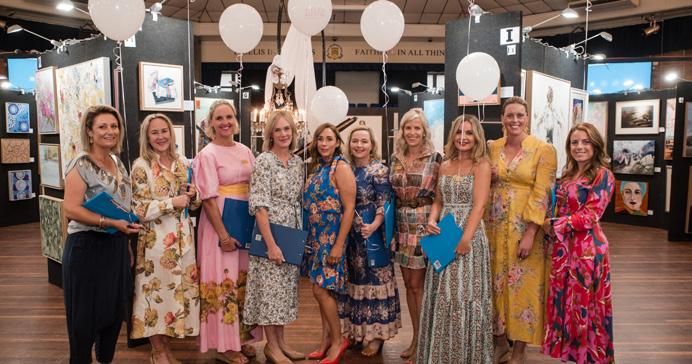
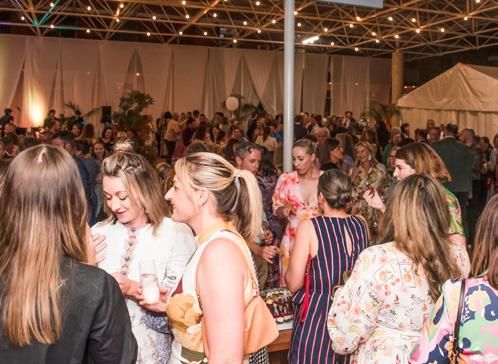
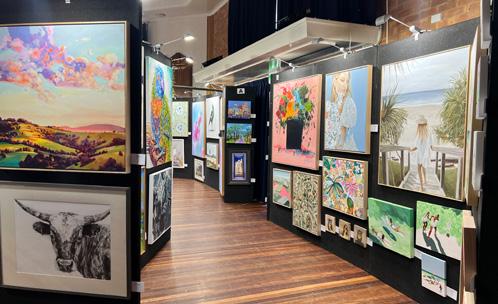
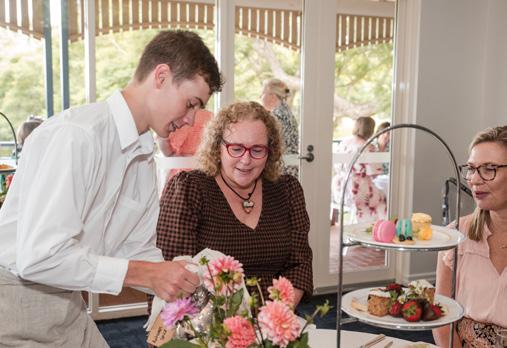
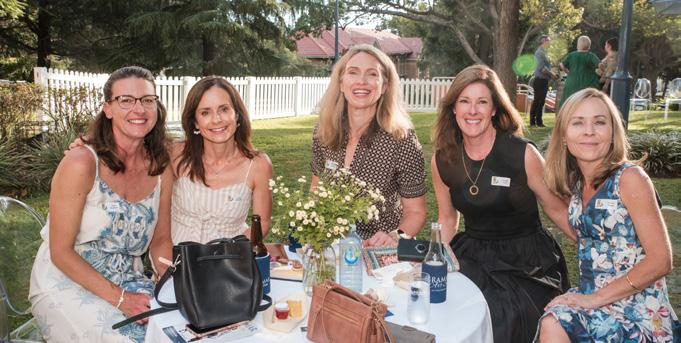
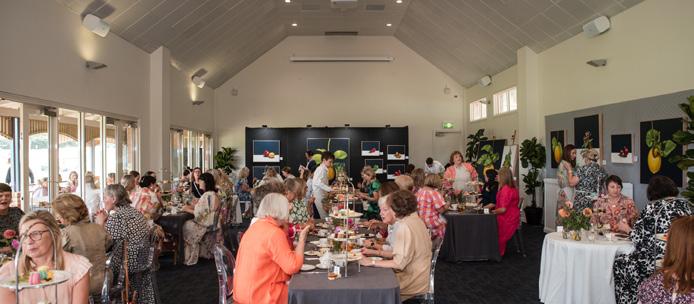 Senior Prefects (L-R) Isaac Burke, Will Street, Sewmith Samarawickrama, Clancy Wright, Carter Liddiard, PJ Ostwald, George Griffiths, Clancy McCosker, Jim White, Richard Dean, Noah Taylor, Sam Gladwin, Sam Freer play host on Grammar Art Show Opening Night
High Tea - Grammar Art Show
Art Among Friends - Grammar Art Show: (L-R) Dayle Needham, Louise Brownlie, Rebekah Biernoff, Danielle Hogno, Serena Dwyer
2023 Prefect, Sam Gladwin serves at High Tea
Grammar Art Show volunteers: (L-R) Skye Hudson, Alison De Wilde, Fiona Ferguson, Vanessa Wall, Toni Waring, Amy Dampney, Kylie Beverland, Michelle Von Pein, Sophie Elmes, Rebecca Westman
Art enthusiasts immerse themselves in the wide range of art on display
Art Show Café
One of many aisles of art
Senior Prefects (L-R) Isaac Burke, Will Street, Sewmith Samarawickrama, Clancy Wright, Carter Liddiard, PJ Ostwald, George Griffiths, Clancy McCosker, Jim White, Richard Dean, Noah Taylor, Sam Gladwin, Sam Freer play host on Grammar Art Show Opening Night
High Tea - Grammar Art Show
Art Among Friends - Grammar Art Show: (L-R) Dayle Needham, Louise Brownlie, Rebekah Biernoff, Danielle Hogno, Serena Dwyer
2023 Prefect, Sam Gladwin serves at High Tea
Grammar Art Show volunteers: (L-R) Skye Hudson, Alison De Wilde, Fiona Ferguson, Vanessa Wall, Toni Waring, Amy Dampney, Kylie Beverland, Michelle Von Pein, Sophie Elmes, Rebecca Westman
Art enthusiasts immerse themselves in the wide range of art on display
Art Show Café
One of many aisles of art
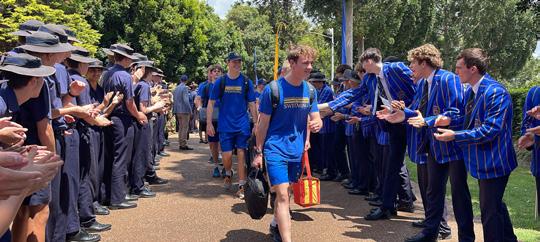
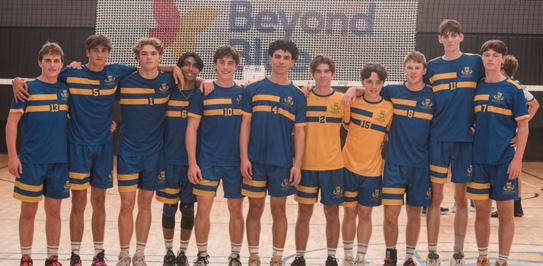

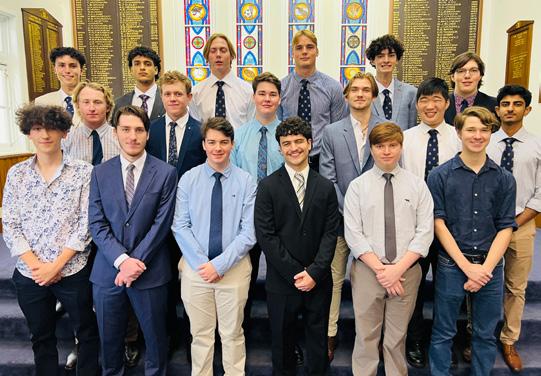
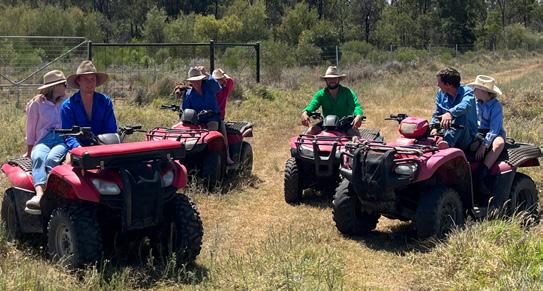
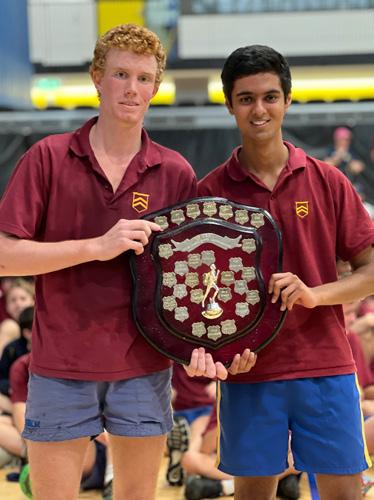
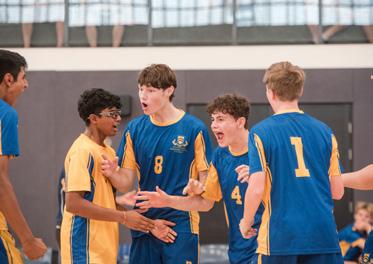
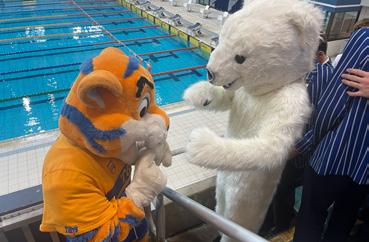
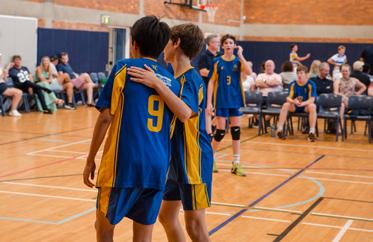 Boyce House captains, Pat Savill and Riyan Khan celebrate as Boyce House wins the Cross Country House Carnival
10As: (L-R) Matthew Jacob, Anuk Fernando, Alex Denman, Ned Sullivan, Will Smith celebrating the point in their volleyball match
TGS and Nudgee College mascots, Ting Tong and Polar Bear face off at the GPS Swimming Championships
10C volleballers, mateship is what it’s all about
Our Open swimmers (L-R) Beau Campbell, Juert Eerkens, Hugh Pollock, Edward Rogan, Ryan Grimes, Clancy Wright, Ben Cooper, Gilbert Goddard, Alex Reddacliff, Ryan Thornton at the GPS Swimming Championships
Swimming captain, Beau Campbell leads his team through the tunnel
2022 Scholars’ Assembly: Back Row: (L-R) Patrick Crothers, Zackariya Taylor, Jesse Joubert, Rueben Geldenhuys, Tumoana Strugnell, Isaac Toombes. Middle Row: (L-R) Tom Green, Darcy Schmidt, Harry Gallagher, Ryan Murphy, Seb Saint, Paul Jacob. Front Row: (L-R) Jamie Watson, Liam Mulheron, Kaleb Hoyling, Hassan Yusaf, Izaak Schefe, Gabriel Donaldson
Boyce Head of House Boarding, Michael Hall visits the property of 2023 Senior Boarder Prefect, Pat Savill. Mrs Rebecca Hall, Pat Savill (Head Boarder 2023), Will Savill (Class of 22), Emme Hall, Joel Snell and Mia Hall
Boyce House captains, Pat Savill and Riyan Khan celebrate as Boyce House wins the Cross Country House Carnival
10As: (L-R) Matthew Jacob, Anuk Fernando, Alex Denman, Ned Sullivan, Will Smith celebrating the point in their volleyball match
TGS and Nudgee College mascots, Ting Tong and Polar Bear face off at the GPS Swimming Championships
10C volleballers, mateship is what it’s all about
Our Open swimmers (L-R) Beau Campbell, Juert Eerkens, Hugh Pollock, Edward Rogan, Ryan Grimes, Clancy Wright, Ben Cooper, Gilbert Goddard, Alex Reddacliff, Ryan Thornton at the GPS Swimming Championships
Swimming captain, Beau Campbell leads his team through the tunnel
2022 Scholars’ Assembly: Back Row: (L-R) Patrick Crothers, Zackariya Taylor, Jesse Joubert, Rueben Geldenhuys, Tumoana Strugnell, Isaac Toombes. Middle Row: (L-R) Tom Green, Darcy Schmidt, Harry Gallagher, Ryan Murphy, Seb Saint, Paul Jacob. Front Row: (L-R) Jamie Watson, Liam Mulheron, Kaleb Hoyling, Hassan Yusaf, Izaak Schefe, Gabriel Donaldson
Boyce Head of House Boarding, Michael Hall visits the property of 2023 Senior Boarder Prefect, Pat Savill. Mrs Rebecca Hall, Pat Savill (Head Boarder 2023), Will Savill (Class of 22), Emme Hall, Joel Snell and Mia Hall
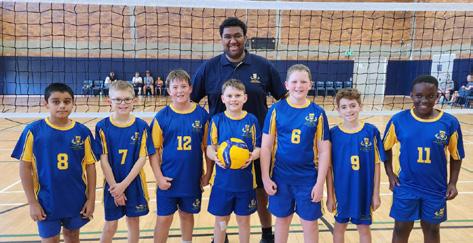
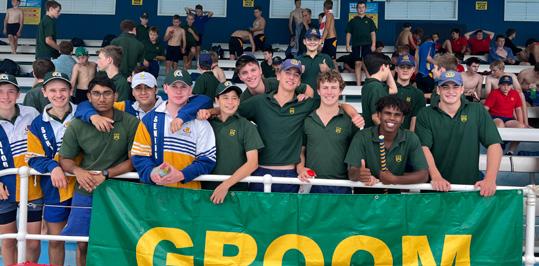
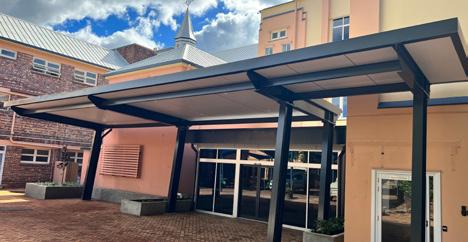
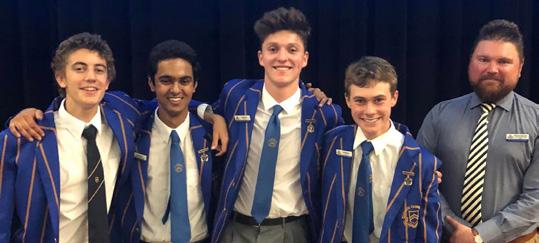
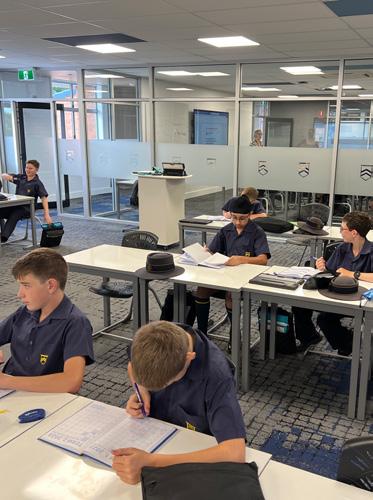
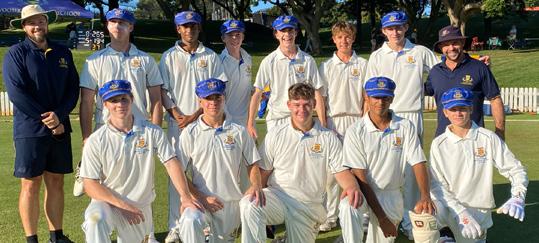
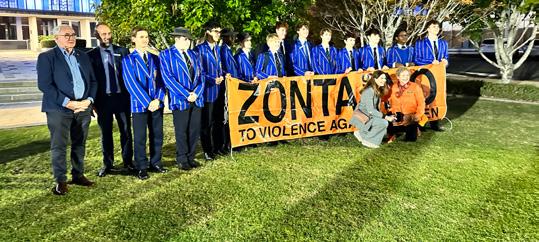
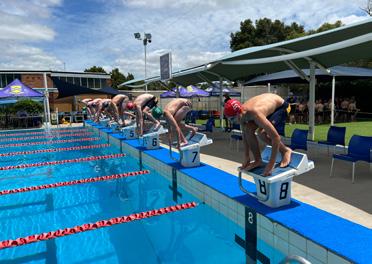
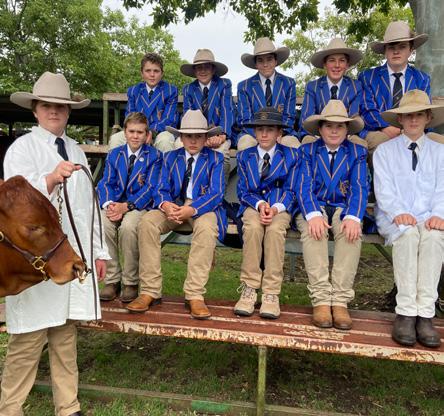
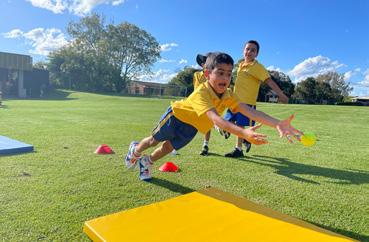 Purves classrooms get a facelift
Toowoomba Mayor, Paul Antonio, Deputy Headmaster, Mr John Anderson and senior students with Zonta representatives at the Domestic Violence Remembrance March
On the starting blocks at the House Swimming Carnival
The TGS Show Cattle team has success at the Pittsworth Show Front Row: (L-R) Jack Lethbridge, Hugh Fay, Rhett Cornford, Angus McMillan, Sepp Girle. Back Row: (L-R) Eli McCormick, George Tighe, Archer Finlay, Harrison Ford, Ryan McKay. Holding cow: Lewis Brimblecombe
Prep student, Ayaansh Bhardwaj, attempts a diving catch
The new Student Services office opens in School House
6A volleyball team (L-R) Spencer Hooper, Charlie Zillman, Harry Constable, Edward Boland, Anthony Polatos, Jeremiah Kishaba standing proud with coach, Isaiah Tagituimua
Our GPS Debating team, Charlie Randall, Riyan Khan, Will Smith and Sam Gladwin with Mr Douglas Michael celebrates a win
TGS 1st XI 2023 GPS Cricket Premiership runners up. Back Row: (L-R) Jason Fenwick (Assistant Coach), Chace Oates, Sewmith Samarawickrama, Connor Walker, Charles Lachmund, Cooper Webster, Dom Black, Ben Schuhmacher (Head Coach). Front Row: (L-R) Richard Dean, Charlie Bignell, Ewald Kruger, Gautam Malhotra, Joe Sippel
Purves classrooms get a facelift
Toowoomba Mayor, Paul Antonio, Deputy Headmaster, Mr John Anderson and senior students with Zonta representatives at the Domestic Violence Remembrance March
On the starting blocks at the House Swimming Carnival
The TGS Show Cattle team has success at the Pittsworth Show Front Row: (L-R) Jack Lethbridge, Hugh Fay, Rhett Cornford, Angus McMillan, Sepp Girle. Back Row: (L-R) Eli McCormick, George Tighe, Archer Finlay, Harrison Ford, Ryan McKay. Holding cow: Lewis Brimblecombe
Prep student, Ayaansh Bhardwaj, attempts a diving catch
The new Student Services office opens in School House
6A volleyball team (L-R) Spencer Hooper, Charlie Zillman, Harry Constable, Edward Boland, Anthony Polatos, Jeremiah Kishaba standing proud with coach, Isaiah Tagituimua
Our GPS Debating team, Charlie Randall, Riyan Khan, Will Smith and Sam Gladwin with Mr Douglas Michael celebrates a win
TGS 1st XI 2023 GPS Cricket Premiership runners up. Back Row: (L-R) Jason Fenwick (Assistant Coach), Chace Oates, Sewmith Samarawickrama, Connor Walker, Charles Lachmund, Cooper Webster, Dom Black, Ben Schuhmacher (Head Coach). Front Row: (L-R) Richard Dean, Charlie Bignell, Ewald Kruger, Gautam Malhotra, Joe Sippel
The goal of the Toowoomba Grammar School Strategic Plan’s Teaching and Learning Pillar is to “provide an inspiring and broad curriculum for all boys, delivered by outstanding educators, and informed by best practice and evidence”
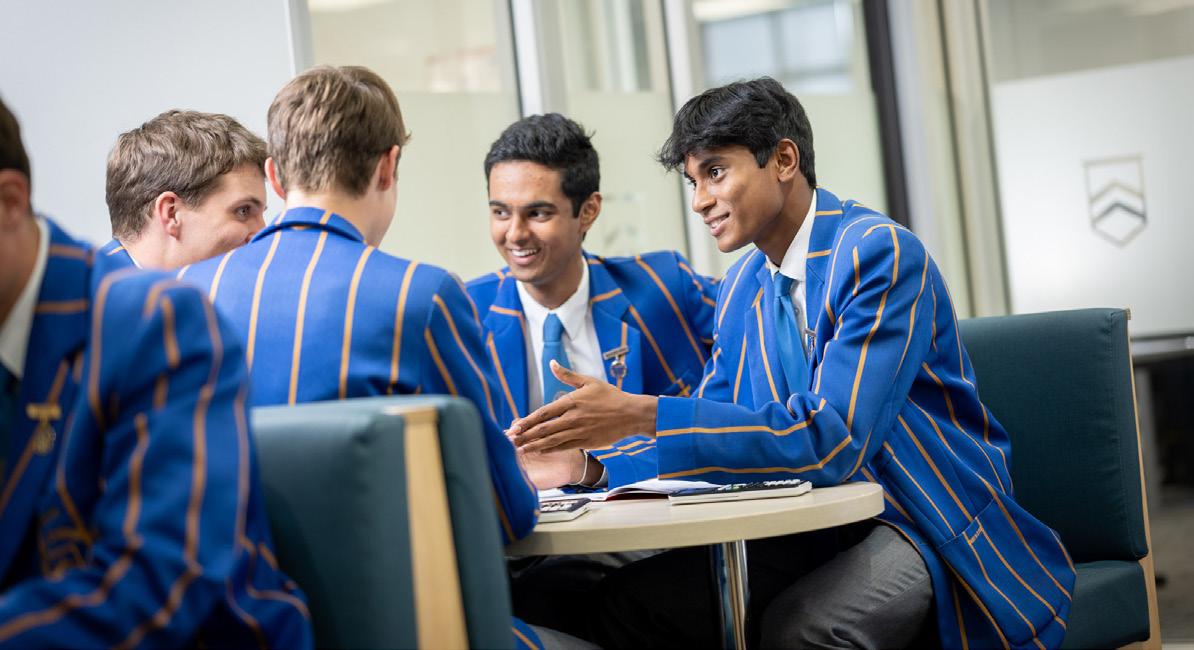
Our strategies to support that goal are:
» Adopt a research-informed approach to teaching and learning.
» Use data and evidence to improve student outcomes.
» Ensure the smooth transition for boys at key times throughout their education.
» Provide a knowledge-rich curriculum with a focus on core discipline skills and understandings.
» Adopt technology and innovative pedagogy to transform learning outcomes.
» Expand and diversify pathway options and opportunities for the boys.
In essence, if you review the strategies listed above, you will notice that they all focus on continually seeking to improve educational opportunities and outcomes for students. Effective teachers possess a range of skills, including subject
matter expertise, classroom management and the ability to motivate and engage students. High quality teaching is essential for improving educational outcomes and supporting students in working towards their post-school opportunities and our goal is to continually strive for improvement using evidence-based practice.
A key to effective teaching is understanding how students learn. By understanding the science of learning and cognitive load theory, teachers can plan lessons and lesson sequences that enable students to build their knowledge and more importantly retain, retrieve and apply their knowledge to complex tasks. This is not to suggest that teachers have not already been using strategies based in the principles of cognitive load theory, but an understanding of why they work helps focus teachers to be more intentional in their lesson planning. Cognitive Load Theory recognises that the working memory is extremely limited and only able to process a few elements of information, whereas long term memory is effectively limitless. The process of learning involves making a
change in long-term memory, and any new information must be processed through working memory. Teachers need to understand the strategies that enable this shift from working memory to long term memory by considering how information is presented. Chunking involves presenting information in sufficiently small chunks so that students will be able to process the information within their working memory. As a general rule, working memory can process four pieces of new information at one time, so it is essential that teachers do not overload working memory by presenting too much at once. The dual-coding effect is another way to enhance the learning; by presenting textual and visual information simultaneously two areas of the brain are activated to process the information. These are just a few examples of very simple strategies that can have significant impact.
The Learning Sciences are complemented by principles of explicit instruction. If you were to summarise the goal of explicit instruction, it would be to ensure that the requisite knowledge and skills are learnt (embedded in the long-term memory), able to be retrieved and applied. Again, teachers have been doing this for years, including in their lessons daily, weekly, and monthly reviews, modelling responses, guided practice, scaffolding and questioning. Regular review enables students to practise accessing information that is stored, the more frequently information
is accessed, the more easily it can be retrieved. Students cannot be expected to know how to respond unless they have been explicitly shown, so modelling responses and providing opportunities for students to practise with guidance will enable them to build the skills of using the information in an appropriate way. Scaffolding tasks provides a framework for students to respond to tasks, further supporting them in constructing a cohesive response. While questioning might seem to be an obvious and simple strategy that teachers “naturally” do, well thought out questioning practises provides feedback to teachers on the understanding of the students but will also help students explore material in greater depth, make connections which are essential for long term memory and retrieval. Explicit instruction is essentially teachers ensuring they provide a lesson that teaches new content explicitly, using effective strategies accompanied by practice and feedback.
As teachers have been immersing themselves in the principles of learning sciences and explicit instruction, students have also engaged in better understanding of how learning works and therefore how to study more effectively. Students are busy and it is essential that their valuable study time is used to greatest effect. Some of the least effective study techniques are cramming, reading over the text, and rewriting the notes, yet a recent survey of our boys indicated that these
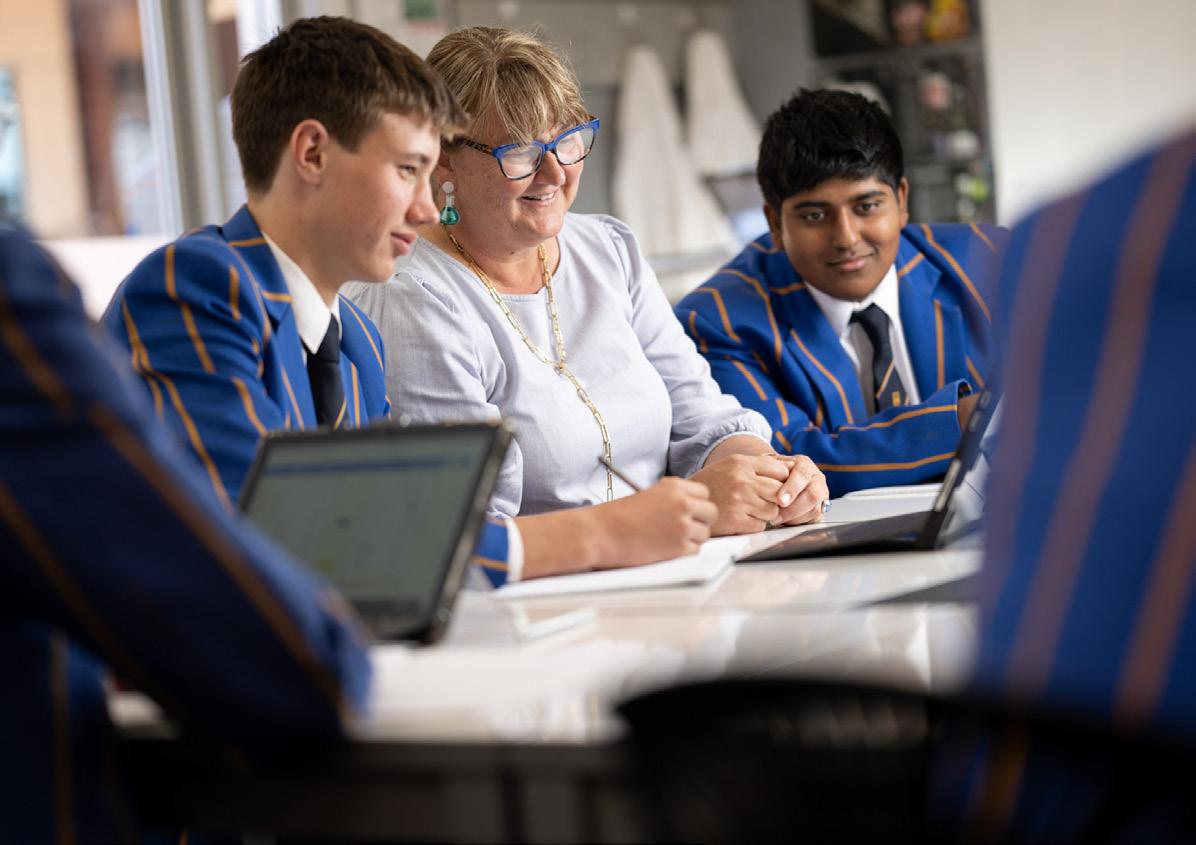
strategies are often their preferred study method. The TGS Study Skills Program, introduced to Years 9 and 10 this year and to be expanded to Years 7 and 8 in 2024 draws on the principles of cognitive load theory and the learning sciences. Students are taught about the forgetting curve and given the tools to plan their study to optimise the timing and sequence of study review sessions aimed at reinforcing their learning. Dual-coding strategies are taught, revision skills such as concept maps which enable students to create a visual map with text help retrieve and make more complex connections.
Students are taught to track their learning, so that they are not tricked by the illusion of confidence. The illusion of confidence describes the phenomenon of students tending to study the elements of the course they are already confident with, rather than challenging themselves with the more difficult work. The result is that the student thinks they know the work, but in reality, they have just reinforced concepts they already understood. As students build their toolkit of study strategies and can intentionally apply different effective strategies to their study, they will become more confident in their studies, develop greater self-efficacy, and reduce their test anxiety.
Ms Khyl Domrow teaching Year 11 ChemistryStories of adventure are timeless and resonate with all of us in some way. The excitement of an adventure with its new experiences, challenges, friendships developed, achievements, self-discovery and learnings are what inspire us to begin and motivate us to keep going.
The adventures of childhood have been regaled in many books and movies like Harry Potter, Peter Pan, and Treasure Island for example. Regrettably going to school is typically not captured in stories and movies in the same way, as an adventure, rather it’s usually referenced as a chore, or dull and something to be endured. This is a shame as all the elements of a great adventure are certainly there. A Junior School that inspires a sense of adventure each day for boys is one we cultivate, each day with micro adventures to be explored, layering into the bigger journey over time where the broader plot of the story reveals itself... life is an ongoing adventure.
A Junior School adventure begins with our boys venturing away from home in the morning either by car with their parents, or on foot, or bike or from Corfe House for our boarders. Arriving at School, immediately there are playgrounds to explore, friendships to enjoy and activities to join in. Many of our boys are involved in co-curricular activities before school, including music groups and ensembles or sports trainings, these sessions build our skills for adventure.
The next phase of our journey: our boys enter the classroom where they are greeted by their teachers, their faithful guides. In most stories, the hero is met by a guide along the way to help them develop and show them the way to achieve their goal, think Luke Skywalker and Obi-Wan Kenobi, or Harry Potter and Dumbledore. Our incredible teachers are our boys’ guides, and they do a fabulous job of educating, inspiring, challenging and championing our heroes. This is a distinguishing feature of our School; our teachers understand the needs of boys and create an environment tailored for them from the design of the classrooms and playgrounds to the content of lessons that will capture their
interest. Our teachers build rapport with boys to connect their learning to their development as young people, shaping their knowledge, skills, and character together, the building blocks for a life of adventure. The calibre of the guide in a story influences the development of the hero immensely, as too do our teachers.
As our adventure continues, our boys encounter many opportunities each day, week, and term to explore. Each boy experiences a broad range of specialist subjects from Art and Woodwork to Japanese/French, Library, Music, Physical Education and Science along with cocurricular activities that are as diverse as the characters of the boys themselves: coding, cooking, Lego, chess, multimedia and fitness. Camps and excursions take the learning beyond our campus and into the real world, extending our boys’ knowledge, skills and development into new settings. With every experience, each day, our boys are building their capabilities, confidence, creativity, and compassion; boys see their contributions have value, as they themselves have value, not just to their own adventure but also to the broader community.
Heroes don’t do it alone; they have a community around them for support. As do our boys on their adventure. In a Junior School setting, families are
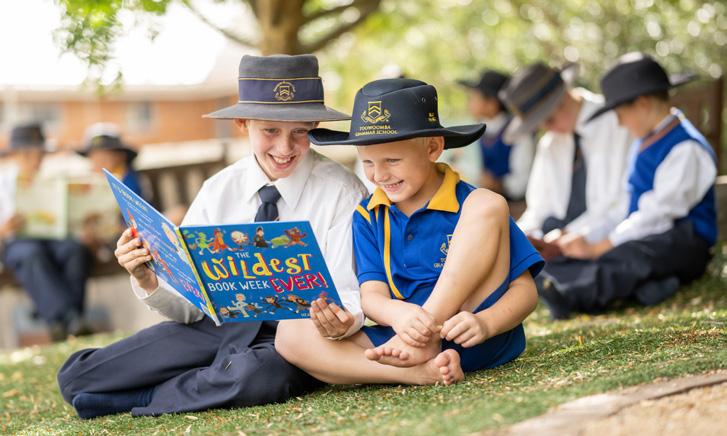
an important element of every day. The connection between home and school provides an important source of wisdom and reassurance that our heroes are on the right track, and we’re there when they need a little additional support or guidance. The nature of our guidance evolves over time, but it is truly valued at every stage of the journey. Our community gathers together in different ways each term through regular events like sports, music and assemblies, but also occasional events like Mother’s and Father’s Day, Book Week and Fairs. Belonging to a community is an important feature of an adventure as our heroes draw comfort, inspiration, and motivation from their closest connections, enabling them to extend themselves into the unfamiliar. We value community for the strength of connection, support, and confidence it provides for all of us but especially the boys.
School is a wonderful adventure; one we wish for our boys to throw themselves into with great confidence and curiosity. Seeking out new knowledge, skills, and experiences, to develop themselves as young people making a positive impact on the world around them. Educating boys and developing their good character for life, what a great adventure!
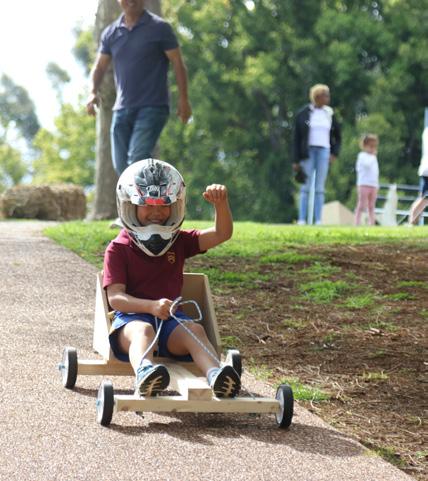
As a member of the Junior School Leadership Team at Toowoomba Grammar School, my role involves ensuring that the Junior School’s Teaching and Learning programs are designed, implemented and managed effectively
This role is grounded in the vision, mission, and values of TGS and is crucial in supporting the Head of Junior School and the Director of Studies in providing an exceptional learning experience for our boys.
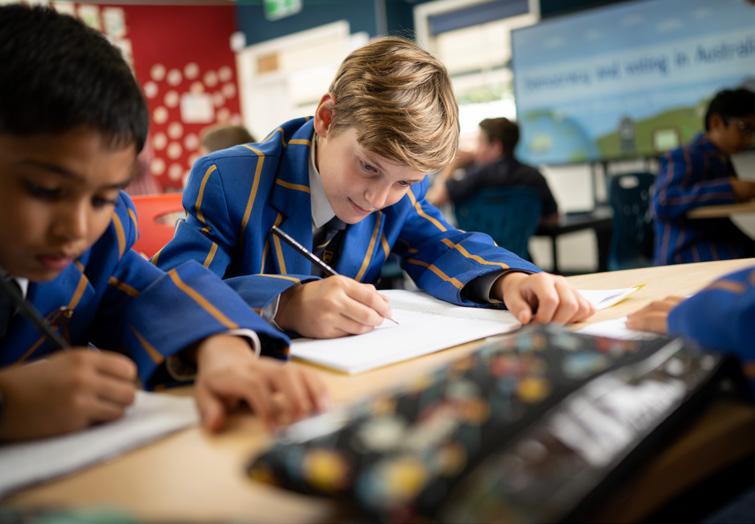
At TGS Junior School, we prioritise the use of explicit teaching to ensure that our students receive a systematic, direct, and structured approach to learning. We believe that this approach helps our boys to develop a deep understanding of the content being taught and acquire the necessary knowledge and skills for academic success. Our teachers use various techniques such as modelling, guided practice, and feedback to ensure that students are actively engaged in the learning process.
Literacy is also a critical component of our educational program, and TGS Junior School places a high priority on promoting literacy skills. Our teachers provide a range of opportunities for students to develop their reading, writing, speaking, and listening skills. We believe that literacy skills are essential for academic success and lifelong learning.
We recognise the importance of care and wellbeing in education. We prioritise creating a positive learning environment where our students feel safe, supported, and valued. Our teachers are able to recognise, and cater for, the different learning needs of each student and provide appropriate support to promote academic and social-emotional development.
In my role as Deputy Head (Teaching and Learning), I work closely with the Junior School teaching staff
and operations and support staff to develop and implement professional learning plans aligned with the strategic goals and priorities of our School. I also support the ongoing development of the Junior School teaching staff through coaching, mentoring, and professional development opportunities.
Roles that involve the leading of teaching and learning at TGS Junior School are critical in ensuring that our students receive a high-quality education that is grounded in explicit teaching, literacy, care, and wellbeing. Through the use of evidence-based teaching practices and a focus on the whole child, we are committed to providing an exceptional learning experience that prepares our boys for a successful future.
Year 3 student (2022), Takumi Inoue thrilled with the annual student and parent billy cart building and racing day.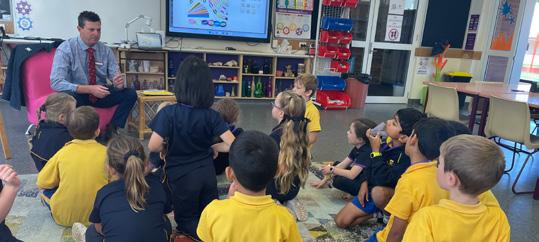
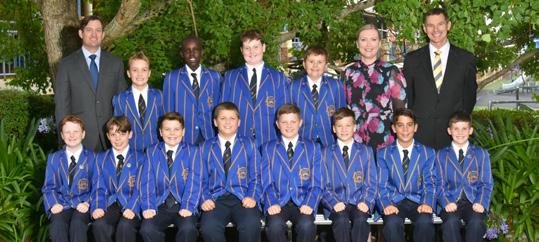
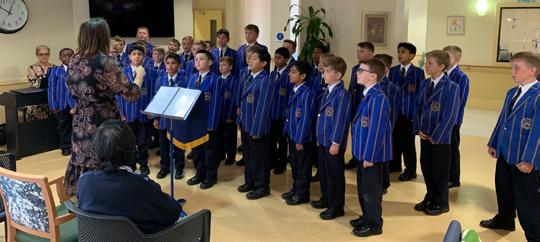
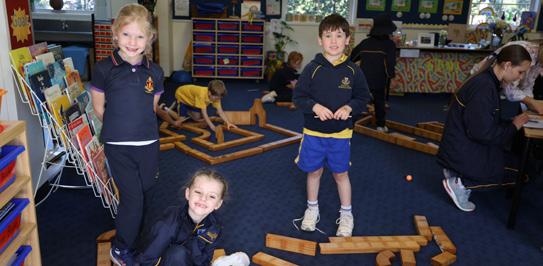
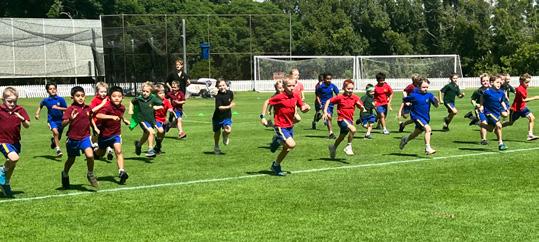
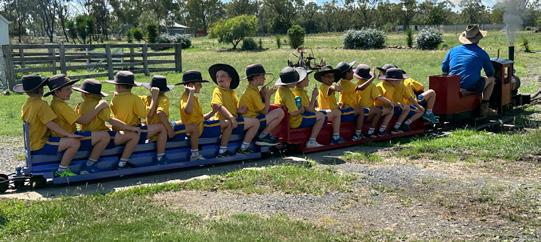
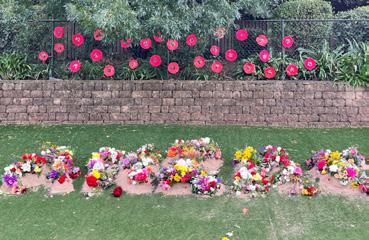
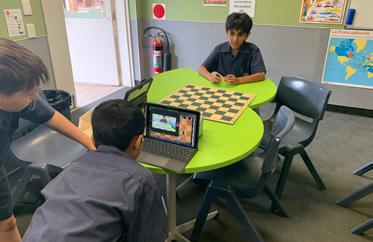
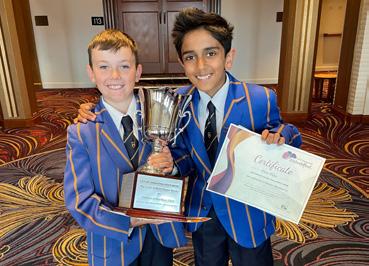

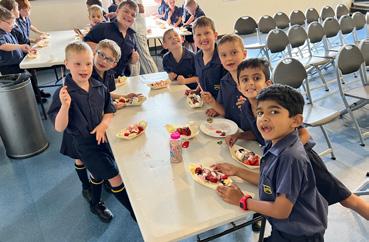
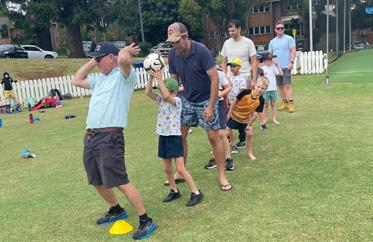 The annual ANZAC flower laying ceremony continued this year
Year 6 students, Ruhan Bulchandani and Sarkis Panta playing chess
Winners are grinners, (L-R) Everad Hamilton and Ruhan Bulchandani
Year 2 boys at The Glennie School
Chess success at the IPHSA chess tournament, Team 1 winners: (L-R) Thenul Ratnayake, Hiresh Wanasinghe, Ruhan Bulchandani and Isaac Tebbutt
Banana splits all around at MasterChef Club
Outdoor Education Week - Lots of fun games with the boys and their parents on the Year 2 camp
Under 7s race started off well at the Cross Country Championship
“Tribe” performing at Blue Care
2023 Junior School Leaders: Front Row: (L-R) Kyran Brown, Baxter Stirling, Samuel Kemp, Artie Hudson, Charlie Barwick, Ben Browett, Joseph Ramia and Will Jenkins. Back Row: (L-R) Mr Ken Raven, Tom Oliphant, Jok Jok, Charlie Mowbray, Darcy Dunk , Mrs Chantelle Bauer, Mr Mike Sharpe
Year 2 boys on an excursion to the Jondaryan Woolshed
The annual ANZAC flower laying ceremony continued this year
Year 6 students, Ruhan Bulchandani and Sarkis Panta playing chess
Winners are grinners, (L-R) Everad Hamilton and Ruhan Bulchandani
Year 2 boys at The Glennie School
Chess success at the IPHSA chess tournament, Team 1 winners: (L-R) Thenul Ratnayake, Hiresh Wanasinghe, Ruhan Bulchandani and Isaac Tebbutt
Banana splits all around at MasterChef Club
Outdoor Education Week - Lots of fun games with the boys and their parents on the Year 2 camp
Under 7s race started off well at the Cross Country Championship
“Tribe” performing at Blue Care
2023 Junior School Leaders: Front Row: (L-R) Kyran Brown, Baxter Stirling, Samuel Kemp, Artie Hudson, Charlie Barwick, Ben Browett, Joseph Ramia and Will Jenkins. Back Row: (L-R) Mr Ken Raven, Tom Oliphant, Jok Jok, Charlie Mowbray, Darcy Dunk , Mrs Chantelle Bauer, Mr Mike Sharpe
Year 2 boys on an excursion to the Jondaryan Woolshed
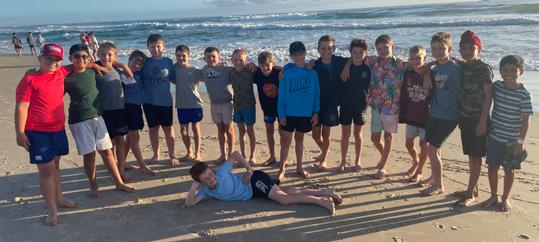
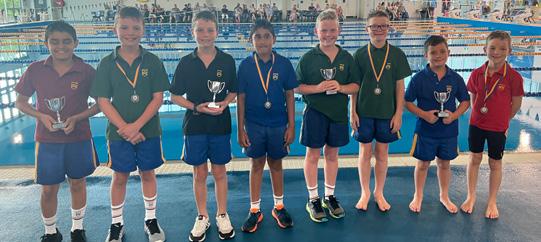
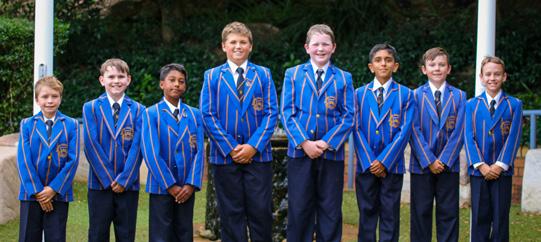
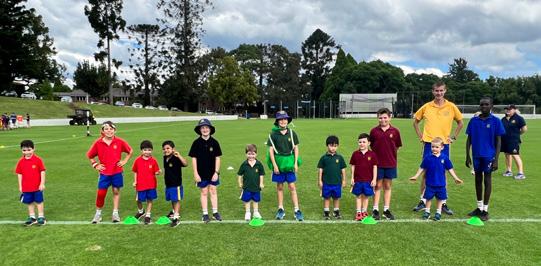
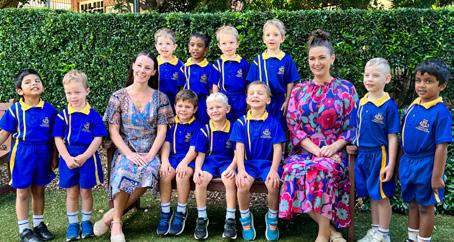
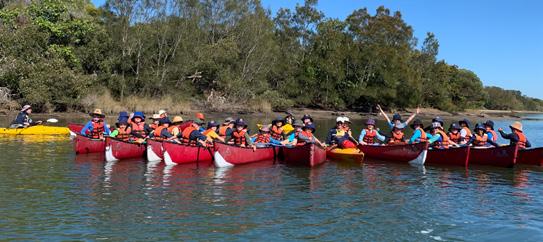
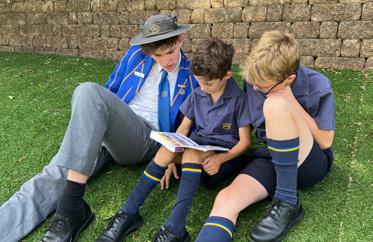
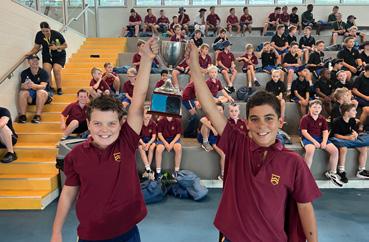
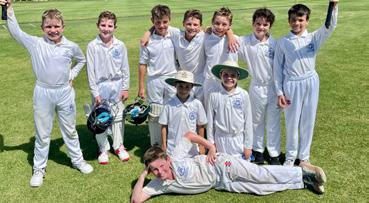
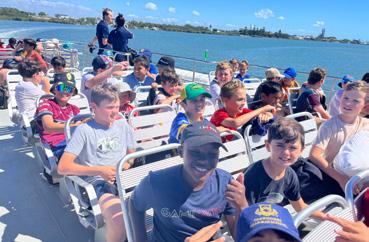
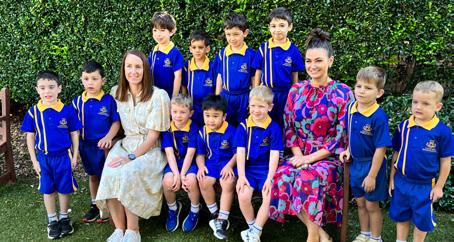
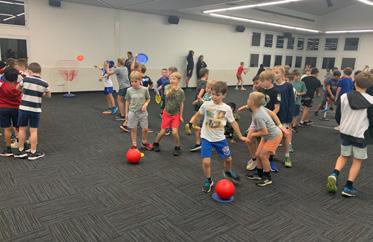 Year 12 students come down from the Senior School to help out at DEAR (Drop Everything and Read) time. (L-R) Will Smith, Charlie Hall, Connor Talbot
Boyce House won the Spirit trophy, Sam Kemp and Joseph Ramia celebrate at the House Swimming Carnival
Term 1 GPS sport. 5B Cricket team after their win: (L-R) Fletcher Keating, Tyler Kirkman, Angus Le Roux, Fred Hudson, Will Brown, Fletch Eaton, Henry Schrale, Charlie Hall, Sam Stains and Billy Sheridan
Year 5 boys on their morning walk along the beach at Camp
Under 9 – Under 12 Swimming Championships Age Champions and Runners up: (L-R) Sarkis Panta, Cooper Chappel, Fred Hudson, Hiresh Wanasinghe, Charlie Beverland, Connor Talbot, Jordan Seddon, Harry Spencer
Year 6 boys on their way to Stradbroke Island for their camp
Years 3 and 4 boys play indoor activites at the Sunshine Coast camp
Prep O: Front Row: (L-R) Tammy Sandhu, Charlie Hayes, Mrs Ellie O’Connell, Angus Griffiths, Billy Gamble, Benny Loughlin, Miss Madison Payne, Abel Hardeman, Savith Wijayaratne. Back Row: (L-R) Theo Banks, Reyan Arthikaran, Eddie Williamson, Finn Kropp
Prep G: Front Row: (L-R) Huxley Ryan, Enzo Klarich, Mrs Amelia Grills, Franklin Hede, Dante Pi, Frank O’Reilly, Miss Madison Payne, Lawson Murray, Edward Cook. Back Row: (L-R) Harry Sherman, Seth Snoek, Christopher Killick, Shray Upadhyay
2023 Music Leaders: (L-R) Tom Williamson, Henry Constable, Liam Galappaththi, Artie Hudson, Edward Boland, Ruhan Bulchandani (Captain of Music), Red Hamilton and Smith Waring
Years 3 and 4 boys really enjoyed the canoeing at camp
Year 12 students come down from the Senior School to help out at DEAR (Drop Everything and Read) time. (L-R) Will Smith, Charlie Hall, Connor Talbot
Boyce House won the Spirit trophy, Sam Kemp and Joseph Ramia celebrate at the House Swimming Carnival
Term 1 GPS sport. 5B Cricket team after their win: (L-R) Fletcher Keating, Tyler Kirkman, Angus Le Roux, Fred Hudson, Will Brown, Fletch Eaton, Henry Schrale, Charlie Hall, Sam Stains and Billy Sheridan
Year 5 boys on their morning walk along the beach at Camp
Under 9 – Under 12 Swimming Championships Age Champions and Runners up: (L-R) Sarkis Panta, Cooper Chappel, Fred Hudson, Hiresh Wanasinghe, Charlie Beverland, Connor Talbot, Jordan Seddon, Harry Spencer
Year 6 boys on their way to Stradbroke Island for their camp
Years 3 and 4 boys play indoor activites at the Sunshine Coast camp
Prep O: Front Row: (L-R) Tammy Sandhu, Charlie Hayes, Mrs Ellie O’Connell, Angus Griffiths, Billy Gamble, Benny Loughlin, Miss Madison Payne, Abel Hardeman, Savith Wijayaratne. Back Row: (L-R) Theo Banks, Reyan Arthikaran, Eddie Williamson, Finn Kropp
Prep G: Front Row: (L-R) Huxley Ryan, Enzo Klarich, Mrs Amelia Grills, Franklin Hede, Dante Pi, Frank O’Reilly, Miss Madison Payne, Lawson Murray, Edward Cook. Back Row: (L-R) Harry Sherman, Seth Snoek, Christopher Killick, Shray Upadhyay
2023 Music Leaders: (L-R) Tom Williamson, Henry Constable, Liam Galappaththi, Artie Hudson, Edward Boland, Ruhan Bulchandani (Captain of Music), Red Hamilton and Smith Waring
Years 3 and 4 boys really enjoyed the canoeing at camp
As Senior Prefect at Toowoomba Grammar School, I have had the opportunity to witness the benefits of being an all-rounder firsthand.
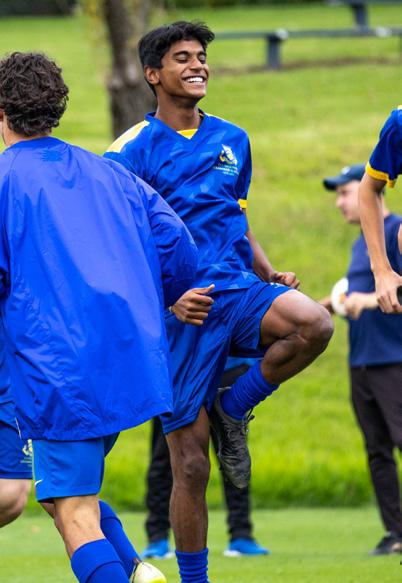
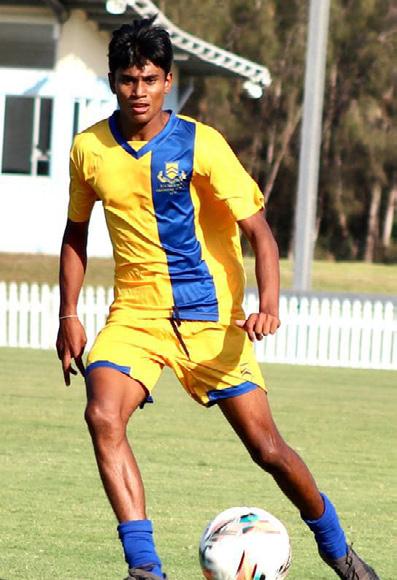
With the various activities and programs the School offers, the ability to be involved in as many things as possible is not only enjoyable but brings about numerous benefits that extend far beyond the school years.
Ranging from sports to drama and debating, participating in anything the School has to offer is an excellent way to make friends and build networks of like-minded people. Being able to play and perform with the same group of boys all the way from Years 7 to 12 allows a different type of connection not found in your classroom. By tapping into the different aspects of the School, you meet new people and learn from them, developing a sense of trust and respect. Whether it be on the sporting field, in the classroom or on the stage, relationships formed in these younger years are still as strong when you grow older and are sure to continue to flourish after school, making them so valuable. Doing all I can in school has given me these longlasting relationships and has led me to enjoy my journey through the School with boys I respect and have fun with.
There is an ever-present opportunity to develop a variety of skills by being an all-rounder. Taking part in many different activities requires you to have different skill sets. With cricket, I
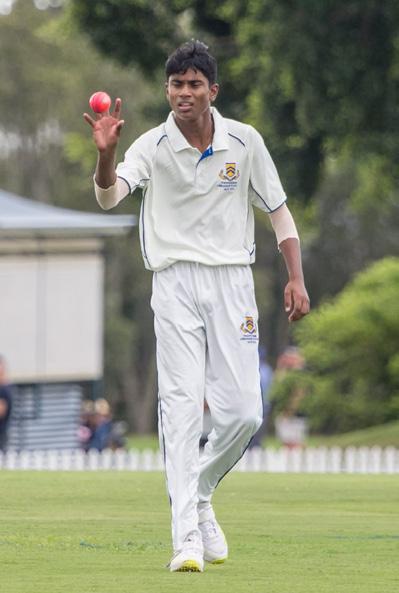
learnt the importance of focusing on your own game as it is an individual challenge at times. However, with football, I quickly noticed that you must rely on your teammates heavily and the significance of communication. For the “Read My Lips” performance which focuses on drama, I understood that it was not my strong suit, making me take a step back and allowing those who are more experienced to take the lead. This highlights how different activities and sports require different skills and by partaking in these activities, you can learn things such as teamwork, communication and humility which are all useful in your schooling and future years.
Whilst getting involved in as much as possible demonstrates the skills that need developing, it can also show your strengths and opportunities for personal growth. It allowed me to discover my passion for cricket and football and my interest in other activities. Through playing chess with some boys in my Year 9 class, I realised my interest in playing the game and started to enjoy it. By trying everything, you can discover what you are passionate about and this can help you to discover what you want to pursue in life.
Being an all-rounder enables boys to learn beyond the confines of the classroom and acquire skills that can be applied in real-life situations. As a result, I have certainly become a more well-rounded individual, capable of tackling a variety of challenges and pursuing different opportunities. With this, I encourage all students to get involved in as many activities as possible and take advantage of the opportunities that Toowoomba Grammar School has to offer.
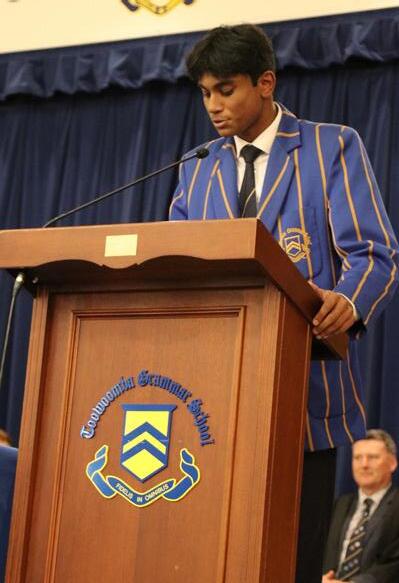
I started throwing in Year 5. I was a keen cricket player and discovered that I had a naturally good arm. One cricket training session particularly, I remember my coach asking me to throw the ball as far as I could from the boundary on Mills Oval.
The ball landed about two metres short of the centre wicket stumps. From there I was directed to lunchtime and afterschool Track and Field training sessions with the Senior boys, where coaches such as Lara Neilson, Tim Davies, Matt Denny and Grahem Pitt (Pitty) all taught me the ins and outs of throwing a discus. I still train with Pitty year-round for five sessions per week, consisting of throwing, drilling and gym sessions.
I proved to be a fast learner among experienced coaches, picking up technical cues relatively smoothly. My most prized achievements at that time were my two Junior GPS discus records, in the U10 and U11 age groups. Back then I looked up to Conor McLoughlin primarily, a senior student at the time who was national champion in discus. As I would watch him throw these massive 1.5kg discus over 50m, I started to gain curiosity about the technical and physical sides of the sport.
My most memorable moments and favourite major competition wins consist of the 2021 GPS Championship and the 2022 Australian Championships. GPS 2021 is probably the most memorable and enjoyable competition I have participated in. I was competing under lights with a great atmosphere, as the Toowoomba and Ipswich crowds were rowdy in the stands. I will never forget entering the circle on my third-round throw, Toowoomba’s war cries overwhelming the stadium, and throwing my 1kg discus out 65m, just a few metres short of Matt Denny’s GPS record.
The 2022 Australian Schools Championships was a three-day carnival held in Adelaide. My U17s Discus (1.5kg) was held on the first day and I was coming in as favourite by about five metres, seeded to throw 55.40m, although I knew that it would be a competitive event. In the end, I threw 57.79m and won by four metres! I had a fair bit of pressure placed on me leading up to the competition, because I am known in the throwing community to have come from Pitty’s program, the same as Matt Denny, Jimmy Gordon and Conor McLoughlin (internationally successful discus throwers from TGS over the past decade), so I was expected to reach their high standards. It felt especially relieving and rewarding when I lived up to the expectation in front of friends, family, and spectators.
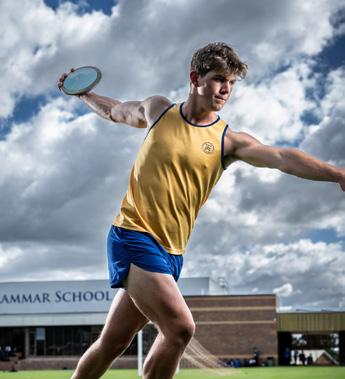
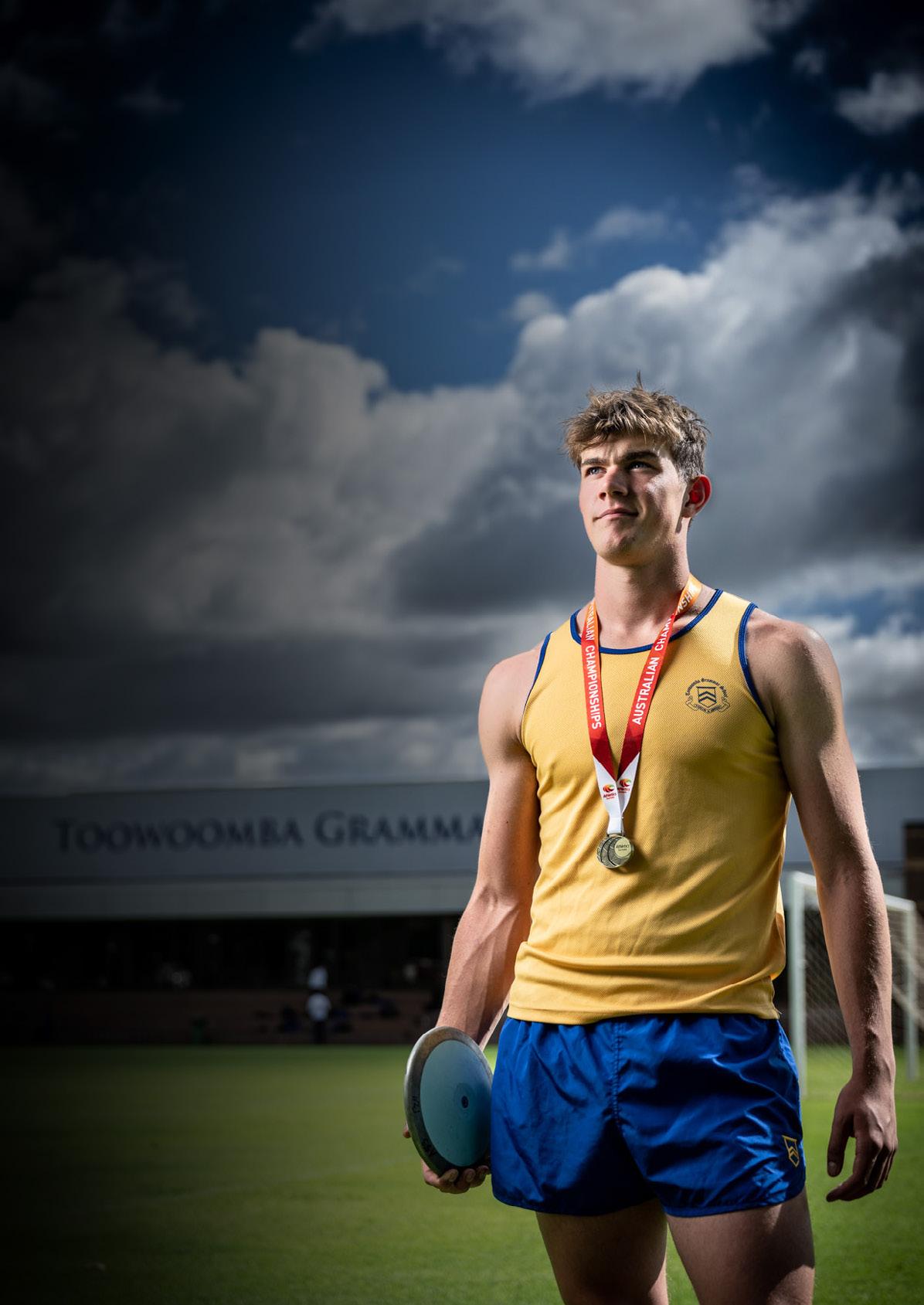
The next step for me is to hopefully be selected to represent Australia later this year in the Commonwealth Youth Games, which will be held in Trinidad and Tobago. From there, I hope to be selected in future Australian squads for the World Junior, World University Games and beyond while studying at UQ or QUT.
My advice to young TGS boys would be to take advantage of the countless opportunities provided to you by the School; not just in sport, but in the array of unique opportunities which every Grammar boy is presented with in the arts, community, and academic programs. Each opportunity you are presented with has the potential to open doors, whether they are big or small, and these have led to lifechanging experiences for many TGS boys in the past. I am thankful to the School for the support they have shown all Grammar boys, which has ultimately led to my recent athletic successes.
Given the transition into secondary school occurs at a time when students are experiencing (or set to experience) the onset of puberty which requires them to cope with the most significant physical, cognitive, and socio-emotional changes in their lives, we recognise the need for an orientation process and seamless transition to cater to students’ need for increased support at this pivotal time. We understand the impact these changes have on boys’ behaviour and their capacity for learning. Therefore, the transition to the Senior School at Toowoomba Grammar School focuses on connection and belonging through the development of quality relationships, diversity of experiences made available, and skills for Executive Function taught explicitly.
Research shows that Year 7 boys transitioning into secondary school are experiencing unprecedented developmental and cognitive changes and these changes are likely to impact their ability to engage in the classroom and to organise themselves daily. Providing adequate support for their transition means ensuring that we provide continuous opportunities to develop students’ organisation skills so that they may gain increasing independence and resilience as learners.
Through the Australian Curriculum, students develop personal and social capability as they learn to understand themselves and others, and manage their relationships, lives, and learning more effectively. The capability involves students recognising and
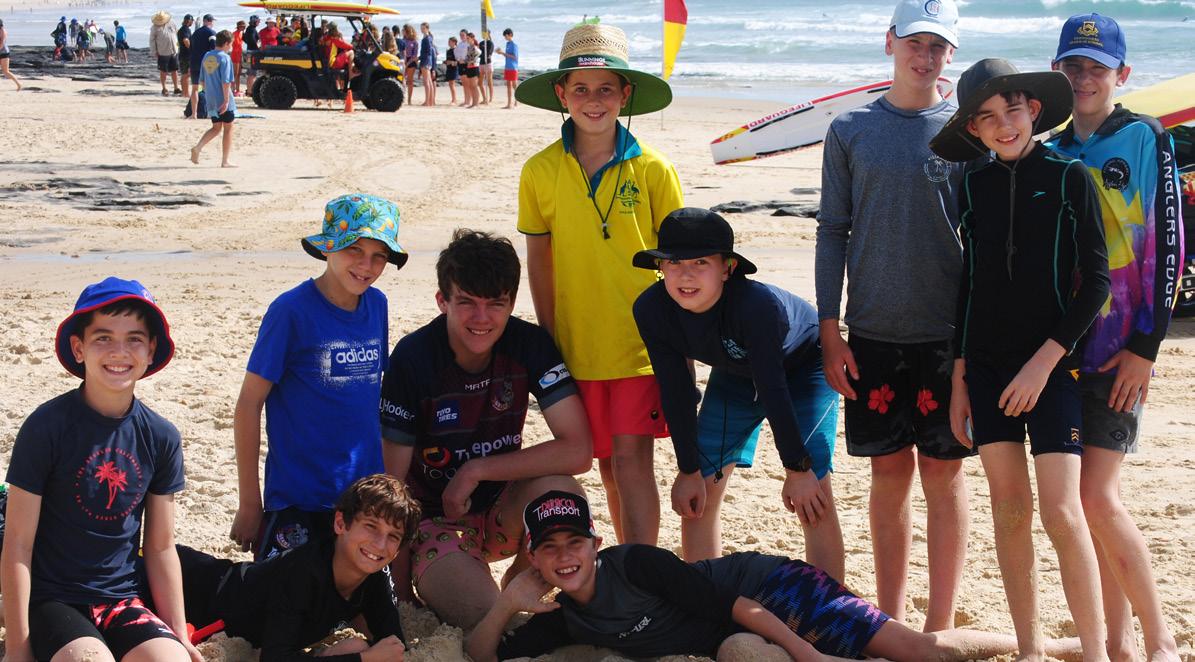
regulating their emotions, developing empathy for others, and understanding relationships, establishing and building positive relationships, making responsible decisions, working well in teams, and handling challenging situations constructively. Our Pastoral Care Program at TGS is integral to developing boys’ personal and social capabilities and helping them transition to the Senior School.
By Jodi Blades, Head of Year 7To avoid stress, fear, anxiety, and other negative emotional responses to beginning secondary school that may impact upon students’ neurological capacity to learn and their wellbeing, we provide an orientation program that is positive, safe, relevant, and emotionally appealing. The orientation program includes Grammar Boy for a Day which is a transition day to
Year 7 boys enjoying beach activities at camp: (L-R) Noah Richardson, Lewis Lamble, Olly Lamble (Year 12), Charlie Pollock, Riley Frappell, Sam Head, Darcy Walters, Joseph Sedl Lying down: (L-R) Cooper Dando, William Wardgain more understanding of and familiarity with TGS; an Orientation Day in November focuses on introducing new boys and current Year 6 boys to the Senior School; and an Orientation Day in January is the first day of school when all Year 7 students are welcomed to TGS. Spending time with their Mentor in Pastoral Care Groups throughout the morning, provides support through the orientation process of understanding timetables, locks and lockers, school diary, laptop induction and expectations of behaviour and learning.
The TGS community is built upon a strong foundation of connection and belonging, hence all Year 7 students are part of a small Pastoral Care Group, within their House, which allows interaction within the year level and fosters a sense of belonging and community. The purpose of the Pastoral Care Group is for each boy to develop positive relationships with others, including peers and staff. Mentor teachers get to know the boys individually and support them in developing good organisational habits and executive function capacity. Goal setting and establishing a sense of purpose is achieved by helping students identify their strengths, passion and interests and setting achievable targets that can be developed throughout their schooling. Mentors monitor the boys’ academic progress, encourage participation in the co-curricular program and provide
advocacy for each boy in their care. Mentors also establish a partnership between families and the School. When boys feel like they belong, it has a positive impact on their attitude and motivation to learn, and their ability to form quality relationships that can support their learning and wellbeing.
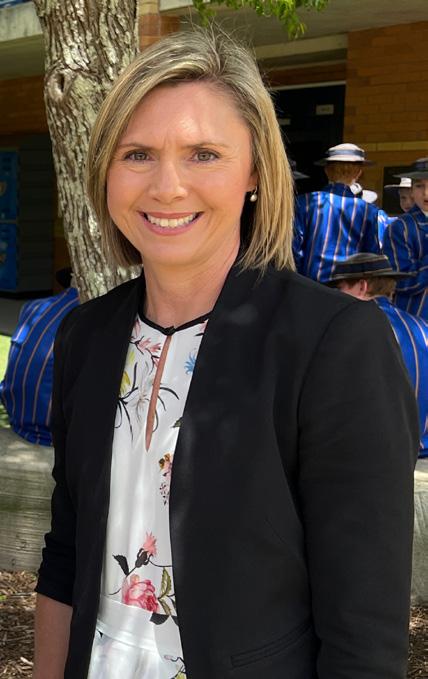
The Big Mates program is a mentoring program whereby Year 7 students have a ‘big mate’ in Year 12, in their House, who meet with them regularly during PCG time to develop a positive and supportive relationship.
A Year 7 Activities Afternoon is a wonderful opportunity for the boys to get to know other boys in Year 7 and to develop confidence and socialisation skills.
A History Tour conducted by an Old Boy, encourages our Year 7 boys to appreciate the history and traditions of the School and build a connection with our community.
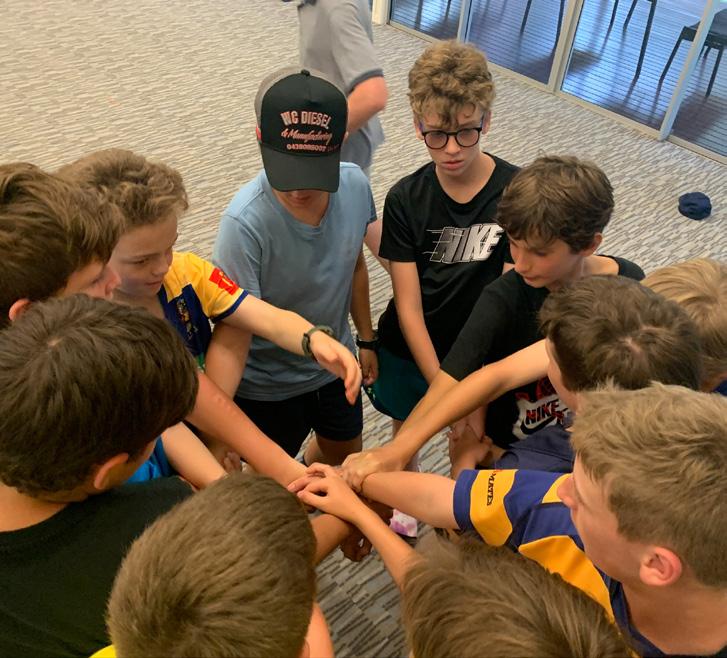
The Year 7 Camp occurs during the Senior School Outdoor Pursuits and Activities Week at the end of Term 1. The four-day camp is a great opportunity to develop friendships. The focus of the camp is to develop independence, responsibility, and confidence, as well as building positive relationships with peers and staff.
An effective transition from primary to secondary school is fundamental to future success in learning and
wellbeing at school and beyond. It is during this transitional period that important habits are formed, opportunities arise, and goals are set which can establish a positive trajectory for a Year 7 boy’s character development and academic journey. Establishing healthy routines, such as downtime, connecting with friends and family, regular exercise, healthy eating, good sleep hygiene, positive digital citizenship, leadership and effective homework and study habits will benefit boys in developing independence, resilience, selfconfidence, and self-discipline.
Transitioning from primary to secondary school can be daunting, and there may be moments when Year 7 students feel overwhelmed, stressed, or disheartened. By developing healthy coping strategies and a growth mindset, students can face challenges with resilience and determination. This will help them navigate the ups and downs of secondary school and prepare them for future challenges and life-long wellbeing. With the support and guidance we offer, and perseverance, each young man of Year 7 at TGS can thrive in his new environment, achieving academic success and developing good character so he can flourish as an individual, contribute to society and lead a meaningful life.
Developing bonds on Year 7 camp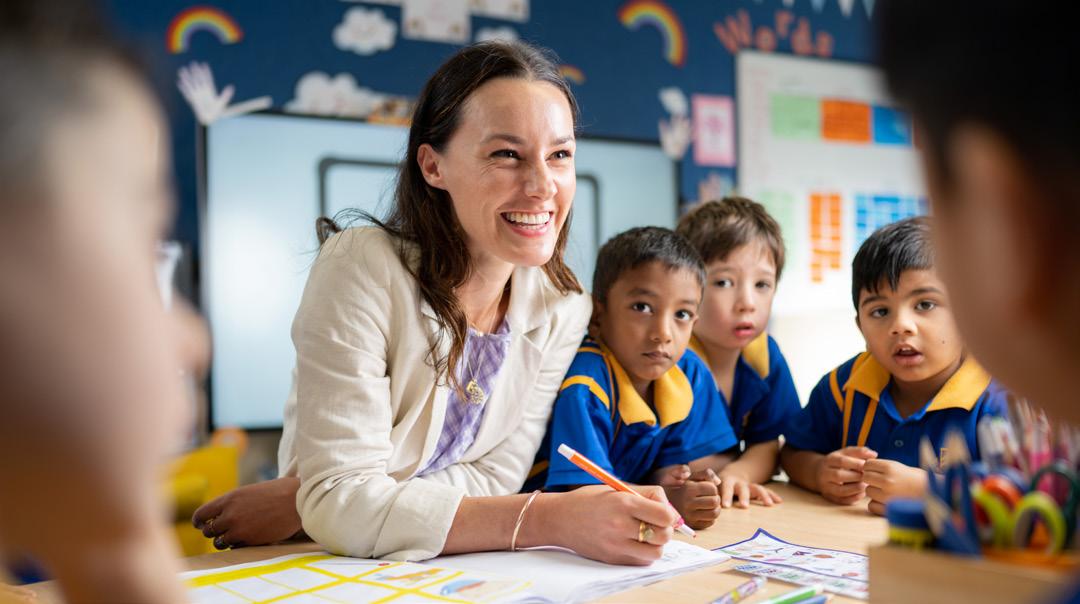
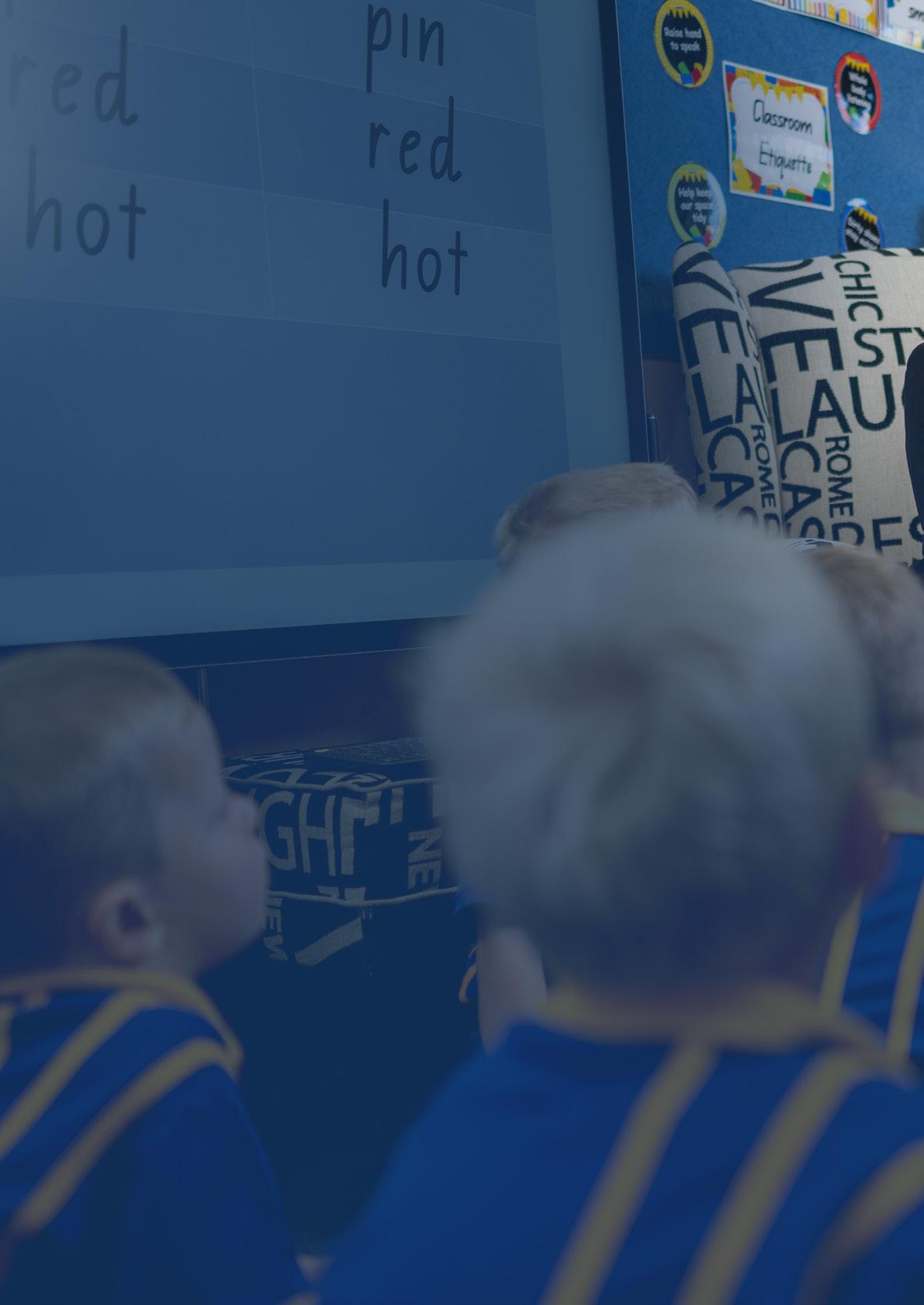
Our teachers are passionate about ensuring the boys develop the skills to be of good character. The staff of Toowoomba Grammar School have designed a pastoral care program specifically for our Junior School boys. Our REACH program (Respect, Engagement, Awareness, Communication, Humility) is a character development program that flows from Prep to Year 6. Boys are engaged in age-appropriate lessons designed to develop their sense of self and their respect for, and acceptance of, others.
Our classrooms are like a home away from home where our littlest Grammar boys feel safe and nurtured. They provide the opportunity for our boys to develop a sense of belonging. The rooms are welcoming, calm, and cosy. Each classroom has a class pet that the boys engage with daily. They learn about the responsibility of looking after a pet and in doing so further develop their social and emotional skills.
We celebrate their enthusiasm for learning, and the boys are encouraged to be brave when engaging in challenging academic activities. We provide them with learning opportunities that are tailored to their interests and challenge them through stage-appropriate activities for boys. It is crucial to build strong academic foundations. We provide our youngest boys with the opportunity to develop the fundamental skills that are required to support them in their learning journey.
Reading plays a significant role in a child’s academic success. From the first day of Prep here at TGS, our boys are involved in a structured phonics program that provides them with clear and sequential steps that develop their skills in reading and writing. Our littlest boys work in small groups in literacy lessons throughout the year. This ensures that learning is tailored to their individual academic needs. In maths, we have a multisensory approach where we utilise concrete materials to develop the foundations for mastering this subject.
The boys are encouraged to engage in School life as much as possible and to explore new activities when the opportunity presents.
They can participate in a variety of co-curricular activities after school, such as Lego Engineering, Circus Games and Master Chef. We recognise the importance of sport and performing arts for many of our boys. We have weekly swimming lessons in our Aquatic Centre, and PE lessons. Our Prep boys participate in the local Club Football (soccer) and Club Rugby competitions as part of a TGS team, with training taking place at TGS, making things just that little bit easier for busy parents. The School also offers individual singing and piano lessons for the Prep boys on a user-pays basis. These lessons happen during the school day, before and after school.
We are a family at TGS. Our boys are not just classmates, they are brothers and will be brothers for the rest of their lives. They are encouraged to support and look after one another. Our boys interact across all year levels through
House activities and meetings, on the playground, at assemblies and through our MATES program, where older boys are buddied with younger boys on a regular basis to engage with, and learn from, each other.
We also have Year 12 boys visit our Junior School boys to help with reading and to teach the traditions of our School such as the war cries.
Prep at Toowoomba Grammar School is special. The boys feel safe, nurtured and encouraged as soon as they enter the school gates. They engage with many opportunities to ignite their love of learning, to discover their passions and celebrate the wonderful things they can achieve.
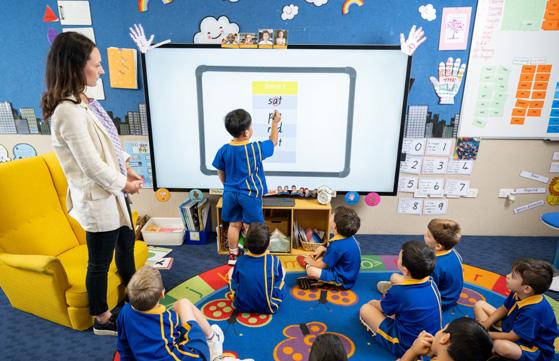
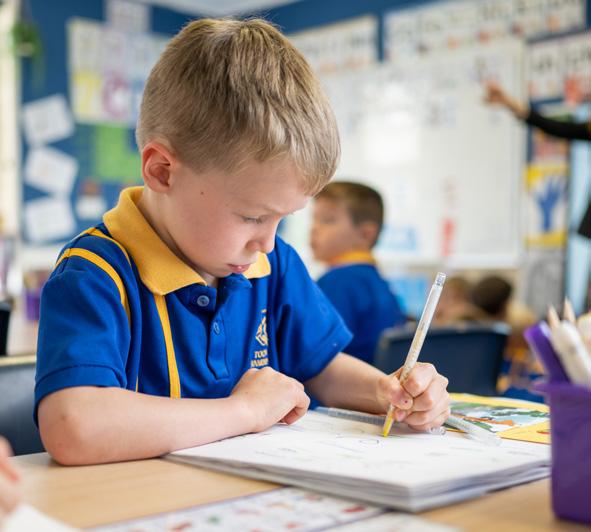
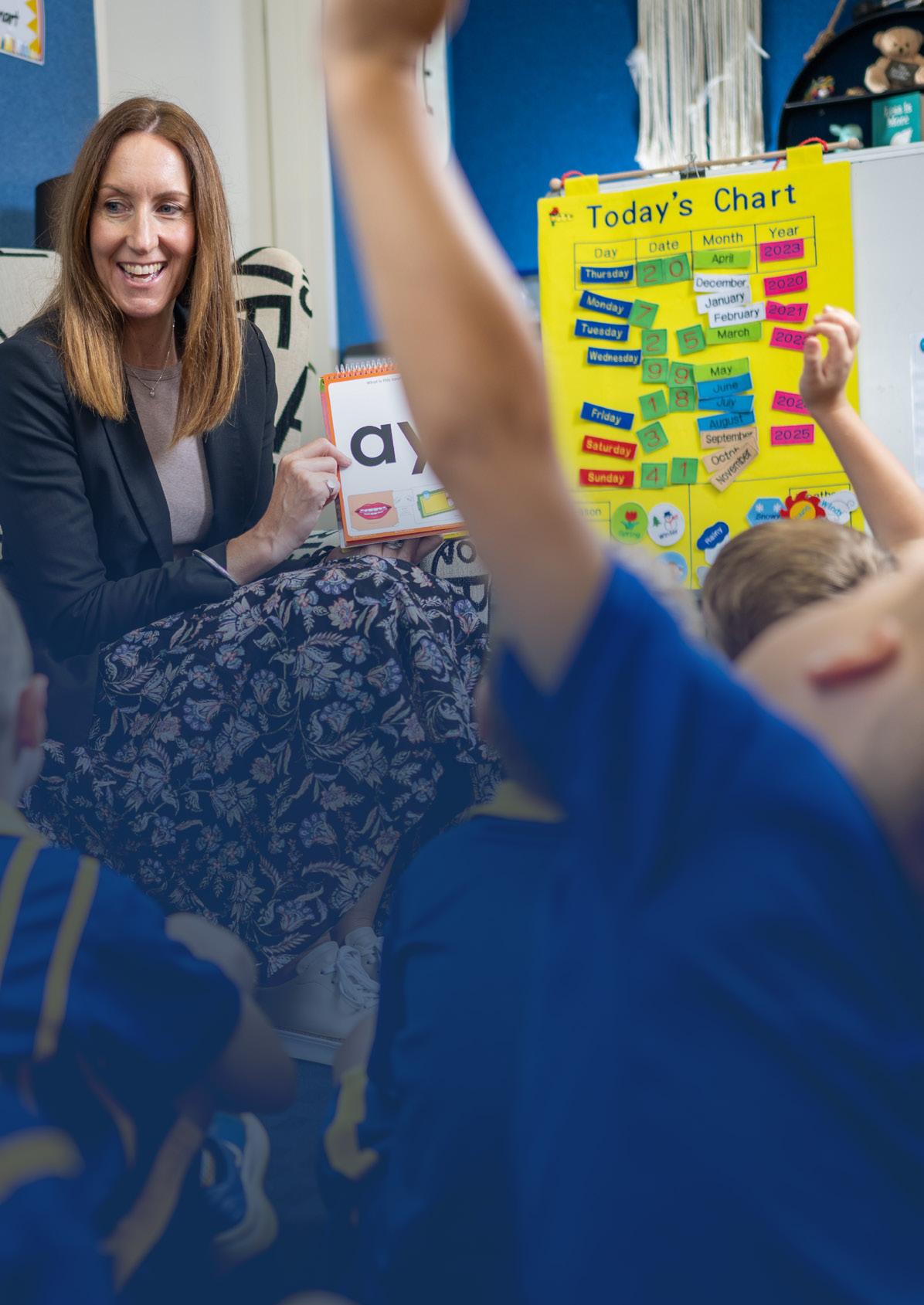
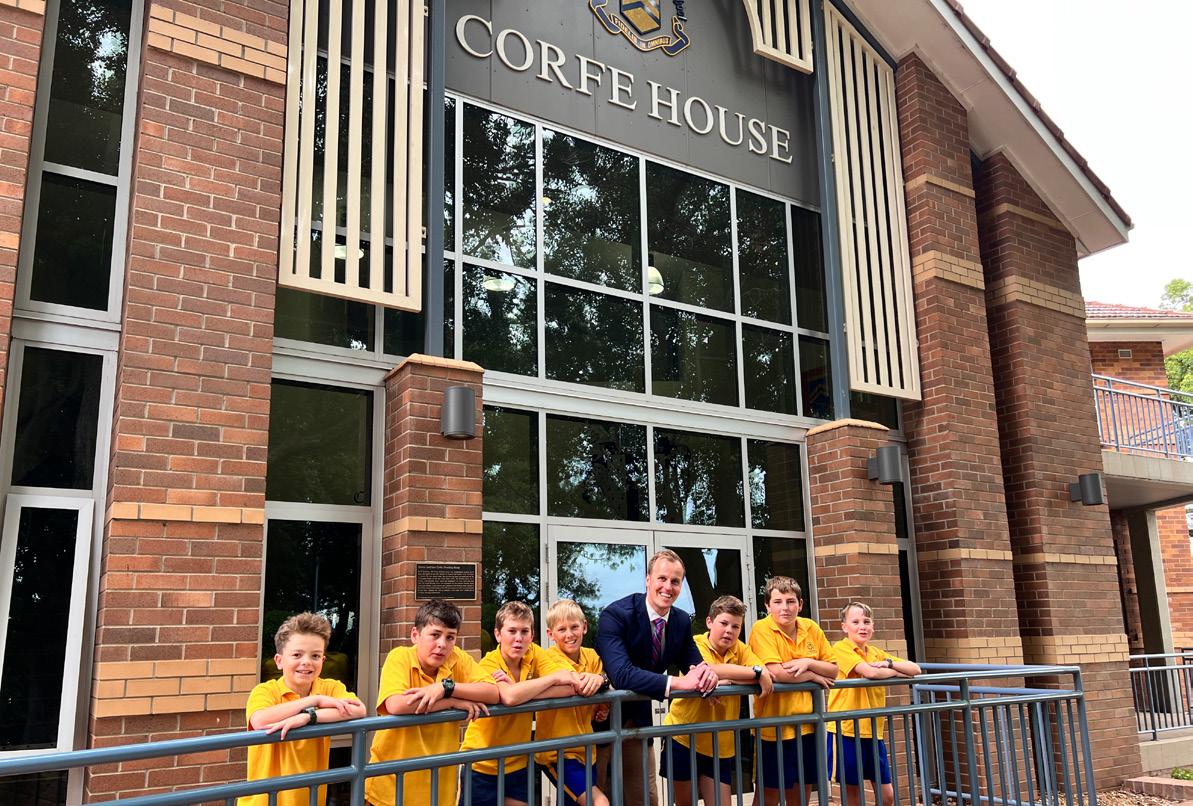
The skills, relationships, and perspectives that boys develop during this transition year set them on a bearing for the rest of their boarding journey; and what’s more, their exposure to such factors during these formative and impressionable middle years has a profound impact on their character.
In practice, the Corfe program entails an ‘entry and exit’ plan to book-end the experience.
Establishing clear lines of communication and providing opportunities for families to meet and build their own connections prior to the boys’ entry into Corfe is the first step in our broader plan. This is a daunting experience for new boarders, and we are not naïve to parents’ own worries.. Our aim is to assuage these anxieties and instil a sense of confidence through early and tangible connections. In building these connections, we visit boarders’ communities and pursue home visits to meet with prospective families and engage with boys in their home environment.
Boarding events are organised early each year to provide boys and families with a taste of boarding life here, and an opportunity to rub shoulders with future friends and contacts.
Upon arrival in Corfe, we endeavour to ensure that boys are welcomed into an environment that emulates a home. We establish clear boundaries, routines, and duties that mimic a typical household. We set boys up to lead themselves and develop a sense of independence. Within Corfe’s daily routine, boys adhere to firm expectations pertaining to timings, room inspections, extracurricular pursuits, and prep (homework). These routines are designed to build boys’ discipline and resilience, thus allowing them to thrive at school, on the sporting field, and in their relationships, all within a supportive and nurturing environment. This is a fundamental aspect of effective boarding at this impressionable age, and a responsibility bestowed upon us by the families invested in our program. It is through this consistency that we ensure our boys’ transition from home to boarding is structured, familiar and secure.
Boys must feel welcomed and have opportunities to feel at home in their new House. Camaraderie is a fundamental concept within Corfe and an integral ingredient to ensure that effective transitions are made; our program is designed to help our boys feel this sense of pride and community within our House. We endeavour to provide opportunities
for team building and incorporate a range of informal events and outings to promote positive social dynamics. There are formal opportunities for team building, such as the Boarders’ Orientation weekend, Dorm of the Week, and our House Cup, where boys are required to work collaboratively within their respective dorms to earn points through acts of kindness, voluntary contributions, and adherence to routines.
We also endeavour to provide opportunities for boys to extend their relationships beyond Corfe to their respective senior houses, thus initiating their transition into vertical boarding from Years 8 to 12. Strategically, our first step in drawing these connections coincides with Corfe’s academic program. Each evening, four to six Years 11 and 12 boarders come to Corfe House and work amongst our boys, providing peer support, guidance, and opportunities for tuition. This helps Corfe boarders establish supportive networks for their boarding journey, and sets the tone for academia within the larger boarding experience. Once a week in Term 4, as our boys begin their formal transition into their senior houses, they will share a meal with their respective senior house and complete prep and team building initiatives with them.
Due to the nature of Corfe’s transitional experience, establishing positive transitions is at the heart of what we do. While the boys’ time in Corfe is relatively short, we strive to make it a memorable opportunity that sets the boys up for success in, and beyond, their boarding journey.
(L-R) Angus Paffey, Hugh Fay, Jack Lethbridge, Alec Michel, Mr Henry White, Charlie Beckwith, Hugh Gordon, Clancy KaneThe boarding journey offers students a plethora of opportunities to step outside of their comfort zone and take advantage of new environments, relationships, and opportunities during their time at Toowoomba Grammar School.
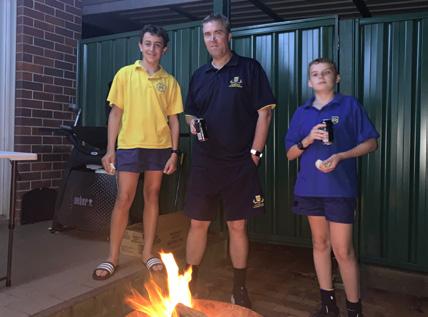
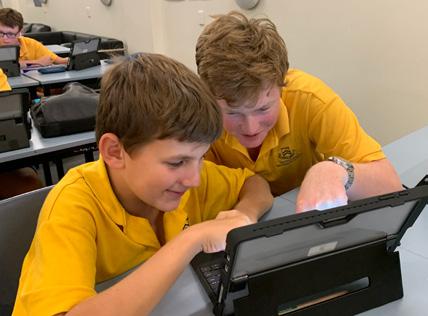
We often talk about “character education” – a theory that originated in the US and has been increasingly embraced by leading schools globally. It is encouraging all students to develop new approaches to their learning, including aspects of morals and ethics, thinking, behaviour and risk taking.
Risk taking is not something we do naturally; and the older we become, the more risk-averse we become. Adolescence tends to be the time in the lives of boys when they are most likely to be ready to take risks, with the exception of in the classroom (unfortunately). Boys are particularly mindful of asking questions of their teachers or even putting their hand up in class. Why? The fear of getting it wrong.
Boarding at TGS opens a world of new opportunities and challenges all boarders, all students in fact, to step outside of the familiar and try something new. Since its introduction just over a year ago, the TGS Boarders’ Activity Program has offered a smorgasbord of opportunity. Furthermore, the appointment of new boarding supervisors in each of the residential houses has given the boys a greater level of exposure to members of staff with new and often diverse interests. Over the next year or so, the challenge for us is to ensure that the new staff are best utilised to support our boarders to explore new avenues and opportunities, and whilst they may not be ‘out of the comfort zone’ in the traditional sense (…think bungy jumping or free fall parachuting…!) they are simply different from what has been provided before.
Students are now able to play golf, get involved in music production or sampling, and go indoor rock climbing. These Sunday offerings get the boys out and about and we will be adding more, and richer, opportunities to the menu on offer.
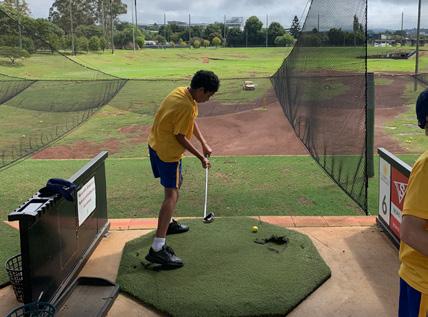
In our post-COVID world, there were three year groups that had never experienced a social event with a girls’ school and whilst, at first, this does not seem to be an ‘edgy’ or ‘out of the comfort zone’ event, it truly turned out to be! Ranging from somewhat nervous to downright terrified – and that was just the staff – the trepidation of a ‘social’ was interesting to behold; however, upon their return from Somerville House in Brisbane, the excitement and enjoyment was real for these boys who had all just stepped out of their comfort zone, taken a risk and simply enjoyed themselves in the company of girls from another school in another city.
Activities take place because of the hard work of staff behind-the-scenes, from Helen Hemmings (Deputy Headmaster’s Secretary) co-ordinating the paperwork, Nick Byron (Director of Boarding) looking after the calendar and individual members of staff giving up their time to support the boys. The entire TGS community is supportive of trying to give every boy every opportunity to flourish and make the most of his time here – step outside their comfort zone, try new things and develop into men of good character, who are resilient and ready to face the challenges of life in the real world.
Head of House - Stephens Boarding, Phil Kefford relaxing with George Tighe and Archie Cameron Will Kris mid swing at the golf driving range Luke Dyer and Lachlan Finlay collaborate during prep timeOur boys at Toowoomba Grammar School are fortunate that Performing Arts is as popular as sport and academics, thanks to our culture of respect and inclusivity
Boys are supported and encouraged to immerse themselves in music, drama and art and are not afraid to chase their dreams in these fields.
The success of our performing arts students dates back decades, with our Old Boys performing all around the world in theatre, music, film and photography and are accomplished and well recognised in their respective disciplines. This tradition has continued, and we have some very recent graduates who will be ones to watch in the years to come.
Sean Johnston (2014-18) was often referred to by staff as the “Hugh Jackman of TGS” and he is well on his way to living up to that reputation. After completing his three-year Bachelor of Musical Theatre with the Queensland Conservatorium of Music in 2021, Sean secured the coveted role as Danny in the musical Grease at QPac and then Sky Rymand in The ShowCo production of Mama Mia on the Gold Coast. But his real claim to fame was playing Link Larkin in the eight-month national tour of Hairspray with Cross Roads Live which just concluded in April. Sean was working alongside some of Australia’s favourite performers including, Shane Jacobson, Todd McKenney and Rhonda Burchmore.
“That was next level,” laughed Sean.
“They have a wealth of knowledge and were so willing to give their time which was awesome. I learnt so much from watching them and having conversations with them.”
He also recently finished filming a Copper Tone sunscreen commercial for US television.
“It is quite surreal to have had such big roles so early in my career, but I have a long way to go and still lots of work to do,” stated Sean.
Like a true Grammarian, Sean remains humble about his success, mixing it with the stars certainly has not gone to his head. He is currently at home in Toowoomba, helping his parents around the house while attending auditions for his next gig; be it theatre, film or TV.
He credits the TGS Performing Arts Department staff for his success.
“I learnt so much more than other high school students, there’s things the staff taught me that I still use in the professional world, and I’ve discovered other people starting out didn’t have access to that advice,” said Sean.
Harrison Mills (2015-21) is currently in his second year at the prestigious National Institute of Dramatic Art (NIDA), studying a Bachelor of Fine Arts – Acting. He was one of only 24 students accepted to the program in 2021, outperforming thousands of hopefuls.
“I absolutely love it,” said Harrison.
“Every day I learn something new that you wouldn’t expect.”
Harrison hopes to develop networks through NIDA and sign with an agent shortly and is keen to learn as much as he can from as many people as possible.
“I am really drawn to theatre, because it’s so beautiful how you can apply different techniques, the purist form of acting is on the stage, but TV and film is great too, I’d love those opportunities too,” said Harrison.
He believes that his time in boarding at TGS really helped prepare him for life after school, particularly his time management and independence. And, like Sean, he has a heartfelt thanks to the staff for their support and guidance.
“I didn’t have a full appreciation of how wonderful our Performing Arts program was until looking back on it now,” stated Harrison.
Julian Lachmund (2008-20) is currently in his third and final year at the Queensland Conservatorium of Music in Brisbane, studying a Bachelor of Music, majoring in violin performance.
“It’s been a challenge, but that’s been a good thing,” said Julian.
“There are a lot of very talented musicians, so it’s been great to work with people of this calibre.”
Playing in the University Symphony Orchestra has been a highlight for Julian, and he enjoys being surrounded by like-minded people with the same passion.
“I had such great support from the TGS staff in the performing arts area,” Julian reflected.
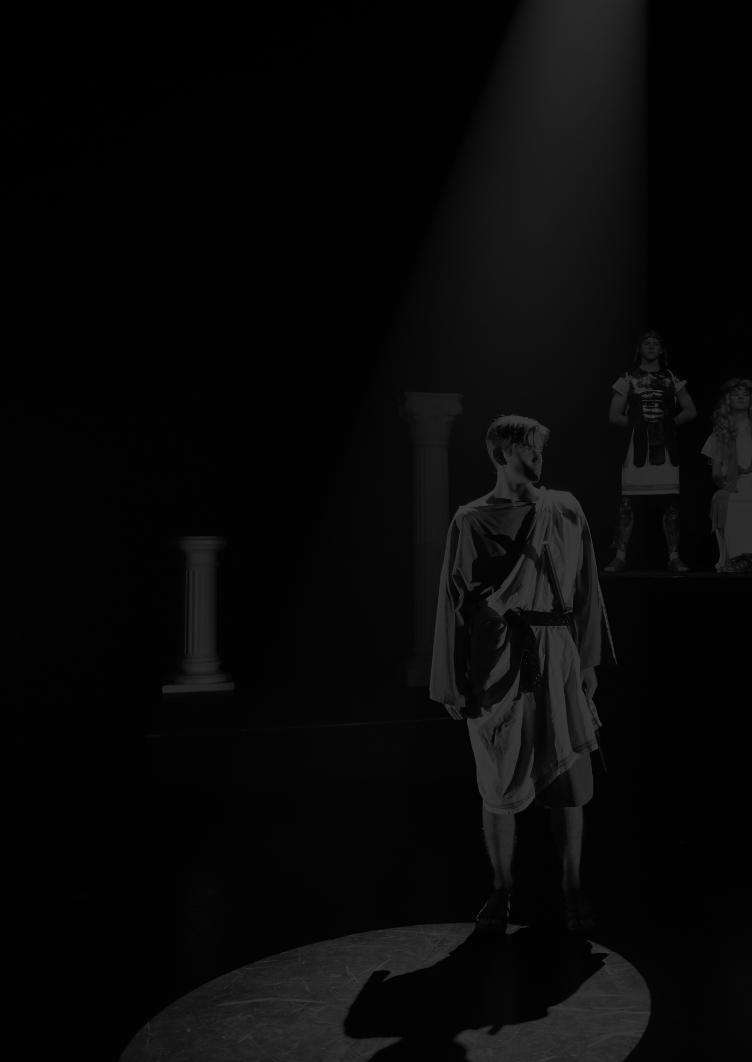
“They offered great insight with rehearsal etiquette and that has really helped me at university.”
He is still considering his future after university and will possibly go on to a teaching degree with the aim of becoming a music teacher.
“I could see myself coming back to TGS one day to teach,” he laughed.
Ryan Murphy (2012–22) was one of only four aspiring young actors across Australia to be awarded the prestigious John Bell Scholarship in January 2023 with renowned theatre company Bell Shakespeare. Ryan spent time with the actors and director and learnt about the workings of theatre productions. He also attended master classes in history, fight choreography and learnt about language and speech. The course culminated with Ryan performing a Macbeth soliloquy for his peers.
“It was great, they were so supportive, and I learnt so much,” said Ryan excitedly.
He is currently studying a Bachelor of Music Theatre at the Elder Conservatorium, University of Adelaide.
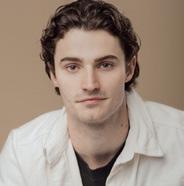
“I’m living the dream, it’s so wonderful,” said Ryan enthusiastically.
“Who wouldn’t want to sing, dance and act five days a week, I’m doing what I love, and I couldn’t ask for anything more.”
Ryan will graduate in 2025 and is considering getting a Masters in Directing with the ultimate aim of performing or directing theatre.
“I like playing off an audience,” said Ryan. “There’s something to be said about the power of live theatre, the ability to perform to people on stage; you see them and can see their reactions.”
He is grateful for the opportunities provided to him during his time at TGS, in the music and drama programs.
“I would not be here without doing the school musicals and the teachers nurturing me and seeing that I had some potential, believing in me – I wouldn’t be here without them,” said Ryan emphatically.
“The love I have for theatre all stems from that and my time at TGS.”
Hamish Wells (2014-21) is at the National Institute of Dramatic Art (NIDA) studying a Diploma in Musical Theatre.
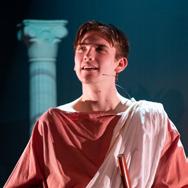
“This is one of the greatest experiences of my life, learning under so many industry professionals and the greats of musical theatre,” bubbled Hamish.
Hamish has his first major production, Sweeney Todd in July and when he graduates at the end of the year, he is considering a Bachelor in Fine Arts at NIDA or WAPA (West Australian Performing Arts).
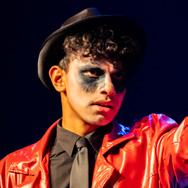

He would never rule out the possibility of a career in film or TV, but his passion lies with theatre.
“I like that you only get one chance for the performance, there are no retakes,” said Hamish.
“And I love the thrill of interacting and immersing with the audience. The smallest decision as an actor can really move an audience. Theatre is more impactful than people realise.”
TGS singing tutors and performing arts staff have had a huge impact on Hamish’s success so far.
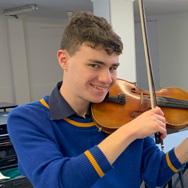
“The support, advice and the opportunities they presented – without that I would be lacking – I think these are what has driven me further and helped open the doors for me,” said Hamish adamantly.
We are so proud of our performing arts students, the boys who we knew before they were stars.
Andrew Stone (1997-2001) Music Producer/Record Label Manager
Geoffrey Saba (1960-63) International Pianist
Tim Dashwood (1997-2002)
Mason Watts (2012-16)
Sean Johnston (2014-18)
Actor/Director
Songwriter/Musician
Alex Miller (2007-11) Qld Symphony Orchestra
Clancy Sinnamon (2009-13) Filmmaker
Chris Thompson (1987-89)
Joe Lynch (2003-12)
Jack Lynch (2003-12)
Tim Bond (1999-2006)
Keir Nuttall (1987-91)
Will Hansen (2010-14)
Adam Trussell (2000-04)
Edward Foy (1994-95)
Theatre/Director
Film/Photographer
Musician/Theatre
Animation
Musician
Musician
Actor, London
Actor, Canada
Ben Savage (1992-96)
John van Gend (2010-14)
Harrison Mills (2015-21)
Julian Lachmund (2008-20)
Musician
Musician
Toby Burstow (2009-15) Musician/Composer
Andrew Firth (2003-07) International Choirist/theatre/conductor
Jeremy Egerton (2013-17)
Harry Egerton (2013-17)
Alec Snow (2006-09)
Ryan Murphy (2012–22)
Musician, USA
Musician
Actor/Musician
Stuart St Vincent Welch (1995-99) Sound Engineer, New York
Reid Armansin (2004-15)
Visual Arts
Waverley Stanley Jnr (2008-13) Theatre
Rupert Bevan (2010-16) Theatre
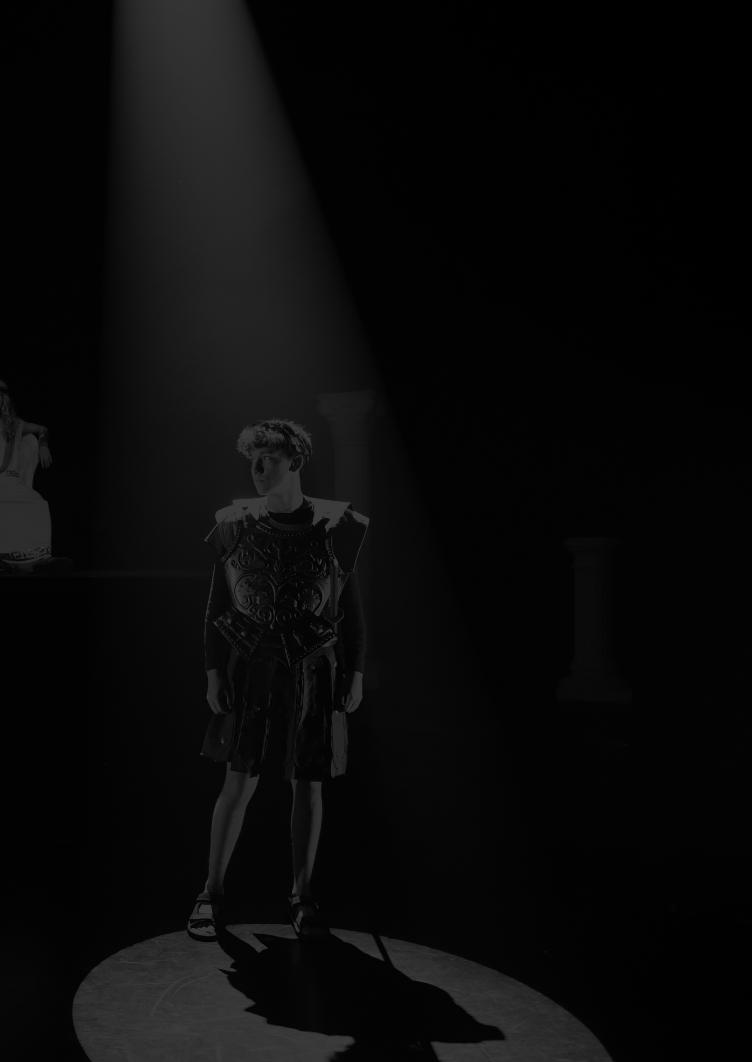
Jesse Jones (2008-16)
Musician
and the list goes on...
Hamish Wells (2014-21)
Toowoomba Grammar School has a unique approach to athlete development that focuses on providing students with the skills, tools and mindset required to succeed in sports and life.
At TGS, the long-term athlete development (LTAD) philosophy is ingrained in every aspect of the School’s approach to sport and fitness.
The LTAD philosophy emphasises the importance of age-appropriate training and skill development over a long period of time. This approach recognises that athlete development is a gradual process that requires a holistic approach, focusing not just on physical development, but also on mental and emotional wellbeing. The ultimate goal is to create a culture of excellence, resilience and selfdiscipline that helps students achieve their full potential, both on and off the field.
One of the key components of TGS’s LTAD program is its strength and conditioning programs. These programs have become increasingly popular among athletes of all ages and skill levels due to the numerous benefits they offer. The programs at TGS help to build a strong foundation for athletes to grow and develop over time. By incorporating strength
and conditioning training into their programs, TGS provides students with an opportunity to improve their physical fitness, which is essential for their overall health and wellbeing.
Moreover, regular exercise and physical activity have a positive impact on mental health, reducing stress, anxiety and depression. By providing students with a structured program of physical activity and training, TGS helps to promote healthy habits and instil a sense of discipline and self-motivation that can carry over into other areas of a boy’s life. This focus on wellbeing contributes to the holistic approach of the LTAD program.
The impact of TGS’s LTAD program is not just limited to physical and mental health, it also has a positive impact on students’ academic performance. Studies have consistently shown that physical activity and exercise can help to improve cognitive function and academic achievement. By providing students with opportunities to engage in regular physical activity and training, TGS is helping them to develop the
cognitive skills, focus and discipline required for academic success.
TGS’s strength and conditioning programs are highly attended, with over 100 boys participating in “general use” sessions each week, while over 300 boys attend squad sessions. The School uses a variety of tracking methods to ensure that athletes are training at the appropriate intensity and volume. They use Rate of Perceived Exertion (RPE) and minutes to create an acute vs chronic workload, helping to prevent overtraining or injury due to excessive workload.
Additionally, tracking injuries and nutrition information is crucial to ensure that athletes are getting the proper care and nutrients they need to perform at their best. TGS also emphasises wellness tracking, encouraging student-athletes to track their sleep, stress levels and nutrition. This helps them better understand the impact of these factors on their overall performance and make informed decisions about their training and recovery.
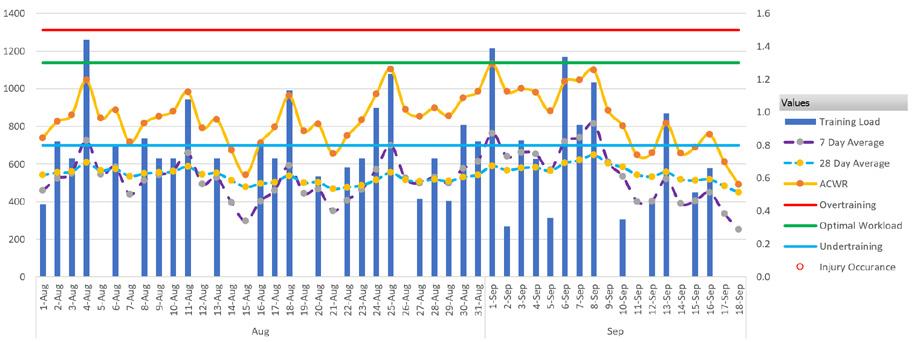
Testing is also an integral part of athlete development at TGS. Physical literacy tests are administered to all students in Years 7 and 9, providing a baseline score for each student’s physical capabilities. The squads are frequently tested to track their progress and identify areas for improvement.
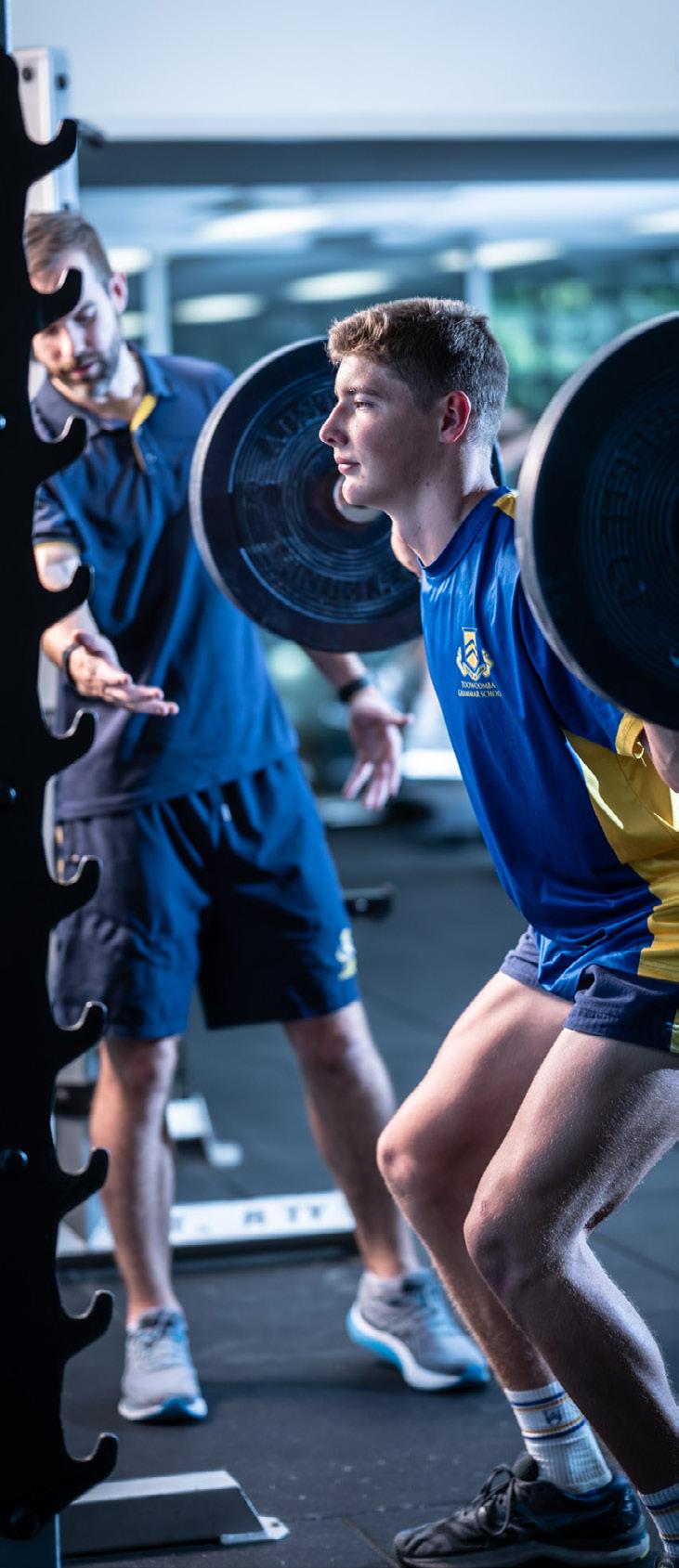
Injury prevention and injury rehabilitation are also critical components of TGS’s approach to athlete development. The School recognises the importance of providing students with the necessary tools and knowledge to prevent injuries from occurring, as well as helping them recover from injuries if they do occur. This approach ensures that students can continue to participate in sports and maintain their physical fitness without the risk of long-term injury.
TGS utilises a range of recovery practices, including myofascial release and using the pool for low-impact exercise. Myofascial release is a form of massage therapy that helps to relieve tension in muscles and reduce the risk of injury. The pool is also an effective recovery tool, as it provides lowimpact exercise that helps to improve circulation, reduce muscle soreness, and speed up recovery time.
TGS is also excited to introduce their new compression boots, which are designed to aid in recovery by increasing blood flow and reducing muscle soreness. These boots will be available for all athletes to use and are expected to have a significant impact on recovery times.
TGS’s strength and conditioning programs are an essential component of our LTAD program, designed to provide athletes with a solid foundation for success. The holistic approach of the LTAD philosophy ensures that athletes are developed over time, with a focus on age-appropriate training and skill development. By tracking workloads, injuries, nutrition, and wellness, as well as administering regular testing, TGS helps our athletes to achieve their goals and reach their full potential. The programs not only benefit students in the short term but also provide them with the tools and skills they need to succeed both on and off the field in the long term.
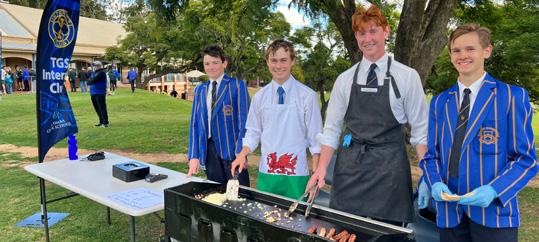
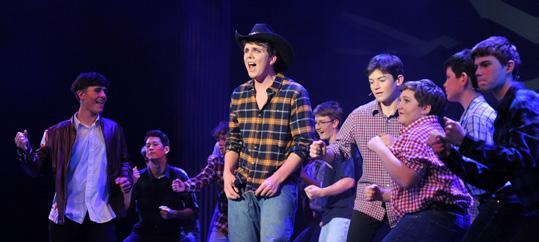
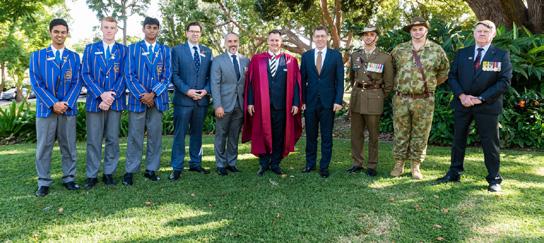
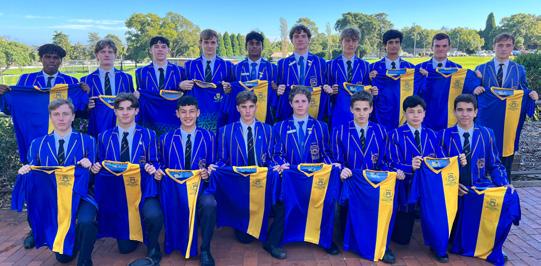
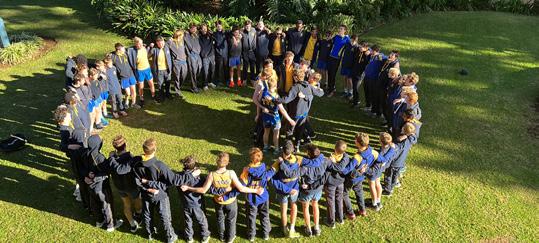
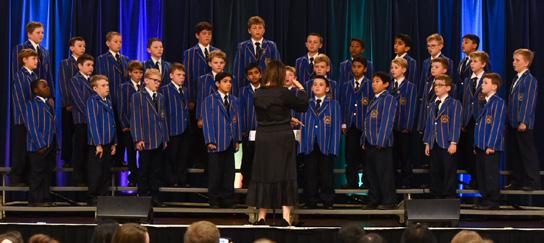
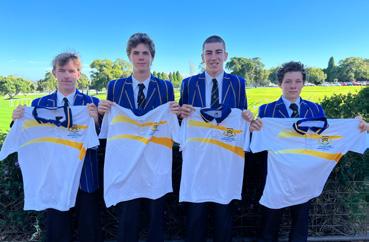
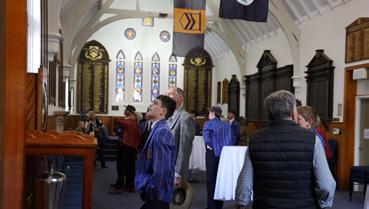
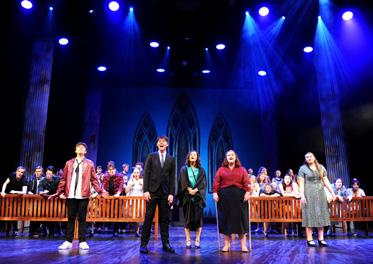
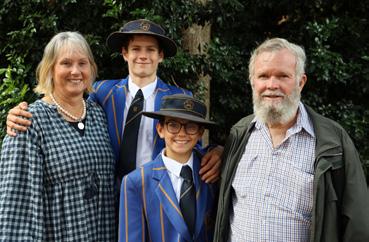
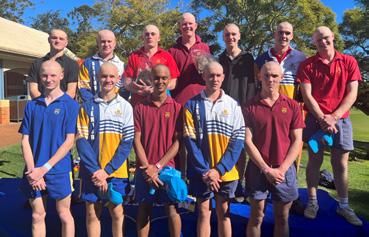
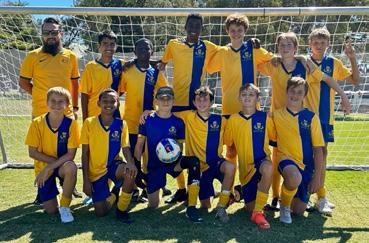 Tom Dwyer, Archer Black, Dallas Baker, Henry Maunder presented their 1st IV Tennis jerseys
Old Hall was a popular attraction on Grandparents’ Day
Footloose the Musical at the Empire Theatre
The Interact Club at work: (L-R) Hamish McCollum, Sam Gladwin, Tom Charles, Ben Silvester
Nate and Ethan Ryals with their grandparents, Sue and Kim Ryals on Grandparents’ Day
After the World’s Greatest Shave: Front Row: (L-R) Finn Parrington, Ben Silvester, Riyan Khan, Alec Ziesemer, Beau Campbell. Back Row: (L-R) Joseph Gray, Jeremy Zuyderwyk, Fraser Coleborn, Drummond Whittaker, George Smolenski, Matty Wise, Sam Shannon
The Year 7 team at the TSS Cup: Front Row: (L-R) Noah Grob, Aseel Eisa, Eli McBurney, William Browett, Xavier Burge, Xavier Smith. Back Row: (L-R) Coach Darryl Burge, Ellord Panta, Nathaniel Miller, Goy Yous, Eamon Pickering, Xavier O’Conner, Darcy Muckert
The GPS Cross Country team gathers for their war cry before the Championships
Senior Prefects, Riyan Khan, Pat Savill, Semwith Samarawickrama, TGS Old Boy, Cr Geoff McDonald, TGS Old Boy Lt John-Matthew Jones RAN (rtd), Headmaster, Dr John Kinniburgh, Chairman of the Board of Trustees, Mr Brendan Baulch, Lt Col Uli Polatos, CAPT Michael Trevisani (AAC), Mr Ray Morgan CSM
Sam Freer playing Willard Hewitt in Footloose the Musical
Choral Showcase
Tom Dwyer, Archer Black, Dallas Baker, Henry Maunder presented their 1st IV Tennis jerseys
Old Hall was a popular attraction on Grandparents’ Day
Footloose the Musical at the Empire Theatre
The Interact Club at work: (L-R) Hamish McCollum, Sam Gladwin, Tom Charles, Ben Silvester
Nate and Ethan Ryals with their grandparents, Sue and Kim Ryals on Grandparents’ Day
After the World’s Greatest Shave: Front Row: (L-R) Finn Parrington, Ben Silvester, Riyan Khan, Alec Ziesemer, Beau Campbell. Back Row: (L-R) Joseph Gray, Jeremy Zuyderwyk, Fraser Coleborn, Drummond Whittaker, George Smolenski, Matty Wise, Sam Shannon
The Year 7 team at the TSS Cup: Front Row: (L-R) Noah Grob, Aseel Eisa, Eli McBurney, William Browett, Xavier Burge, Xavier Smith. Back Row: (L-R) Coach Darryl Burge, Ellord Panta, Nathaniel Miller, Goy Yous, Eamon Pickering, Xavier O’Conner, Darcy Muckert
The GPS Cross Country team gathers for their war cry before the Championships
Senior Prefects, Riyan Khan, Pat Savill, Semwith Samarawickrama, TGS Old Boy, Cr Geoff McDonald, TGS Old Boy Lt John-Matthew Jones RAN (rtd), Headmaster, Dr John Kinniburgh, Chairman of the Board of Trustees, Mr Brendan Baulch, Lt Col Uli Polatos, CAPT Michael Trevisani (AAC), Mr Ray Morgan CSM
Sam Freer playing Willard Hewitt in Footloose the Musical
Choral Showcase
The historic Reconciliation Action Plan is launched by Headmaster, Dr John Kinniburgh and Indigenous Education Coordinator, Mr Scott Gale with First Nations students, (L-R) Lorenzo Whittnall, Kainen Beezley, Brady Forde, Tallen Robinson, William Kris
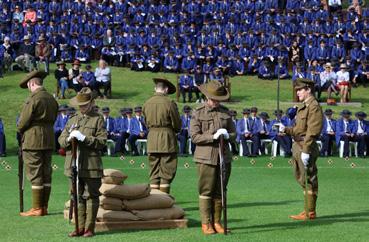
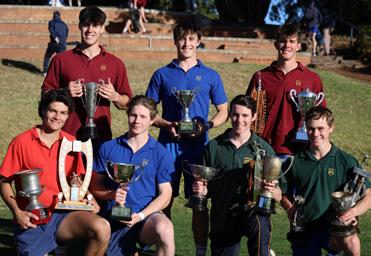
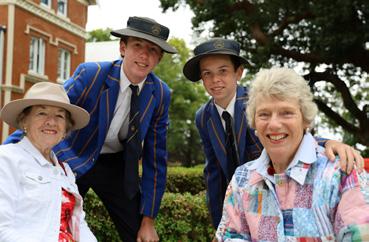
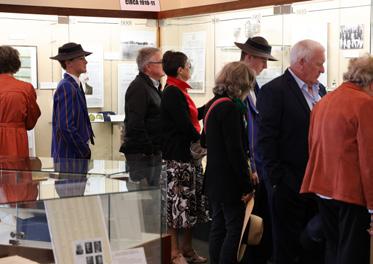
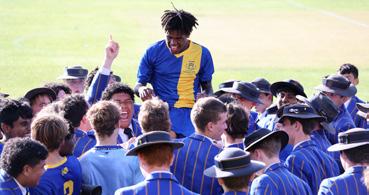
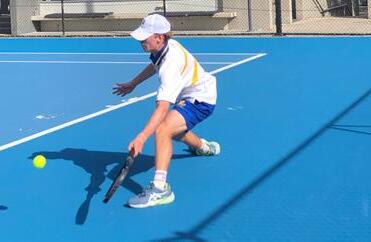
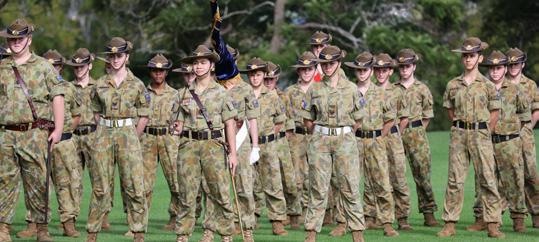
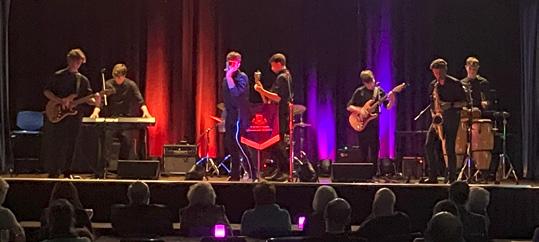
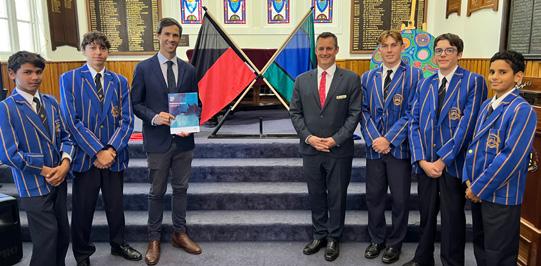
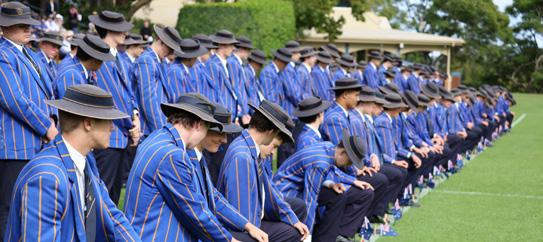
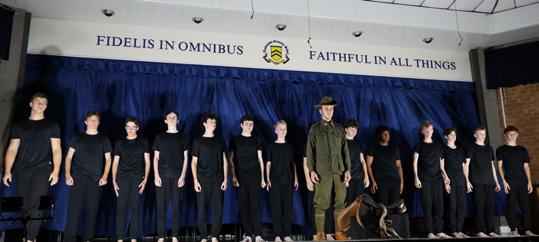
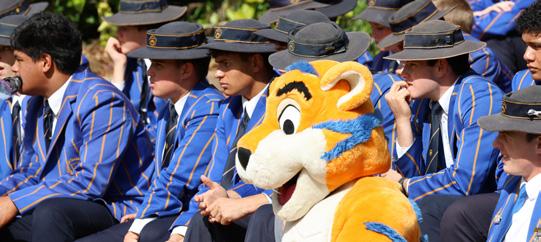 Tom Dwyer stretches out to return serve with a strong forehand
Yoseph Bou-Samra lifted in celebration after the 1st XI victory against BBC
The School Museum was busy on Grandparents’ Day
Ting Tong and the TGS supporters intently watch the 1st XI - BBC home game
Xavier and Bryce Lindemann with their grandmothers, Leone Lindemann and Alison Amos
House Track and Field Carnival Open division winners: Front Row: (L-R) Clancy McKosker, Richard Dean, Taj Gordon Sam Gladwin. Back Row: (L-R) Carter Liddiard, Edward Rogan, Matthew Taylor
The TGS Honour Guard at our ANZAC Service
Ruben Kruger singing at the R’n’B Big Band Extravaganza
Year 10 students pay tribute to fallen TGS Old Boys during our ANZAC Day service
Year 10 drama students perform ‘Loyal Creatures’
The TGS Cadet Unit during our ANZAC Service
Tom Dwyer stretches out to return serve with a strong forehand
Yoseph Bou-Samra lifted in celebration after the 1st XI victory against BBC
The School Museum was busy on Grandparents’ Day
Ting Tong and the TGS supporters intently watch the 1st XI - BBC home game
Xavier and Bryce Lindemann with their grandmothers, Leone Lindemann and Alison Amos
House Track and Field Carnival Open division winners: Front Row: (L-R) Clancy McKosker, Richard Dean, Taj Gordon Sam Gladwin. Back Row: (L-R) Carter Liddiard, Edward Rogan, Matthew Taylor
The TGS Honour Guard at our ANZAC Service
Ruben Kruger singing at the R’n’B Big Band Extravaganza
Year 10 students pay tribute to fallen TGS Old Boys during our ANZAC Day service
Year 10 drama students perform ‘Loyal Creatures’
The TGS Cadet Unit during our ANZAC Service
In December last year, I celebrated 25 years teaching at Toowoomba Grammar School. This milestone has given me an opportunity to pause and reflect on my time at the School.
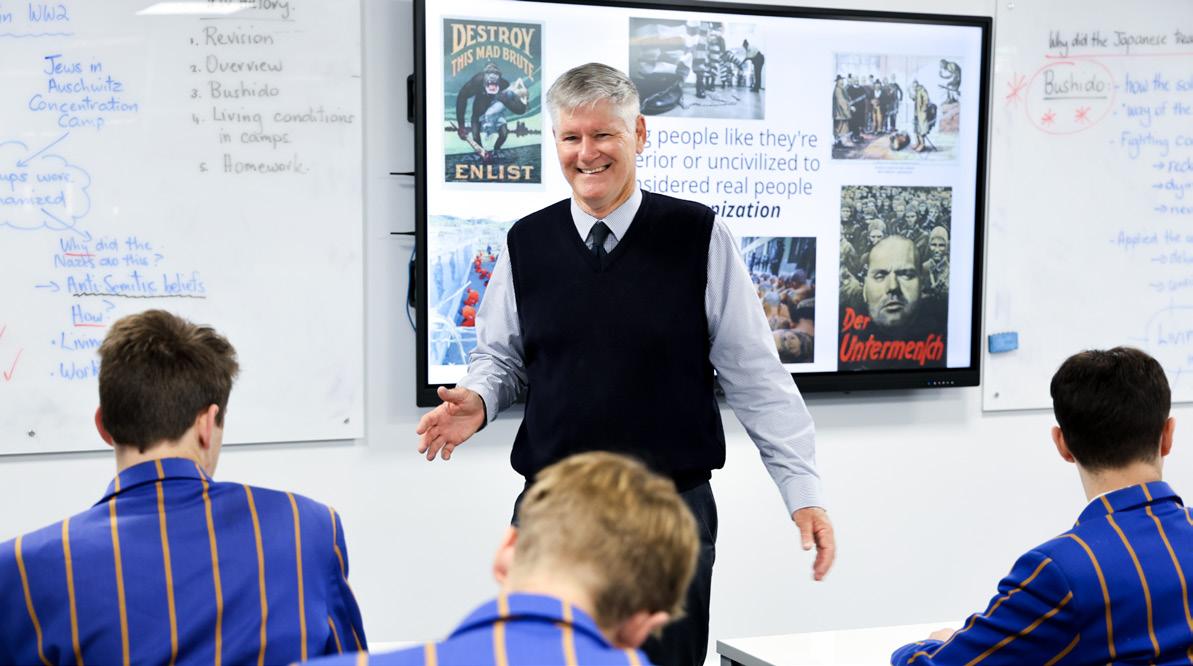
Interestingly, I distinctly remember telling my father in late 1997 that “I’ll do four years at TGS and look for something else back up north”. Having been born in Mount Isa, raised in Home Hill, schooled in Charters Towers, studied and first employed in Townsville, I considered Toowoomba to be a mere steppingstone for a return to the wilds of NQ. However, as fate would have it, I was smitten by a young teacher at TGS by the name of Lizzy Dawson and from that point, my life changed immeasurably. Now married and with four wonderful children, thoughts of cane fields, mosquitoes, rainy seasons and the Cowboys are distant memories (well, apart from the Cowboys).
Two and a half decades with one school is no small feat, especially in this day and age. The average tenure at one workplace in Australia is just 3.3 years and the average Australian now changes jobs 12 times throughout
their life, according to the Australian Bureau of Statistics. So, the question often asked of me – why so long at TGS? In the simplest terms, I was and still am, impressed by the School’s fundamental beliefs, its shared values and the standards that each member is expected to follow. These are hallmarks of a good school. TGS has also provided me with many opportunities. I began my tenure as a history teacher, Housemaster of Partridge House (now part of Stephens House), coach of the U13B rugby team and the 16B cricket team and an officer in the Cadet Unit. Since then, I have moved into the role of a Head of Department and have coached cross country, middledistance running, debating, football and volleyball.
Reflections on 25 years of service would not be complete without a word about the students and staff at TGS. I often think about the thousands of boys who I have got to know both
inside and outside the classroom. One cannot really explain the joy I get meeting Old Boys and talking about our time at School – as an educator, to see their growth and to share their stories reconfirms why we chose this profession. And the staff... what can one say? Over the last 25 years, I have been blessed to know and teach with some of the most professional and dedicated teachers in our profession. In a nutshell, I can honestly say I have enjoyed and looked forward to coming to work every single day – all 4,425 of them so far!
I am reminded of one of my favourite quotes which has provided me with a guiding beacon over the last quarter of a century at TGS: “A good teacher is like a candle - it consumes itself to light the way for others.” - Mustafa Kemal Atatürk.
Always bear in mind - Ex nihilo nihil fit.
We provide support to students for a variety of needs and offer a confidential and non-judgmental space for students to come and talk about any concerns they may have. This includes support for social and emotional needs, behavioural concerns, family, friendship, or relationship concerns, study stress, and much more.
We believe that it is important for boys to have access to a trusted adult that they can connect with when they have concerns about their well-being. Smith (2019, p. 305) suggested that boys who had access to school counsellors were more likely to seek help for mental health issues, had better academic performance, and reported greater feelings of school connectedness compared to boys without access to school counsellors. This highlights the importance of having a trusted adult, such as a school counsellor, in a boy’s life to support his mental health and overall well-being.
According to Johnson et al. (2020), students who had access to school counselling services reported feeling more supported and connected to their school community, which was associated with higher levels of academic engagement and achievement. In addition, students who received counselling were less likely to exhibit negative behaviours such as absenteeism, school avoidance
By Lyle Gothmann & Scott-Wilson, School Counsellorsbehaviours, and bullying. School counsellors were also found to be effective in providing support for academic distress and future aspirations, helping students to set goals and develop strategies for success beyond their time in school (Johnson et al., 2020, p. 27). These findings highlight the important role that school counsellors play in promoting student well-being and success.
As School counsellors, we work closely with teachers and parents to develop collaborative plans and share information for support that may be provided to aid in determining student programs, strategies, and techniques that support classroom activities and personal development. We encourage parents to reach out to us if they are concerned that their son’s well-being is affecting his academic and personal progress.
When referring a student for support, we ask that parents please consider contacting us to discuss the referral if the student is under 16 years old. Additionally, we allocate students to a school counsellor who best fits their needs. For student referrals, a student can simply email or present to a school counsellor’s office to engage in support. We also have a “Student Referral Form” available on the Student Locker Room page for a student to refer themselves and/or a peer.
We understand that dropping in may be difficult at times due to our sometimesheavy booking schedules and student drop-ins, but we encourage students to book a time with us if they have any concerns. We are always available to be contacted via phone or email if anyone has any concerns or questions.
We are here to support the boys at Toowoomba Grammar School with any concerns they may have. We believe that it is important for boys to have access to a trusted adult that they can connect with, and we are here to provide that support. Please don’t hesitate to reach out to us if you have any concerns or questions.
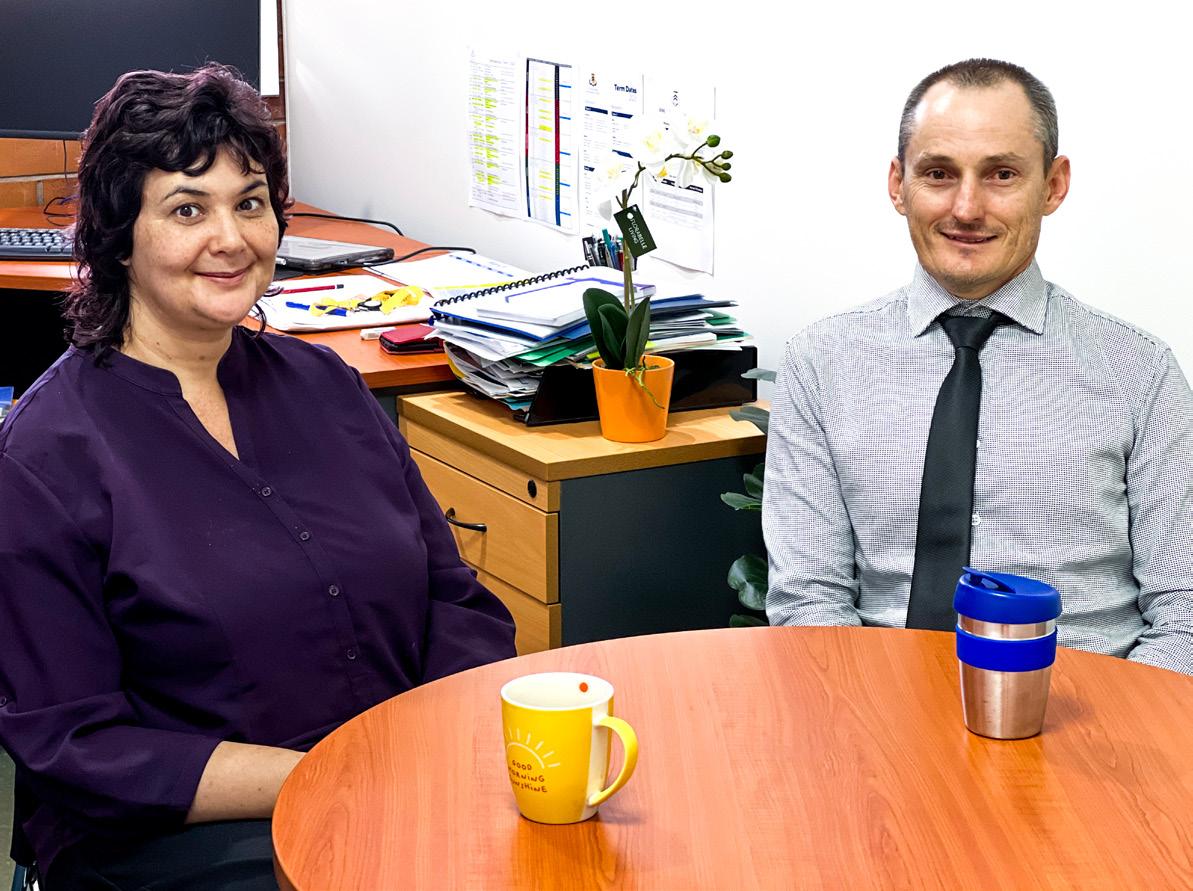
Lyle Gothmann (07) 46872 627
L.Gothmann@twgs.qld.edu.au
Rina Scott-Wilson (07) 46872 6577
R.Scott-Wilson@twgs.qld.edu.au
Bibliography:
Johnson, A. B., Thompson, L. A., & Carlson, D. M. (2020). The impact of school counseling services on student well-being and academic success. Journal of School Psychology, 82, 21-32. doi:10.1016/j.jsp.2020.05.006
Smith, J. K. (2019). The role of school counselors in promoting boys’ mental health and academic performance. Journal of Counseling Psychology, 66(3), 298-310. doi:10.1037/cou0000352
As the new School counsellors, we are excited to be part of this great community and have enjoyed getting to know parents, boys, and staff at Toowoomba Grammar School.Rina Scott-Wilson and Lyle Gothmann
Any Old Boy will tell you the Blue and Gold is part of their blood. They love the history, the traditions, the memories, and the lifelong friends they made during their time at Toowoomba Grammar School. Well, it seems the same can be said for many TGS mums.
The Past Mothers’ Group was formed in 1979 by Mrs Mary Campbell who contacted as many past mothers as she could and invited them to meet at her home where the Past Mothers’ Group was officially formed with the intention of retaining links with the School. Fast forward to 2023 and there are now 63 official members and many other past mothers who come along to enjoy the functions.
Barb MacDiarmid is one of those enthusiastic ladies and she has played an integral role in the positive growth of the group. In fact, Barb was so keen, she actually nominated to be PMG Chair at her very first meeting in 2016!
“We were having a lovely morning tea at the Railway Café and I couldn’t help myself, they were desperate and I couldn’t sit on my hands, so together with my friend Jo Brealey we were voted in,” laughed Barb.
Barb was no stranger to the workings of TGS committees; she was on the Board of Trustees from October 2001 until May 2013, a role that she looks on with fondness.
“I loved this time and my involvement with a very interesting group of responsible people,” stated Barb.
“There was an amazing connection between the members of the Board; it was a like a little family. We had an education focus, but also a business focus. It was a time of growth and very enjoyable.”
Barb said one of the highlights during her time on the Board was the “very interesting and stringent” process involved with the appointment of former Headmaster (2002-2020), Peter Hauser. After 12 years on the Board, Barb
decided it was time to resign and allow someone new to bring in fresh ideas.
But the pull of the Blue and Gold was still there. Barb’s husband, Manuel is an Old Boy (1966-70) as are their two sons, Jack (1997-01) and Angus (2002-06), and the family had fabulous memories of their involvement with the School, so it wasn’t difficult for her friend Jo to persuade her to “come along to the Past Mothers’ Group” on that “fateful” day in 2016. Barb took to the role of Chair with enthusiasm and passion and with the help of Jo and the other committee members, and the support of the enthusiastic TGS ladies, and TGS staff, they’ve grown the group to what we know today.
The ladies gather for one function each term – a welcome morning tea, a Mother’s Day lunch, a Term 3 bus trip luncheon, and a Christmas lunch. There is also an “after work drinks” evening held each October to cater to the mums who are unable to make the day events due to work commitments but are still interested in having the TGS connections.
The group also conducts fundraising activities which go towards sponsorship of the annual TGS Junior School Citizenship Speech Day prizes, with any surplus used in various other ways of assisting the School or students.
Barb believes the biggest challenge for the group is encouraging younger past mums to attend the events.
“We write a letter to all the Year 12 graduating mums inviting them to join the group, but there’s so many distractions when their son first leaves School that most ladies wait until a few years later,” said Barb.
“When they are ready, they like to come back and find out what’s happening at the School, the changes since their boys were here and to reconnect with old friends.”
Barb laughed as she recounted how the women enjoy the functions so much that many arrive at least half an hour before the scheduled start time and will happily stand around waiting for the doors to open. The aim of the group is to let the ladies catch up, have a chat, enjoy the School grounds, listen to Headmaster’s address or other guest speakers and be entertained briefly by the Grammarphones or other TGS performers.
“Everyone loves the boys and loves seeing them, it brings back so many wonderful memories,” Barb stated.
“It’s a good group of ladies and there’s always room for more to come along.”
Barb stepped down from her role as PMG Chair at the end of last year, handing the baton to Dorette Baker.
“It was time to step away and let someone bring in some fresh ideas and a new style,” said Barb.
“I’d like to see it continue to grow and ideally some younger mums take an interest.”
Barb said it was a privilege to steer the Past Mothers’ Group and to be on the Board of Trustees.
“I love the School. I love driving past and seeing how beautiful it looks. There’s great leadership; it’s a wonderful community to be part of. I’m everything but an Old Boy!”
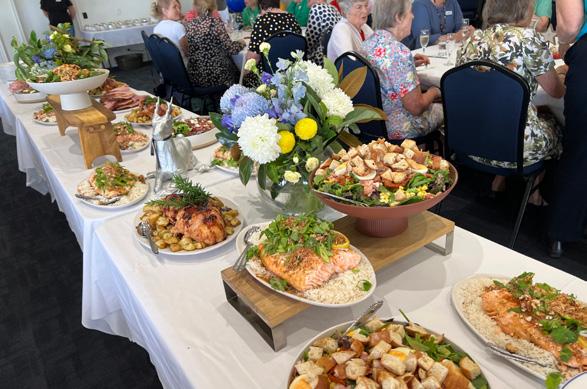
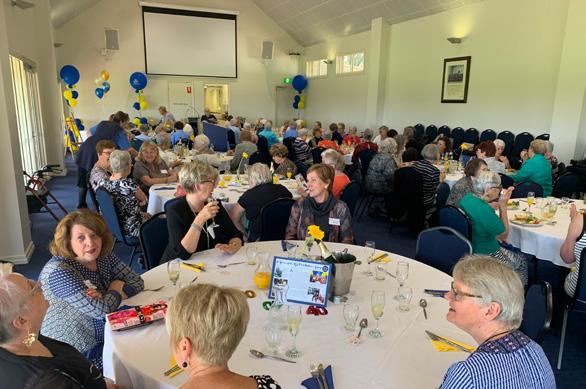
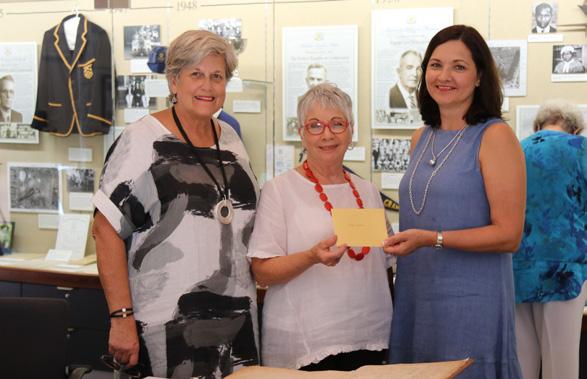
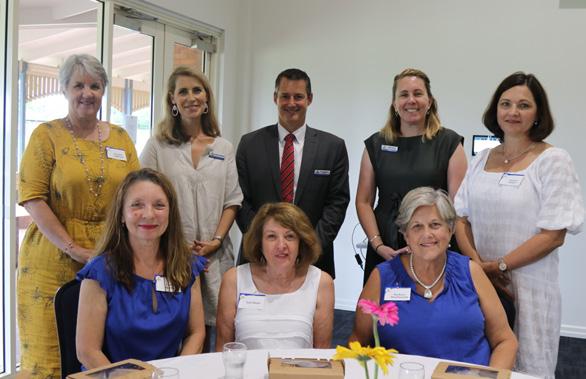
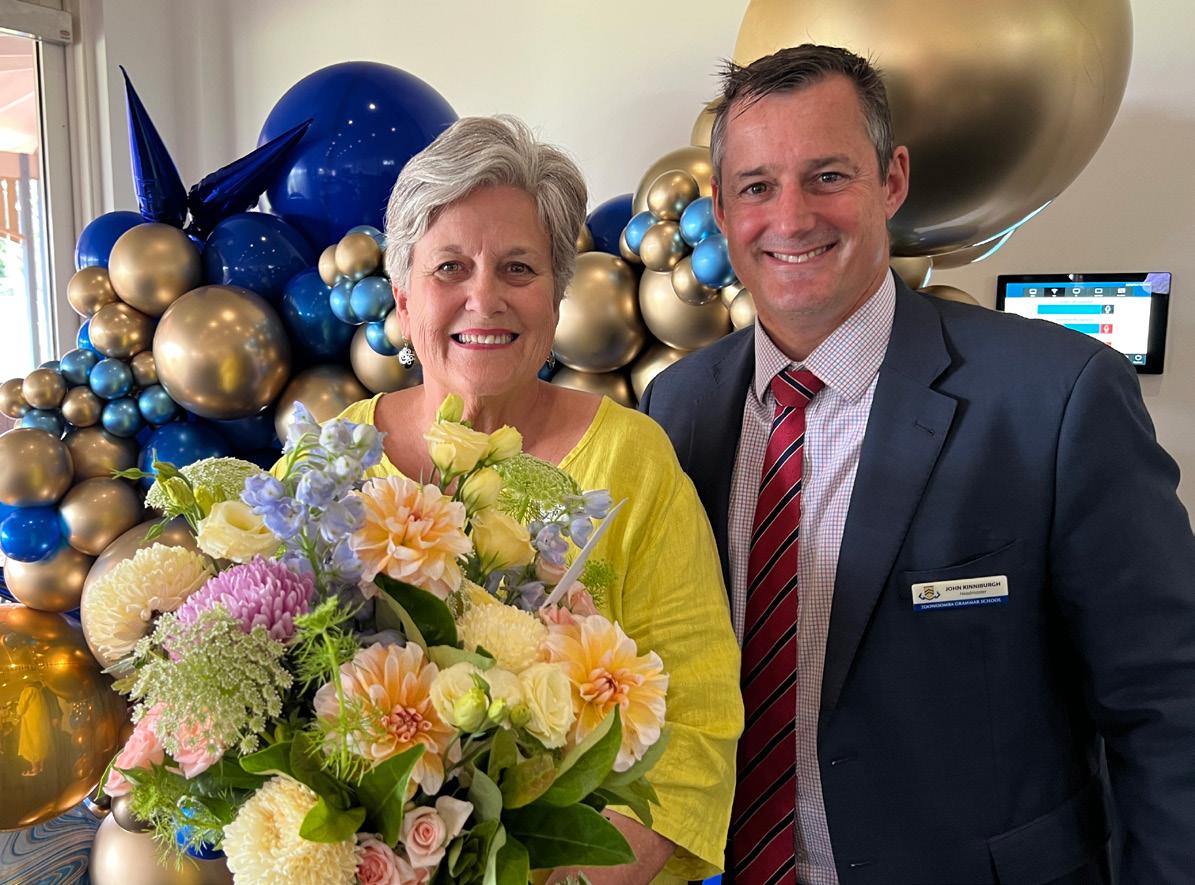 Headmaster, Dr John Kinniburgh thanks Barb MacDiarmid for her time as PMG President
Back Row: Jennifer Fordyce, Joanna Kinniburgh, Headmaster John Kinniburgh, Tammy Wilson, Dorette Bakker Front Row: Chris Martin, Lyn Dayas, Barb MacDiarmid
Denise Miller accepts a donation for the TGS Museum from PMG representatives, Barb MacDiarmid and Dorette Bakker
Headmaster, Dr John Kinniburgh thanks Barb MacDiarmid for her time as PMG President
Back Row: Jennifer Fordyce, Joanna Kinniburgh, Headmaster John Kinniburgh, Tammy Wilson, Dorette Bakker Front Row: Chris Martin, Lyn Dayas, Barb MacDiarmid
Denise Miller accepts a donation for the TGS Museum from PMG representatives, Barb MacDiarmid and Dorette Bakker
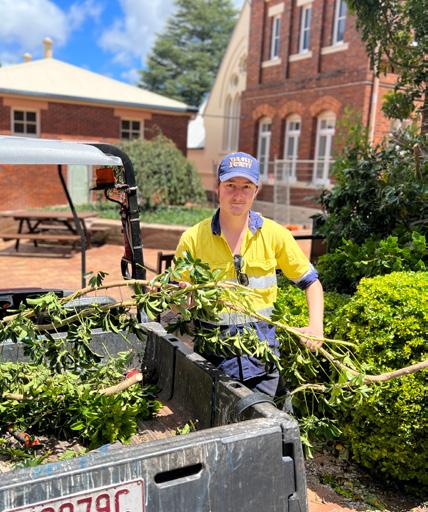
The School is home to almost 300 boarders and a further 50 staff and their families also reside onsite. TGS also operates an indoor aquatic centre with a large Learn to Swim program catering to approximately 1,400 swimmers each week.
In alignment with the School’s Strategic Plan 2022-2026 which includes an initiative to Strive for Environmental Sustainability, we are taking significant steps towards becoming more environmentally sustainable. We have implemented a range of initiatives that aim to reduce our carbon footprint, including the installation of solar panels, LED lighting and timers for lighting and air conditioning systems.
One of the most significant sustainability initiatives that we have undertaken is the installation of solar panel systems. These are on the roof of the Glen McCracken Sports Centre and

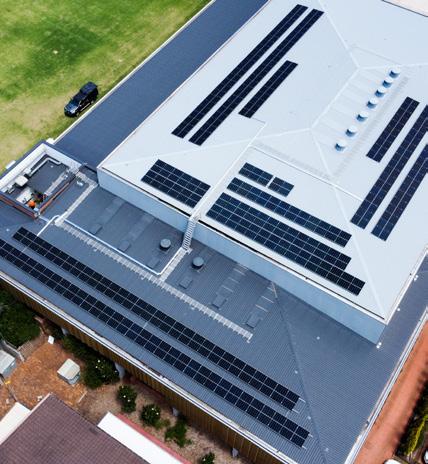
the Junior School roof. They generate a significant amount of renewable energy that can be used to power the School’s facilities and are providing a reliable and clean source of energy, reducing our reliance on fossil fuels and minimising our carbon footprint. This has not only been beneficial for the environment but has also helped the School save on energy costs.
In addition to solar panels, we have also replaced the majority of traditional lighting with energy-efficient LED lighting. The LED lighting uses less energy, lasts longer, and emits less heat than traditional lighting. By switching to LED lighting, we have
Groundsman Dylan Levande Solar panel system installed on the roof of the Glen McCracken Sports Centre An overhead view of the solar panel systembeen able to significantly reduce energy consumption and carbon emissions while also lowering our maintenance costs. The LED lighting has been installed in all the classrooms, boarding houses, and other common areas throughout the School, creating more energy-efficient and sustainable learning and living environments.
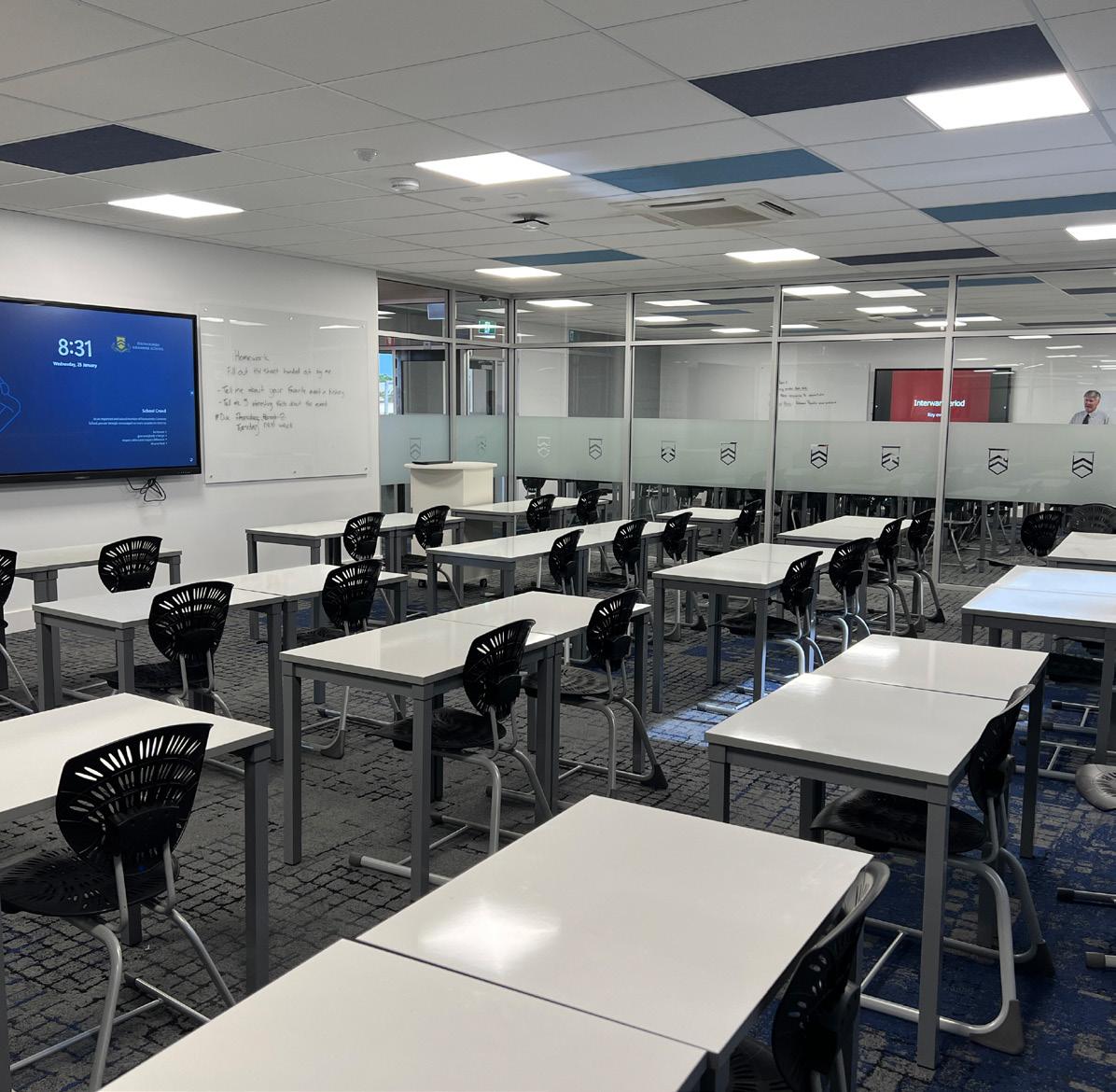
We are also undertaking a significant number of refurbishment and construction projects. Some of our guiding principles in approaching these works is to:
» Refurbish and repurpose existing buildings wherever possible to retain the School’s traditions and history
» Include sustainability and environmental considerations such as solar and stormwater catchments in all future building projects.
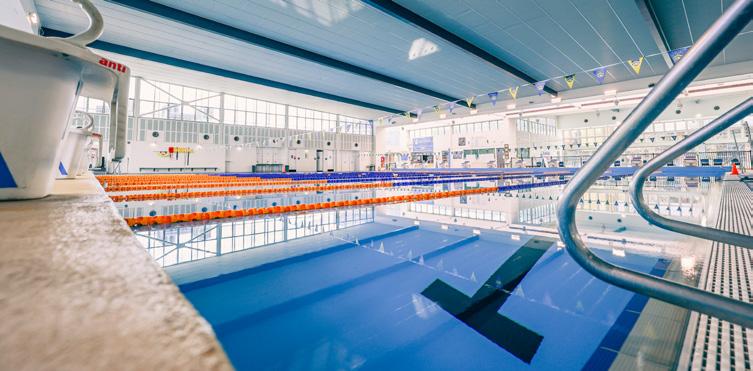
We also have many other smaller sustainability initiatives, such as reduced printing, composting, and sustainable waste management practices and we plan to expand our School recycling program this year.
Along with these corporate initiatives, TGS has a student-led Environmental Committee which has been encouraging students and staff to be more environmentally conscious and responsible, promoting sustainability as a core value of the School.
TGS is committed to environmental sustainability and by incorporating these practices into the School’s culture, we are proud to be creating a more environmentally friendly future for our students, the wider community and generations to come.
Energy-efficient LED lighting in classrooms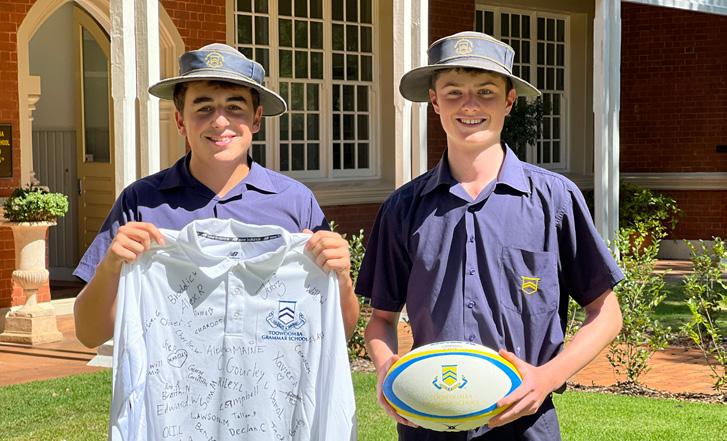
Travel broadens the mind and the chance to ‘live like a local’ seems to be all the go these days. Term 1 saw the inaugural exchange between Toowoomba Grammar School and Rugby School in the English Midlands. A school steeped in history and famous for being the location where William Webb-Ellis just ‘picked up the ball and ran with it’ – thus creating the third greatest team game in the world…
Gilbert Tighe (Year 10 Stephens Boarding) exchanged lives with Henry Pigott, a Rugby School boarder and each had an unforgettable experience. Sampling lessons, boarding life, and a new culture – both boys grasped this once-in-a-lifetime opportunity with both hands and relished every new experience that was availed to them. It would be wonderful if this opportunity could be become an annual fixture and speaking with
Gilbert since his return to the House, it is hard to put into words, or quantify, just how much he has grown from his time in the UK. Travelling the length and breadth of the country by train, making new lifelong friends and, no doubt, acquiring a whole new vocabulary... innit!
I am sure you will enjoy reading the reflections of both Gilbert and Henry in this feature below.
It has been difficult to get my head around the fact I have had to move on from such a wonderful time of my life. I spent my time as an exchange student as a boarder in Groom House. I “swapped” school life with Gilbert Tighe.
By Henry Pigott, Rugby School exchange studentThis experience was more than I could ever have asked for. I was nervous when I arrived in Australia but straight away, I felt well taken care of, and people seemed to be interested in me and my story. It wasn’t long before I felt like I was part of the School, and this is thanks to all the staff and the boys. Being part of a team, and keeping busy and getting out of my comfort zone were the catalysts in speeding up the process of settling in.
As time went on, I could feel myself becoming closer and closer to the School and the boys, and I kept on trying to ignore the fact I was going to be leaving at the end of the term. It would be an understatement to say I didn’t want to leave.
Some special memories were the cricket matches with the 11As, and then being able to sometimes stay behind and watch the mighty 11Bs take down yet another batting order, all thanks to their ‘fiery’ bowling attack. Spending time with the boarders was always amusing, and it felt as though I built a strong connection with everyone. I seem to remember the Groom boys saying, ‘The House wouldn’t be the same without me?!’ or maybe I’m blowing my own
trumpet. Mr Stearn, Mr Hall and Mr Farrell were often around, and I really enjoyed speaking to them. There are obviously so many more things I could mention, but I want to highlight the Year 11 camp at the end of term, at Twin Waters, Sunshine Coast. There couldn’t have been a better way to round off my trip ‘down under’ and I thoroughly enjoyed my time there. They did such a great job making me feel special and it made me feel like I had made at least a small impact to the year.
I would be lying if I said I won’t miss all the boys. Such a great year group, and
I was fortunate to know them. I will keep in touch with many of them, and hope to see them again in the future. Hopefully, some make the long journey to England, and I can welcome them on my home soil.
I would like to thank everyone who has been involved in this wonderful experience. I am proud to be the first exchange student since the pandemic, and I would like to see this opportunity continue. I have learnt so much over such a short space of time. I wish to visit Australia again, and no doubt I will be visiting TGS again.
Campbell Gourley and Henry Pigott with Henry’s TGS souvenirsIt seems a lifetime ago that I packed up my computer and my room in Stephens House at the end of November last year, knowing that I would not return to Toowoomba Grammar School until Term 2, in Year 10, 2023.
In early January I started my adventure as an exchange student. I headed solo to the northern hemisphere to start “Lent Term” at the Rugby School, being a boarder in Sheriff House (one of the school’s 15 different houses).
After getting over jet lag, being provided with uniforms and learning my way around, I quickly felt part of not only Sheriff House but the whole school. I found it very easy to settle in and quickly started building great friendships that will hopefully last a lifetime. The boarding staff were fabulous, always checking on me and keen for a chat – often with a great deal of embellishment to enhance their story!
One big difference between Rugby and TGS is that Rugby is coeducational. So, I had the opportunity to be in classes, play sports and get involved in various activities with both boys and girls. This did take a little getting used to and certainly was not like hanging in a classroom full of rowdy boys!
The Rugby School is rich in history, dating back to 1567 with a Mr
Lawrence Sherriff opening a school for the boys of Rugby and surrounding towns. It has grand old buildings, chapels and “Hogwarts” like classrooms and staircases, but also state-of-the art playing fields and facilities. It is a very inclusive international school and seems to cater for everyone and everything. The school ethos “the whole person, the whole point” came through strongly. It was a nice coincidence that the 200-year anniversary of the game of rugby is this year, so there were many activities and celebrations during my time there. One thing that was very evident was the positive attitude to academic excellence, but also the freedom and times for fun.
Some memorable moments are as simple as the constant odd looks people would give me when they heard the Aussie accent. Or, being asked to repeat words multiple times because no one could understand me or our Aussie slang. This created a very entertaining environment. I will also never forget it snowing during the school term, which was so exciting and fun.
I got involved in many extra-curricular activities including football, rugby 7s, tennis, racquets (which is similar to squash) and I joined in the house singing competition which was definitely a night to remember! By getting involved I kept meeting new
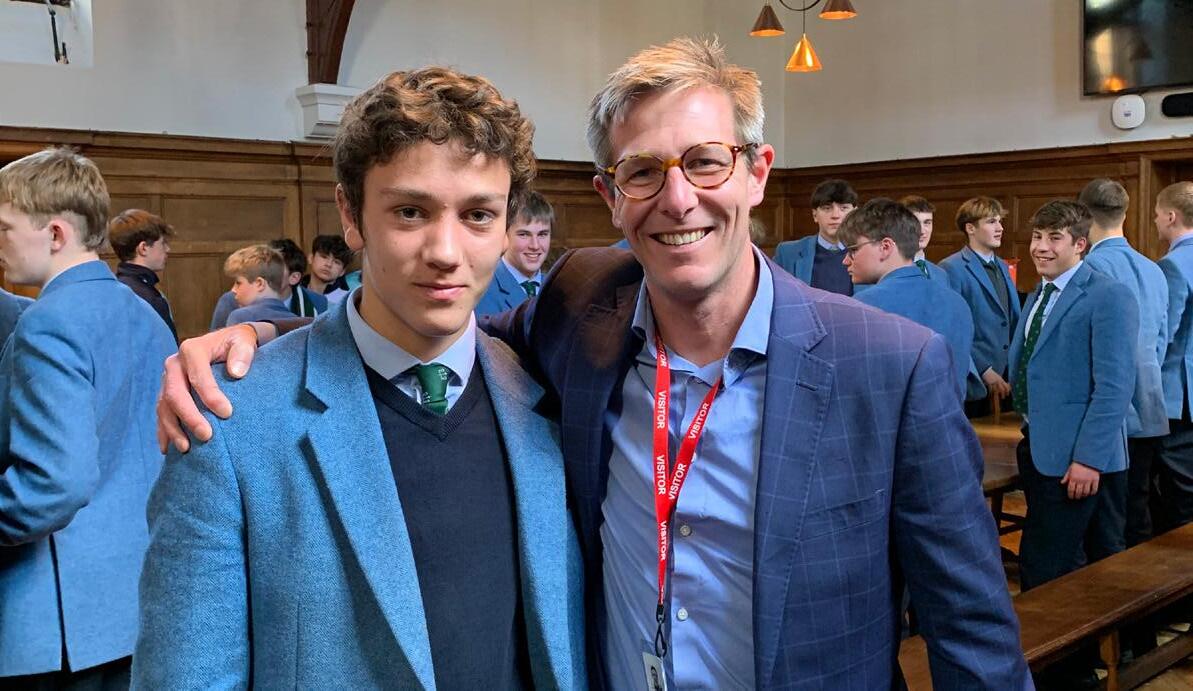
people and started to feel very much like part of the school and the whole experience seemed to pass way too quickly.
The term had two long exeat weekends and a week’s break in the middle. This allowed me to travel and see a little more of the country. The UK was amazing to travel around, and I was able to visit my sister who is currently working in North Yorkshire. I learnt how to navigate Google Maps and public transport, sprinting through many train stations so I wouldn’t miss the train, and learning the hard way how much train tickets cost.
I was very fortunate to have a great host family, the Pigotts - Henry’s family. I could not have asked for a better family than Ian, Gilly, and Gracie! It was a very welcoming sight when I arrived at their farm and two dogs came running out. I am very appreciative of the Pigott’s generosity, assistance and how they made me feel so at home.
I would like to thank everyone involved in the exchange program and making such a memorable experience. I hope the program can continue so other boys can experience this once-in-alifetime opportunity. I would love to one day go back to Rugby and catch up with everyone but would also love them to visit Australia so I can show them where I am from, the different culture and school life.
Gilbert Tighe meets up with former TGS Head of Groom Boarding, Mr Dan MacDonaldOur year has begun with pace as now seems to be the case for each year. Our Association continues to work closely with the School as we seek to support our objectives and those of the School.
Following the OBA Annual Dinner with the boarders, the TGSOBA AGM was held in Old Hall on Wednesday, 1 March 2023.
The Committee for 2023 was elected and is:
President: Mark Creedon (LM) 73-77
Vice-Presidents: Owen Goddard 87-91
Sam Duddy 91-95
Secretary: Daniel Burrett 01-08
Treasurer: Brendon Whittaker 91-95
Members: Simon Cook 99-04
David Crothers 79-82
Craig Dennis (LM) 76-79
Ian Dumigan (LM) 62-65
Nicholas Hess 97-01
David Jones 65-66
Geoff Keating 96-00
Jamie (Jimmy) Marr 87-91
Trent Raymond 89-93
Justin Still 90-94
Congratulations to the new committee and our sincere thanks to departing members Brett Priebe (TGS 197882 Life Member) and Tristan James (TGS 1999-03).
A number of families joined us of this year’s Gathering, hosted on Friday, 10 March. This dinner provides a wonderful opportunity for current
boys and their families who have an Old Boy father, grandfather or even great grandfather to gather and share the stories from the past while connecting with the present. A tour of our School Museum was a highlight of the evening.
It was a privilege to have a presence at this year’s TGS Open Day on Saturday, 20 May. We had the opportunity to speak with prospective parents and to catch up with a number of Old Boys who were keen to hear about the OBA merchandise we have available for Old Boys.
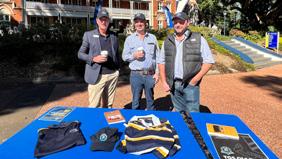
Discussions have commenced with the School regarding the redevelopment of this area which will not only provided a unique gathering place for Old Boys but will be a handy facility for parents and boys during the week. Consideration is being made to making this an Old Boys’ Project and a gift to the School as part of the upcoming 150-year celebrations to occur in 2025.
Our Association is funding the restoration of the School Barber’s Chair. Many Old Boys would remember having their hair cut, willingly or under direction, when seated in this chair. It was originally situated in “The Dog Box” and boarders had their hair cut there during Prep in the mid-50s. In the 1960s the “Barber’s Shop” was relocated to a small room in the Senior School Assembly Hall. Boarders could have their hair cut and it was charged on their House account.
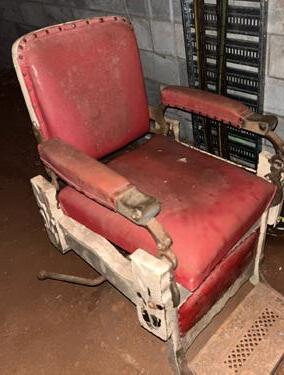
Our 2022 efforts to provide an opportunity for Old Boys to gather and catch up at home rugby games was most successful and we will be hosting such events again this year. Last year we gathered under the OBA marquee on the Promenade and enjoyed company, some light refreshments and viewing the game. The invitation is extended to all Old Boys to join us. Further information will be communicated closer to the fixtures.
Len Giltrow OAM was the barber until 1967. Len also coached hockey at the School and has three grandsons who are Old Boys – Blaire Brown (1992-96), Liam Brown (2000-04) and Kiel Brown (1997-2001).
Phil Neidler was employed as the TGS Barber from 1967-68 and there were a number of other barbers at the School until the late 80s when the service ceased.
Student Officer, Mr Matt Harrison discovered this 70-year-old barber’s chair in storage under Stephens House last August. Wait and see what will become of this chair when restored!
Coinciding with the Grammar/ Downlands weekend (Friday,18 to Sunday, 20 August) the OBA hosts reunions for Old Boys most specifically from cohorts in multiples of ten years. This year we feature reunion events for boys who were in Year 12 or would have finished in Year 12 in 2013, 2003, 1993, 1983, 1973,1963, 1953, 1943. Thank you to the following Old Boys for coordinating their year groups:
The Years of the 3s Reunion Coordinators
1943 1953 1963
Jenny Bazley School Associations’ Assistant j.bazley@twgs.qld.edu.au
07 4687 2500
1973 Rodney Hamilton rodmar@bigpond.com 0428 281 103 Gary Chalmers gary_chalmers@bigpond.com 0439 710 832
1983 Lee Taylor leetaylor66@outlook.com 0429 989 980
1993 Saxon Rose saxonrose1@gmail.com 0403 278 008
2003 Alistair Cochrane alastair.h.cochrane@gmail.com 0408 140 756
2013 Sam Crawford crawford.sam27@gmail.com 0418 111 051
In terms of organisation, we are still confronted with the challenge of providing a format that caters for all Old Boys.
This year we will continue with the Friday evening Welcome Function for Old Boys from any years with Saturday evening being for the ten-year reunion groups. It is evident that our younger
reunion groups want to just enjoy time together to catch up and are not in need of formality, so the 10/20/30 year groups will maintain the more informal stand-up format. Our more senior groups seek some formality and our 40/50s and older groups have previously opted for a few more formalities over dinner. We will be guided by what year groups would like us to do for them.
On Sunday, 20 August we host morning tea for Old Boys and their families and take them on the highly anticipated and informative School tours.
Old Boys, it is your reunion group, and we would like to do what we can to support your return, so please keep in contact. If you have ideas on what might work for your cohort, please let your Year Coordinator or me know.
Sunshine Coast organisers are again planning their Annual Lunch which will be once again hosted in October. A guest speaker is currently being sought.
You may like to make note of this event and watch for further information regarding registrations and cost.
Details of this year’s conveners follow, and I am sure they would welcome contact from any Old Boys:
Scott Lisle (78-82) scottlisle02@gmail.com
0422 005 918
Rob Outridge (78-82) Rob.o@OutridgesIGA.com.au
0407 589 732
Rolf Mitchell (83-87) Rolf.Mitchell@keolisdowner.com.au 0414 590 843
Grant Ryan (83-87) grant@rmgmeats.com
0419 712 146
Annually, the 1st XI Cricket side from 20 years ago reassembles and plays the School’s current 1st XI side, with this year’s game held on Saturday, 21 January.
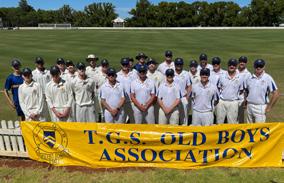
Mark Worth’s 20-Year side had a comprehensive win over the current boys, scoring 186 in their 40 overs and then bowling the “young ones” out for 122 in the 34th over on what was
a most difficult pitch to read and play on. Old heads, however, played the conditions better.
Current player, Gautam Malhotra, was the Peter McDougall Memorial Medal winner for 2023.
A highlight this year was the lunchtime crowd we had to watch the game. The School cricket program finalised their training camps on Saturday, with the OBA providing lunch, allowing those in attendance to share a meal while enjoying watching play.
Another highlight of our year is the 1st VI Volleyball side from 20 years ago who reassemble to play the School’s current 1st VI. This year also included a five-year reunion team. The Old Boy volleyballers went down 3-0 in the 20Year game and a much closer loss, 3-2 in the five-year game.
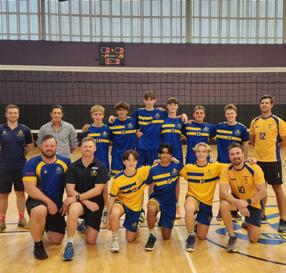
We appreciate the support of the School and staff for these and all our OBA events. These occasions mean so much to the Old Boys who return with family and friends.
If you would like to know more about the TGSOBA or how you can be involved, contact me on tgsoldboys@ twgs.qld.edu.au, I am most keen to talk to you.
On behalf of the TGSOBA, I would like to wish all in the TGS community the continual best for a most successful year.
Mr Mark Creedon (1973-77) President 2003 1st XI and 2023 1st XIMy journey to the University of Cambridge began in 2017 as a far-fetched idea, a crazy wildcard that my family and I never imagined would actually eventuate.
Despite many doubts, uncertainties, and busy final year commitments I gave it a shot, applying for the coveted BA Mathematics (Hons) degree to begin in October 2018. It was a difficult road and one I had to make several sacrifices for: I needed to postpone my Australian offers nine months to wait for the UK academic year, I had pages of personal statements to write, interview preparation to fit around a graduation timetable, and some of the toughest entrance exams still ahead of me.
Nevertheless, with the generous help of friends, family and various TGS teachers (special thank you to Mr Eddi Campiutti, Mr Roger Harris and Mr Timothy Eckert!)
I eventually received my confirmed offer eight months after graduating from TGS. At the time I was still unsure of what
I wanted to do with the degree, but I knew I loved mathematics and with the world being quickly transformed by technological breakthroughs, big data and artificial intelligence, I knew I would find my place.
Arriving in the historic city I was overwhelmed with a mix of excitement and terror as everything was very different, everyone seemed so frighteningly clever, interesting and driven. It was a classic example of small fish in a big pond, but I didn’t let that hold me back and I embraced the challenge, pushing myself to make the most of the incredible opportunity.
I played sports, joined various scientific societies, got involved in student politics and took as many courses as I could fit into my schedule. My academic interests ranged far and wide, from quantum physics and dynamical systems to statistics and information theory, but I particularly enjoyed exploring the quickly developing new field of computational biology.
Sitting between mathematics, computer science and biology, computational biology aims to utilise the unparalleled insights offered by recent technological advancements in sequencing and imaging to understand complex biological processes.
After finishing my undergraduate degree in 2021, I followed my interests in computational biology joining breast cancer research group, WTKLAB as a research assistant.
Using the skills I had developed in statistics, programming and highdimensional data analysis I immediately jumped into several of their cuttingedge research projects. Six months into the position, I was fortunate enough to have the opportunity to attend the international Gordon Research Conference on New Antibacterial Discovery and Development in Tuscany to present a poster on my findings and converse with experts in the field. Soon after, I was offered a fully funded position
to begin a PhD in computational biology with the lab and return to the University of Cambridge once again. Here, I am studying the mechanisms driving tumour formation using single-cell sequencing to try to identify a trajectory of changes in gene expression from healthy to diseased tissue.
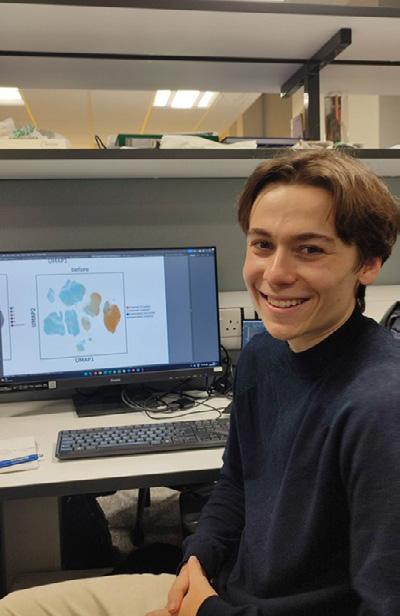
I would like to thank all of the TGS staff who taught me, instilling a passion for learning and creative thinking, and to former Headmaster, Mr Peter Hauser, Stephens Head of House, Mr Paul Sullivan, and Mr Giles Murfin for their unwavering support.
A particularly special thank you to TGS Old Boy, Mr Graham Hobbs (1949-1952), whose generous donation allowed me to complete my first internship beginning my journey into biology.
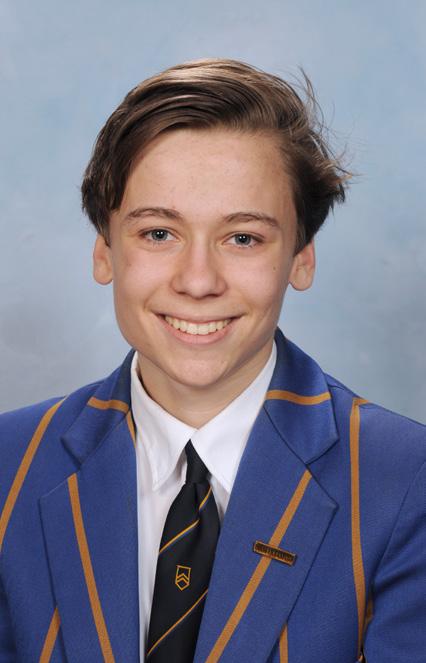 Austin Reed (2011-17)
Austin Reed (2011-17)
Jeremy Peacock (2005 – 09) currently represents Australia in Paratriathlon. He is ranked third in the world in the PTS4 Para category and his sights are set on selection for the 2024 Paralympic Games in Paris.
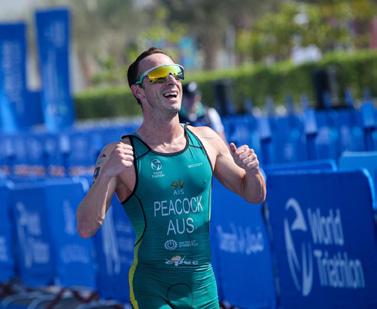
During Jeremy’s time at TGS he represented the School in numerous endeavours but was particularly known for his contributions to the Arts, particularly Music. On the sports field, Jeremy represented TGS in GPS Athletics, Cross Country, Cricket and Football.
After returning from a gap year in the UK teaching music at Port Regis School, Dorset, Jeremy attended Bond University completing a Bachelor of Commerce with further study to qualify as a Chartered Accountant (CA). He is currently an Associate Director at KPMG, one of Australia’s ‘Big 4’ accounting firms in Melbourne.
Jeremy was born three months premature and diagnosed with Cerebral Palsy which impairs the development of muscles and hinders co-ordination and neurological movements.
“This was probably not well known to the community during my time at TGS because I suppressed the diagnosis,” said Jeremy.
“I did not consider myself to be impaired and I was determined to compete in all sports against my fellow able-bodied athletes.”
During his cross country days with Mr Mark Oliphant as his coach, Jeremy just wanted to beat everyone.
“Yet in hindsight I was never on a level playing field,” he said.
Jeremy’s time at TGS was constantly on the go, balancing schoolwork with music rehearsals and sport practice; there was never a dull moment in his very busy TGS life.
“Looking back, I truly believe that my time at Grammar with its highs and lows, shaped me into the man I am today,” Jeremy reflected.
“I was not the best at everything; I wasn’t Dux nor a Prefect, but I was consistent and always put 100% into any challenge that came my way.”
It took several years for Jeremy to accept his impairment. However, with the support and literal badgering from his triathlon friends, in 2020 Jeremy was encouraged to approach the Australian Institute of Sport for classification.
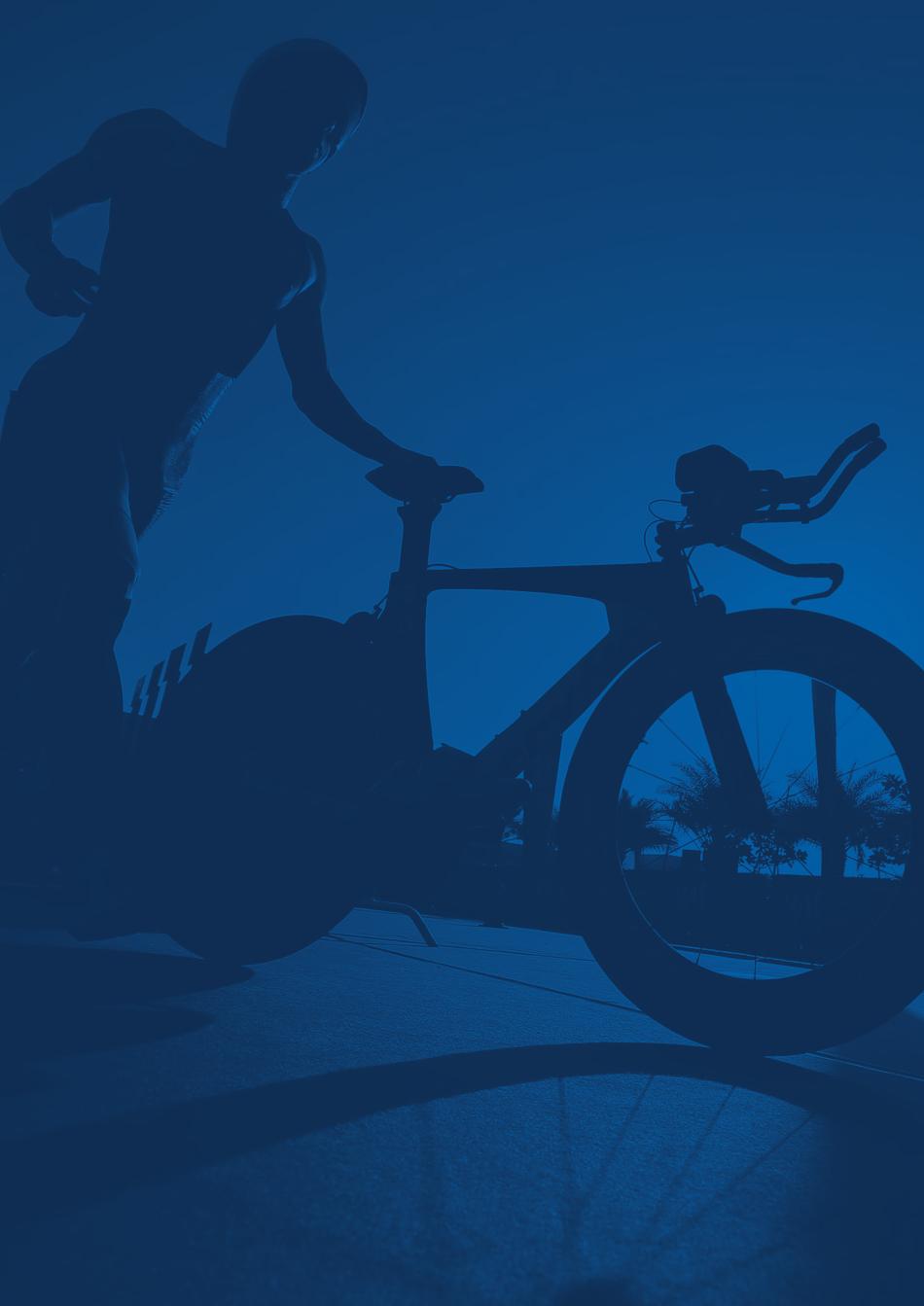
“This was a defining moment. I was subsequently categorised as a Paratriathlete and from that moment a new doorway opened,” he stated.
Destined to compete overseas for the first time just as COVID struck taught him patience and belief to “trust the process”. In 2022, after relocating to Girona in Spain to train with the Australian team and race on the international circuit, Jeremy had his breakthrough, winning gold at the World Triathlon Para Series in Montreal, Canada. He also went on to place third at his first World Championships in Abu Dhabi, backing up two days later to anchor the Australian team to gold in the first ever mixed Paratriathlon relay.
To cap off an excellent initial season with a consistent string of results, Jeremy was awarded the Triathlon Australia Individual Paratriathlete Male Performance of the Year. He achieved all of this whilst working full-time.
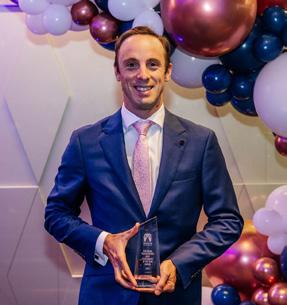
“Unfortunately, like many Para sports in Australia, Paratriathlon does not receive substantial funding nor prize money,” said Jeremy.
“Most of my funding is from my fulltime job whilst also training 25-30 hours a week.”
Jeremy has continued his success into 2023, recently winning the PTS4 World Triathlon Para Series race in Devonport, Tasmania and is currently preparing for upcoming races in Europe and the United States, culminating in the World Championships to be held in Pontevedra, Spain this September.
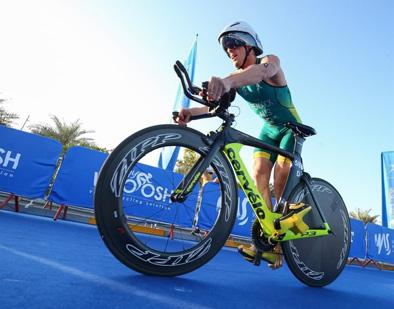
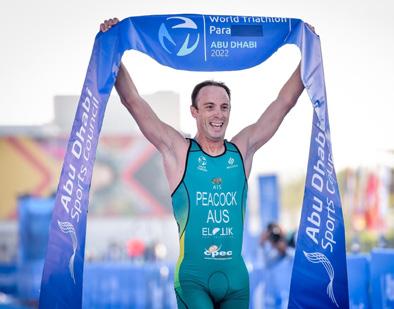
“Become fully immersed in the TGS life as you will form some fond memories of your time at TGS. Do what makes you happy; it doesn’t have to make sense to anyone else. Set your sights high, you never know what you are capable of.”
If you would like to help support Jeremy in his mission to get to the Paralympic Games or want to learn more about Para sports, he can be contacted at jpparatri@gmail.com.
We are always looking for articles to publish about our Old Boys. For more information please email communications@twgs.qld.edu.au
Sam Hicks (2015-18) graduated from the Australian Defence Force Academy (ADFA) as a Lieutenant in the Army in December 2022. Sam was Boarding House Captain of Boyce House and a School Prefect in 2018.
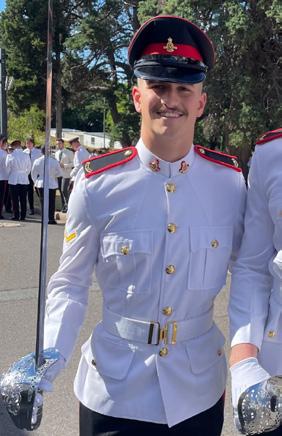
Harry Fortune (2012-22) was accepted into the Australian Defence Force Academy as a General Service Officer in the Army in January to study a Bachelor of Technology (Aeronautical Engineering). He’s aiming to become a helicopter pilot in the Australian Army after his training.
Nicholas Miller (1999-2003) married Maddie de Loach in September 2022 in Destin, Florida USA. Nick lives in Charlotte, North Carolina and works as an actuary for Ernst & Young. His brother Robert Miller (1999-2002) was best man and his sister Felicity Miller (St Ursula’s College 2001 - 2005) was an attendant. Their father, David Miller was Head of Science at TGS from 1999-2014.
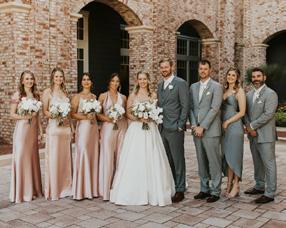
Mr Phil Woodhouse (1959-60) and Mrs Jo Woodhouse visited the TGSOBA Museum on Wednesday, 15 February to donate the “Corfe Cup” to the School. Phil is the great grandson of Charles Carteret Corfe who was TGS Headmaster 1890-1900.
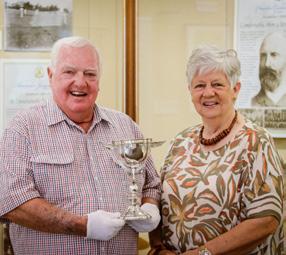
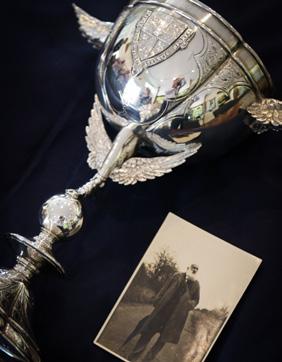
CC Corfe was born in the UK in 1847, attended Cambridge University, Jesus College and won Blues at Cambridge University in 1867, 1868 and 1869.
Engraved on the Cup: HUNDRED YARDS RACE
March 5th, 6th, & 8th 1869
WON BY
C. C. Corfe
Jesus Coll: Time 10 1/5 Sec:
J. F. Strachan Trin. Hall (Second)
Phil’s sons are also TGS Old Boys, Tim (1987-91) and Ben Woodhouse (1990-94). The School would like to thank the family for this wonderful donation. It is greatly appreciated and will be a treasured part of our School’s history.
An exciting appointment in February for Ben Adams (1988-92), who was named CEO of the world’s largest grower of macadamias, Marquis Macadamia.
Gail Petty, the wife of Don Petty (1954-57), kindly donated Don’s Colours blazer, Colours Certificate, 1957 Speech Day Programme, 1958 School Magazine and Don’s personal TGS photo album to the TGS Museum in February. Don’s blazer represented his achievements in Swimming (1956-57), 1st XV in 1957 and Prefect in 1957.
Along with Don’s sporting achievements, he was an excellent academic and a wonderful leader, not only as Prefect, but as a member of the TGS Cadets. Don graduated from the University of Queensland with a Bachelor of Science majoring in Animal Nutrition. He worked for the Department of Agriculture, Stock and Fisheries in New Guinea and across Australia before retiring in 1995. Don passed away in September 2018. We would like to thank Mrs Petty for this generous donation.
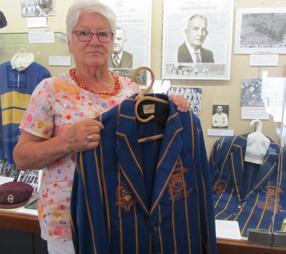 Sam Hicks (2015-18)
Nick Miller Sept 2022. Destin, Florida
Corfe Cup
Phil and Jo Woodhouse with the Corfe Cup
Sam Hicks (2015-18)
Nick Miller Sept 2022. Destin, Florida
Corfe Cup
Phil and Jo Woodhouse with the Corfe Cup
Leonard Smith (1999-2003) dropped in to the TGS museum during a quick visit to Toowoomba in February, thrilled to meet up with Mrs Judy Gillies. Leonard has a Bachelor of Science, a Master’s Degree in Economics (Natural Resources) and a Doctor of Philosophy. He has worked around the world with a diverse professional background in industry, government and academia.
We were delighted to welcome Mr Alastair Little for a tour of the School on March 28. Mr Little is the grandson of Sir Eric Woodward (1911-16)
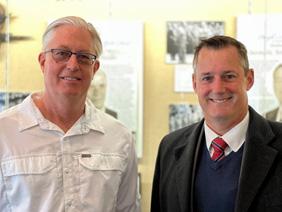
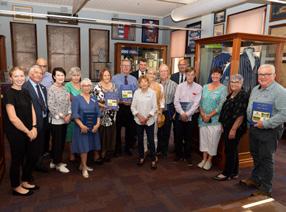
Sir Eric was a very prominent Old Boy and has a plaque on the Wall of Achievement. His memory is also perpetuated by the series of stainedglass windows at the southern end of Old Hall, which were donated by Sir Edward Woodward in 1999 in memory of his father. Mr Little and TGS Museum curator, Mrs Denise Miller are pictured here with the Woodward windows.
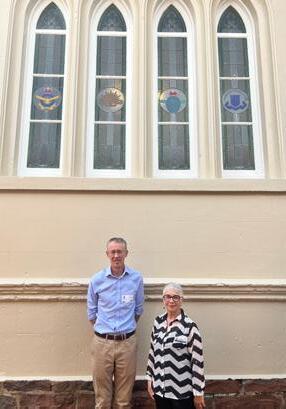
Jay Harris was an exchange student to TGS for one term in 1977. Mr Harris was hosted by the Gifford family, and they have remained in contact after all those years. Lachlan Gifford (1974-78) was best man at Mr Harris’ wedding and Lachlan’s brother, David (1971-76) returned to TGS with Mr Harris in May 2023 to meet Headmaster, Dr John Kinniburgh, some of our 2023 Prefects and have a tour of the campus.
Following the success of his twovolume tome of the History of TGS Cricket, Mr Ivan Board (1961-64) has been collaborating with other GPS schools to produce publications about their specific cricket histories with TGS. The last in the series, about Nudgee College, was co-written by NC archivist, Mr John Sayer and was released at Nudgee College in March 2023.
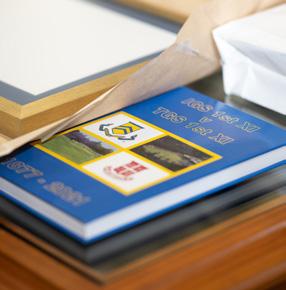
Lt John-Matthew Jones, RAN (Rtd) (1998-2000) was the TGS Old Boys’ representative for the School’s ANZAC Day Service on Monday, 24 April. Lt Jones was delighted to meet with our Yalari Indigenous students following the service.
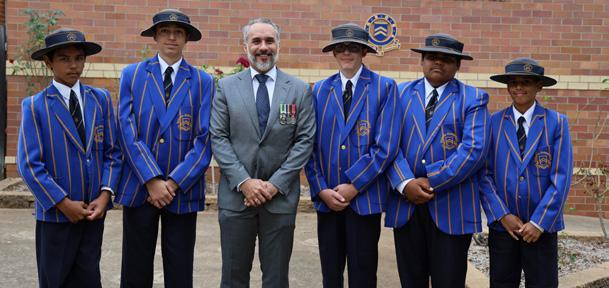
Cooper Blackwood (2012-14) will represent Australia at the Invictus Games in Germany in September.
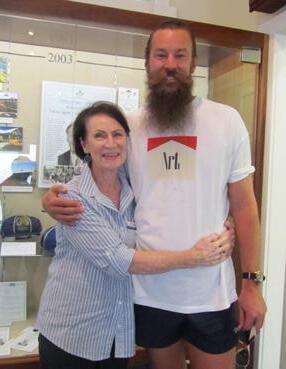
Travis Howell (1992-96) has launched a cyber-security business to help protect local businesses from cyber attacks. He runs a series of mock attacks so employees can learn about the tactics that hackers use and how to identify them.
Tristan James (1999-2003) is an Elvis impersonator, performing at various events around Australia and took part in the European Elvis Championships in England in January 2023.
Jai Gordon (2019-20) broke a 57-year-old national record on the same day its previous ‘holder’, Olympic sprinter, Gary Eddy, was laid to rest in April 2023. Gordon won the 100m semi-final of the UniSport Nationals in a time of 10.37, beating Eddy’s mark of 10.40. Gordon is training with the Australian team for the 4x100m relay team competing in the Oceania Games in November.
Henry SKOLNIK (1956) date of passing unknown
Peter GIBBES (1979-80) date of passing unknown
Clive GESLING OAM (1938-39) date of passing unknown
Terence COOPER (1972) date of passing unknown
Brian ROBERTSON “GRIFFIN” (1951-52) date of passing unknown
John TAYLOR (1946-49) in March 2019
Ian HUTCHISON (1934-36) in September 2019
John MOORE (1951-54) in January 2020
Francis WIPPELL (1946-47) in December 2020
James ARMITAGE (1944-47) in June 2021
Malcolm FOOK (1945-48) in June 2022
Robin AVIS (1950-51) in September 2022
Peter HARVEY (1945-47) in October 2022
John HODGEN (1983-84) in October 2022
Richard FORSTER (1956-59) in November 2022
Kenneth SARGENT (1953-56) in November 2022
William GUEST (2000-07) in November 2022
Graham GOODALL (1954-55) in November 2022
Bruce MOOR (1942) in December 2022
Peter FEGAN (1951-54) in December 2022
Gregory “Greg” ROSBROOK (1954-56) in December 2022
Kevin “John” ANTONIO (1953) in December 2022
David MURPHY (1952-57) in December 2022
Wellington LEE (1940-44) in December 2022
Lynn CAMERON (1942-43) in December 2022
George “Jim” TWIDALE (1957-58) in January 2023
Alan LORD (1948-49) in January 2023
Ian THOMSON (1947) in February 2023
Owen DAVIS (1959-63) in March 2023
Charles “Roger” WILSON (1938) in March 2023
Cyril GEITZ (1948-50) in April 2023
Grahame SWARTZ (1952-55) in April 2023
William LORD (1947-48) in May 2023
Peter MASKALL (1944-46) in May 2023
Keith FITTOCK (1945-48) in May 2023
Paul MERRY (TGS Staff 1998-07) in November 2022
Peter HUGHES (TGS Staff 1981-2000) in December 2022
David BELL (TGS Staff 2015-17) in May 2023
Allen WHITEHOUSE (Board of Trustees 1982-92) in May 2023
James BELL (2004-08) to Sinead Westaway in December 2022
Peter ROSER (1989-93) to Kaylah Bull in April 2022
Nicholas MILLER (1999-2003) to Maddie de Loach in September 2022
Robert Graham (Bob) Johnson died at home in Caloundra on 22 September 2022, aged 84 years. Bob was a boarder at TGS from 1953 and in 1956, he was a member of the 2nd XI, captain of the rugby 3rd XV and vice-captain of Mackintosh House.
At university, Bob began playing hockey. In 1963, he was a member of the Queensland University side that defeated all other teams competing in the Australian inter-varsity hockey championships, and also a visiting Combined New Zealand Universities team. During his long association with Queensland University Hockey Club, Bob had served as president, secretary, club representative on the university’s Sports Union and delegate to the Brisbane Hockey Association.
Living by the sea, Bob enjoyed fishing and, from 1986 to 1988, he was president of the Queensland Game Fishing Association.
For most of Bob’s professional life, he worked as a pharmacist in Brisbane. After selling his pharmacy at Greenslopes, he worked as a locum in Western Queensland and also the UK.
For the last part of his life, Bob suffered from poor health and mobility problems, but he remained remarkably cheerful. He is survived by his wife, Evol, their married son and daughter, their spouses and four grandsons.
Written by Bob’s older brother Ian (TGS 1949-52) who lives in England.
(TGS
It is with sadness we share the passing of a former TGS staff member, Mr Paul Merry in November 2022. Mr Merry was a teacher in the Junior School from 1998 – 2007 and following his retirement continued to assist the Interact Club in the capacity of Rotary South School Liaison. Further to this he was also involved for many years with the co-ordination of many TGS students attending the National Youth Science Forum and for those who were preparing for confirmation with St Luke’s Church. Many staff and students will fondly remember Mr Merry to be a true gentleman.
(DIRECTOR
Mr David Bell will be remembered as a man of exceptional character, as a remarkably kind individual who gave his time to many and served as a valuable mentor to staff, coaches and students.
David was educated at Brisbane Grammar School and taught at Ipswich Grammar School in the early stages of his career. He held the position of Director of Staff Development at the Anglican Church Grammar School (‘Churchie’) prior to joining TGS in late 2015 as the Director of Sport and Activities. He remained at TGS for two years, before being appointed to the position of Head of Middle School at Brisbane Boys’ College where he remained until his sudden passing after succumbing to a heart attack in May 2023. David is survived by his daughters, Charlie, Molly and Rosie and their mother, Karina.
